Special Focus: Grandparents
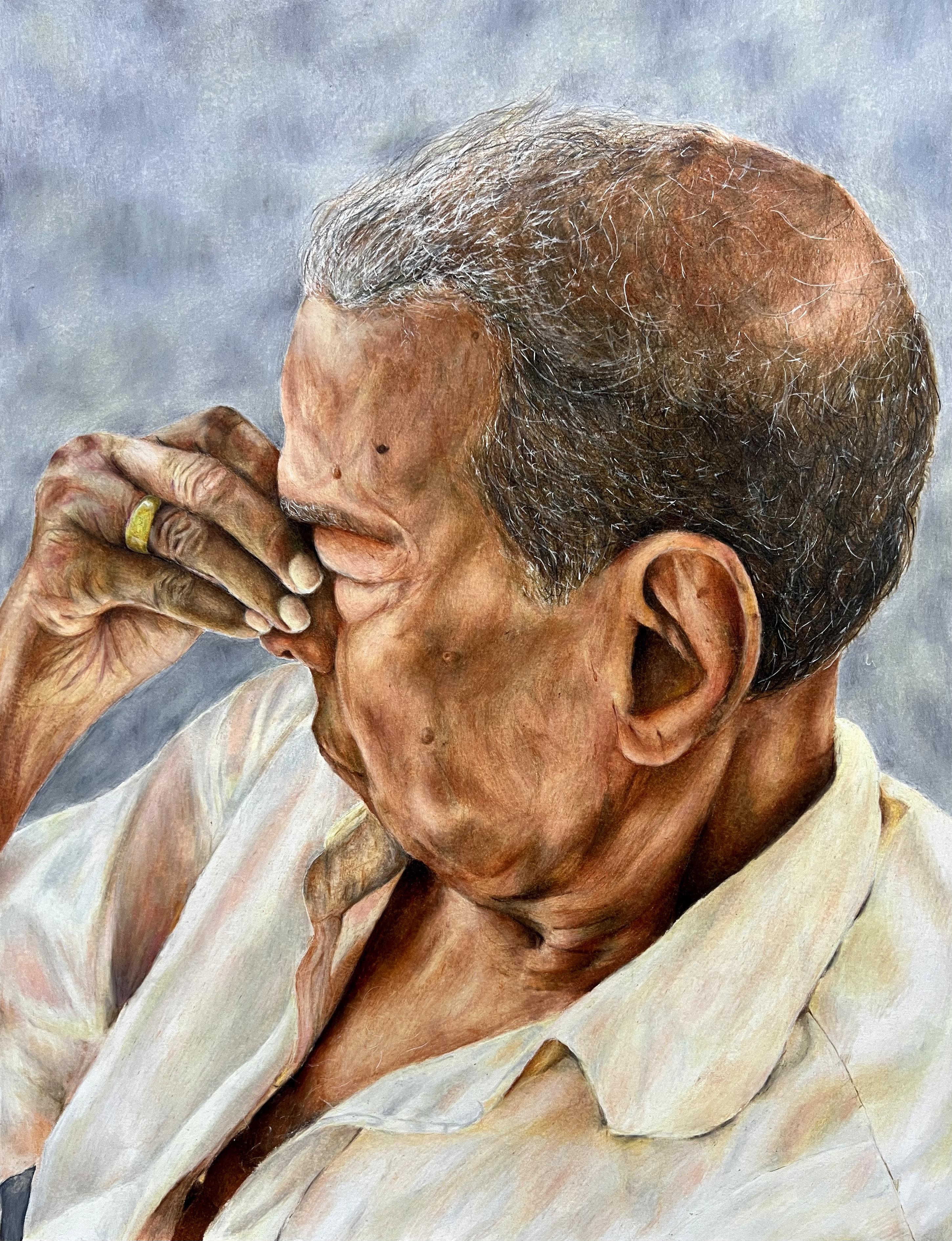
Spooky Fiction
PLUS: What are your special talents?


PLUS: What are your special talents?
It’s the most devilishly frightening time of the year... Time for spooky fiction! Every October, the team at Teen Ink puts together some of the most spine-chilling, bone-shaking, goosebump-inducing tales that are sure to raise the hairs on the back of your neck.
For the squeamish, don’t you worry. We still have amazing, lessscary sections on special talents, sports, health, and grandparents. How much of who you are can you trace back through your family line? Whether it’s learning about your ancestors or your culture as a whole, there is so much wisdom to receive from grandparents. And if reading these stories makes you more curious about your own lineage, we encourage you to ask around! Maybe your stories will end up in the next issue of Teen Ink!
As always, we welcome your feedback! If you want to write a letter to an editor, respond to an opinion article, or just take a stab at creating a poem good enough to make it into our next magazine, visit teenink.com/submit!

Best wishes!
The Teen Ink Team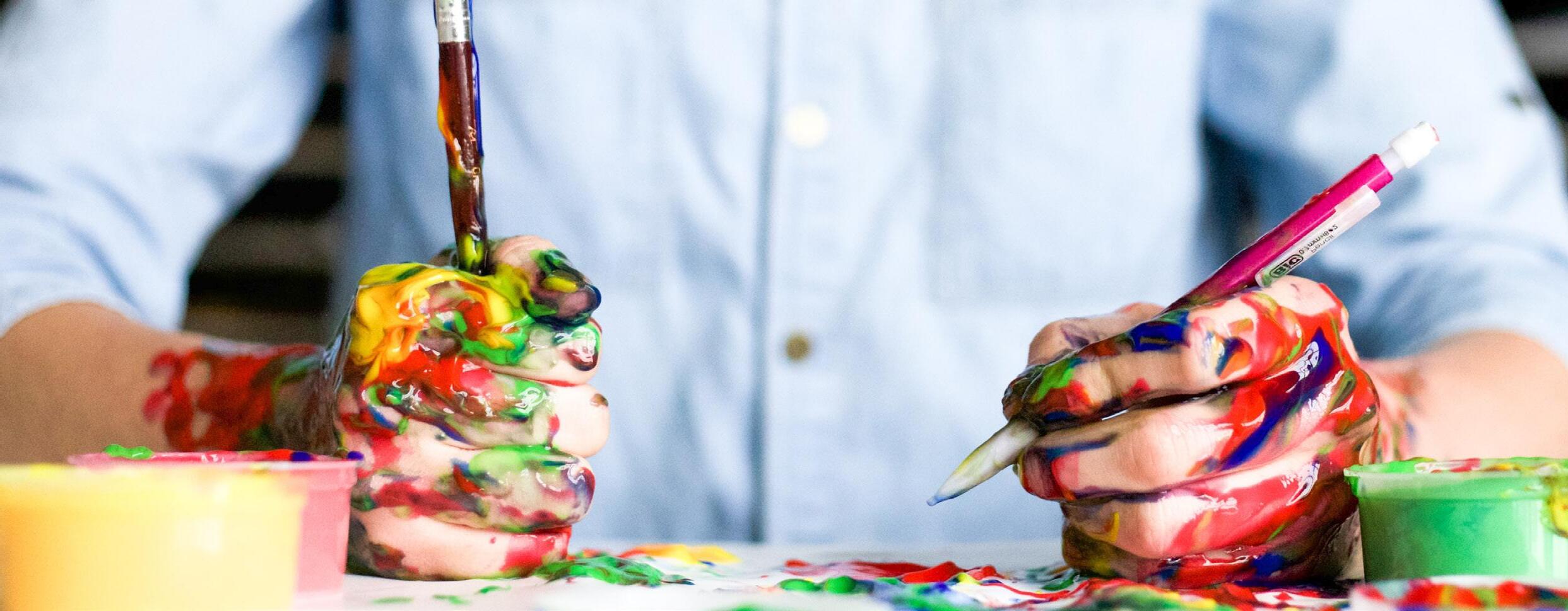

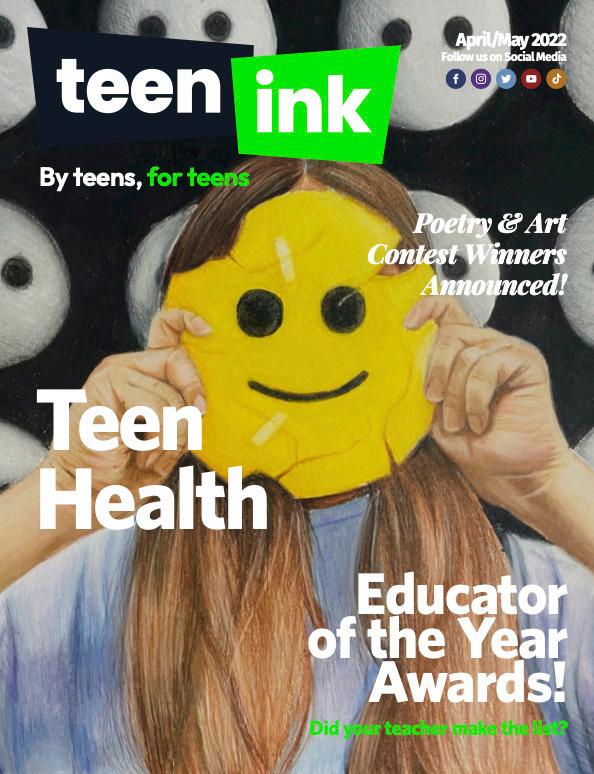

Free Verse, Odes, Haiku, & More!
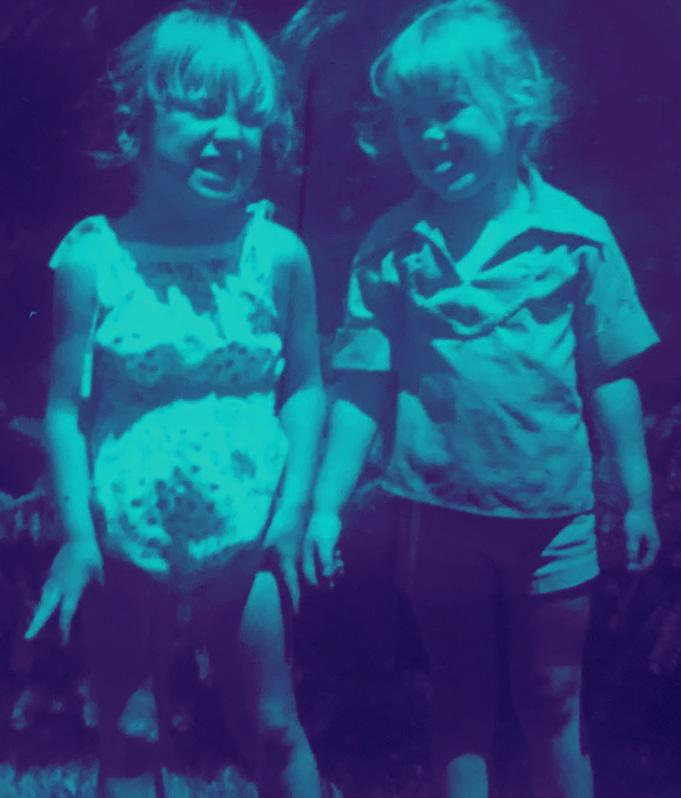
Art
Pages 6, 23, 32, 64
Photography, watercolors, charcoal, oil paintings, & more!
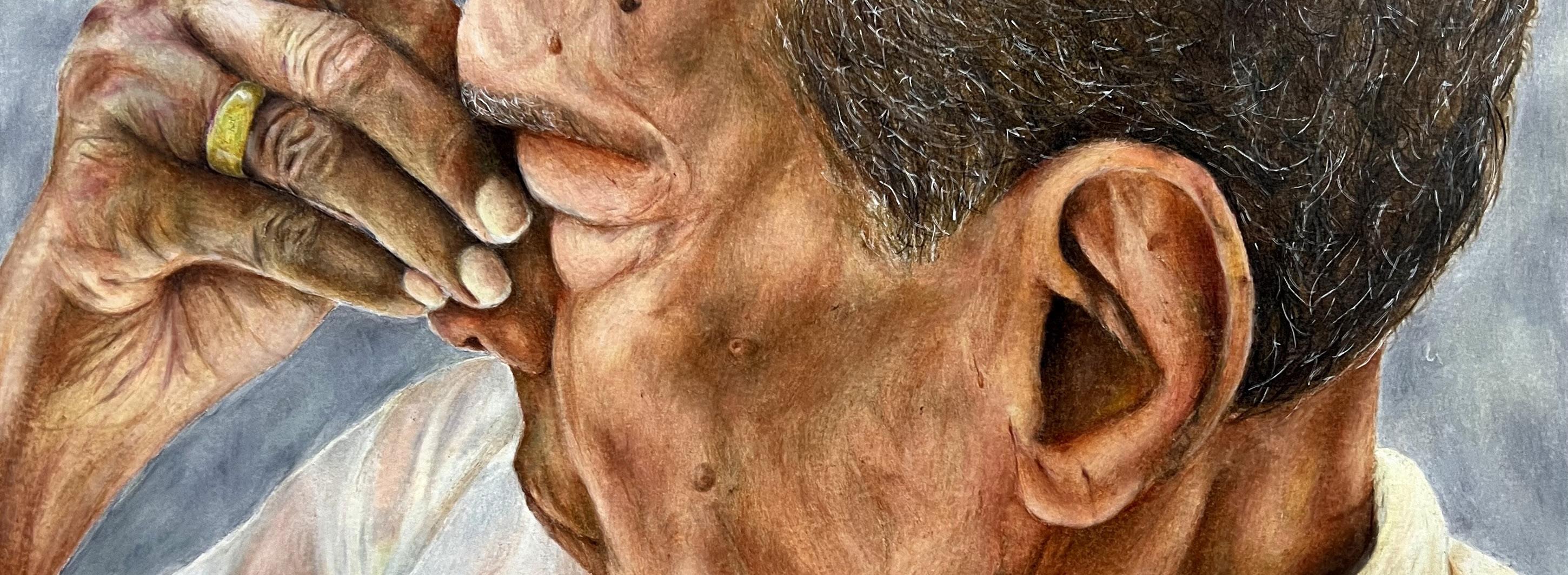
Contests
Pages 30, 42 Interesting
One-Sentence Horror

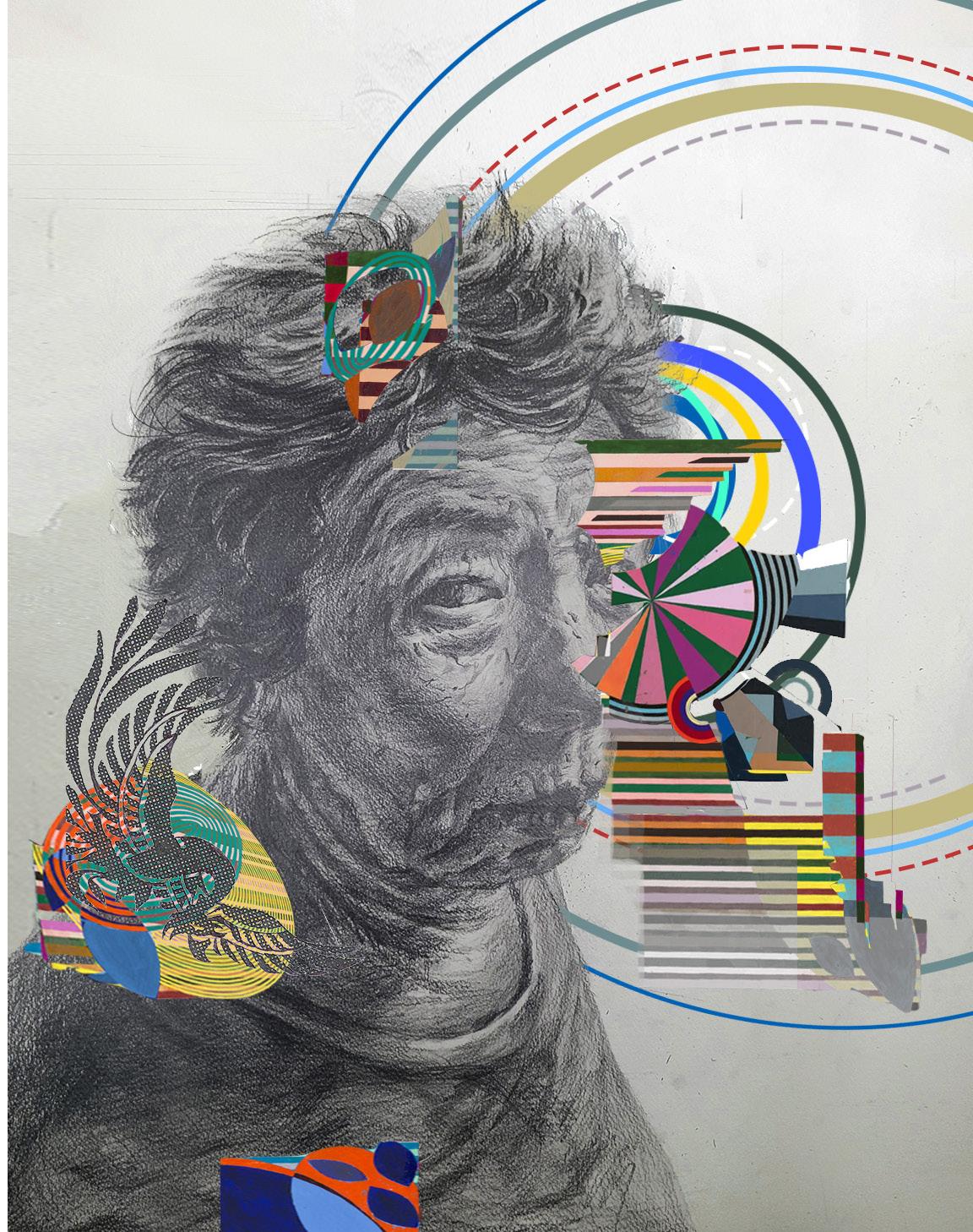

I hate my hands. I hate looking at them and touching them. My hands didn’t do anything to me. I did something to them. My hands themselves aren’t what I actually hate, it’s what’s on them — my nails. My nails are uneven, brittle, and short. The skin around my nails is raw. When I touch my hands, they burn.
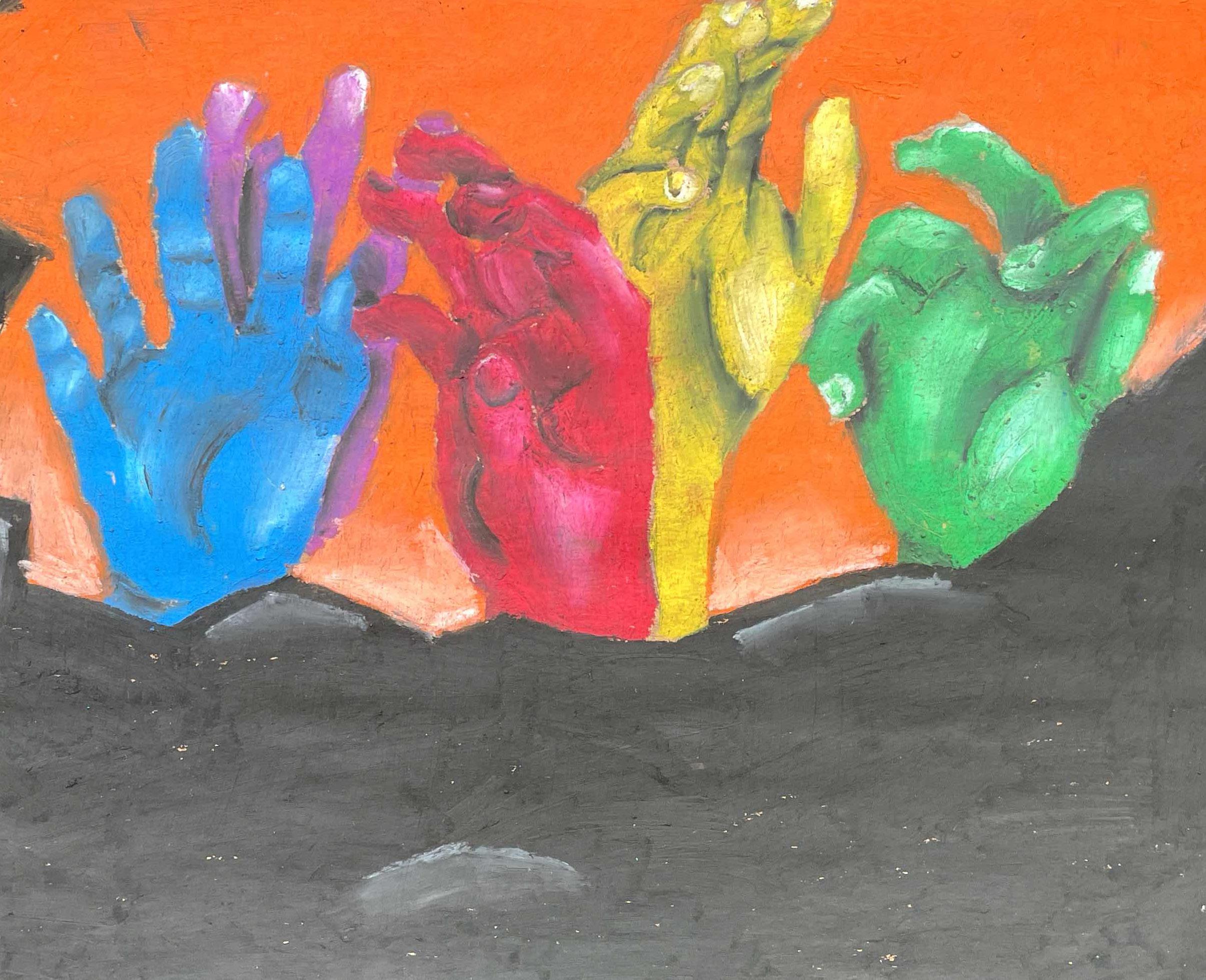
For as long as I can remember, I have been a nail-biter. It wasn’t until I got older that I realized it was a problem. People around me would notice how beat up my nails were and ask why they looked the way they did. I was embarrassed to tell them the truth so I would lie and say something along the lines of, “Oh, I just slammed my hand in a door!” I am tired of lying. I have onychophagia. Onychophagia is defined as the chronic habit of biting nails. People never understand this condition because nail biting is something that “everyone does.” However, I don’t bite my nails to get a hangnail off or to keep them looking straight. I bite them off entirely. I bite them until they are bloody and the skin around them is freshly moist and pink. When they look this way, I am satisfied. I am done. It’s what
With every feel, every touch, and every tap, I feel hurt. But I just can’t stop. I have OCD (obsessive compulsive disorder) and anxiety. When people think of OCD, oftentimes, the first thought that comes to mind is perfection. OCD isn’t perfection, it’s far from it. For me, it’s a flaw. My mind screams at me to bite my nails. It will make me feel better. My onychophagia is a coping skill for my OCD. Biting my nails distracts me from the chaos of the world. It provides me temporary relief for all of the anxious thoughts that I suffer with.
I have tried every method in the book to stop my nail biting. From bitter nail polish to wearing finger gloves, nothing works. My condition embarrasses me. While other girls my age are scheduling nail appointments, I am scheduling therapy appointments. Every day, I am working on recovering from my onychophagia. It is a daily struggle that causes me physical and emotional pain. I no longer want to feel embarrassed for my nails. I want to love them and I want to love my hands.
She is not your enemy. Don’t be afraid of her, she’s your best friend. You need her to survive. Come on, you can do it, nothing will happen. Just a bite. Just a bite won’t hurt.
But a bite would hurt. A bite would lead my mind to some sort of craze that would create a cycle of selfhatred and guilt. All it looked like to me were numbers. All of these numbers that, together, could not exceed 900.
I can’t.
I told myself I can’t. Could I? I don’t know. I was too scared to try.
I need to calculate. Was this 150 or 155? Plus the morning, 75. But what about what I had in the afternoon… How much was that?
November 2021
I don’t know why it happened, neither from where, nor from what. I couldn’t have just woken up one
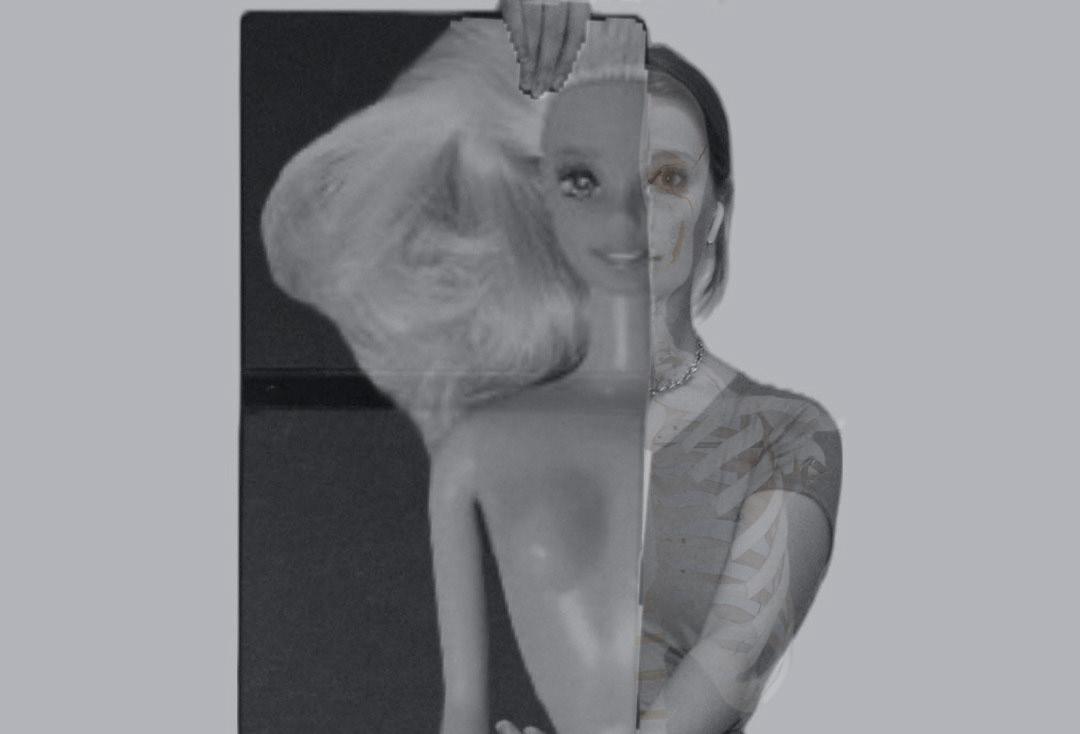
day, looked in the mirror, and said I hated myself, but as far as I could remember, that was the way it went.
My Google search history was puzzling. How to lose weight overnight? A series of links and videos popped up. I found one that seemed the easiest for me to follow. I mixed together some water, lemon juice, and cumin seeds, and swirled it around a couple of times with a small, metal spoon. I set the spoon aside and waited till the drink’s tornado-like motion came to a stop. Drinking it brought me utter disgust, with each swallow contributing to a set of gags. Just do it. You’ll be skinny tomorrow. Quickly cleaning up after myself before anybody noticed, I went to bed, tucked myself deep into a warm blanket, and let out a sigh of relief. Tomorrow would be better.
Tomorrow came. Nothing changed. The absolute shame I felt as I
stepped on the weighing scale was indescribable. The concoction from last night made no difference, rather the scale had said I weighed three-tenths of a pound more than yesterday. My heart sank to my stomach, tears filling my eyes as I stepped off the scale, wishing I could pluck the fat off my skin. Why am I like this?
I was happy. I found peace from food. Baking became my new hobby. The constant searching for new recipes and adding ingredients to my shopping list became a pleasure, and going out to buy food was no longer a burden. I had subscribed to many bakers and chefs on YouTube, with Laura Vitale being my favorite. Every few days, an inviting smell of freshly baked treats would fill the house. I would put on the oven mitts, carefully pull out the tray from the oven, cautious of the surrounding heat, and gently set it on the kitchen counter. As each
minute went on, it became increasingly difficult to wait for the baked product to cool. It was a thrilling experience. As the months went on, same with most anything, my passion for baking decreased, and soon it became nothing but just another short phase of my life.
It was quite foreign. I couldn’t make out at first what it was. My emotions were all jumbled; fear and discomfort took over. My head turned from corner to corner, eyes widening and mind racing uneasily. I could feel myself warming up, not because of heat, but of embarrassment. First day of lunch back at school. Keep the mask on. I lifted the mask up from the bottom ever so slightly, so none of my face could be visible — only enough for the food to go through. I felt the food touching the inside of my mask, but I kept it on nonetheless. I could bear the food-smothered mask for a few more hours, I told myself. I didn’t know why, but something told me eating like this was the only option. This continued for weeks, followed by months, all the way until April of the following year. I didn’t know it at the time, but that first day of lunch would be the start of a very twisted journey. Aug. 11, 2021, was the first day I had ever experienced the feeling of insecurity. On Aug. 11, 2021, I hated the way I looked.
I didn’t know why I was behaving this way. All she had asked from me was to rinse a few dishes.
“I’ll do the laundry. Can you please wash the dishes?” my mom asked sweetly, quite tired from the long day.
“Sure,” should have been my response.
Instead, anger and fury took control; I irritably headed to the sink, aggressively washing each dish and splashing water all over the counter. She was furious — she snatched the dish out my hand,
and I left immediately. Guilt and sadness flushed over me, but the rage hadn’t vanished. I shouted and ran upstairs, feeling heavy-hearted, fuming, and sensitive.
I cried. I cried for so long that day; I don’t remember the last time that had happened. It was guilt, embarrassment, but quite largely, fear. What’s going on with me? I hadn’t chosen to get so upset. It just seemed to have happened, and I couldn’t explain why. I was unaware that my empty stomach led me to being atrociously hangry.
This isn’t worth my time. I have more important things to worry about. Wiping the tears away, I took my phone out and opened Lose It!, a calorie-tracking app. My mind shifted from the recent emotions of fury and guilt to now a memory game. Okay, starting from the morning. Carrots: Three pieces. Almond milk: a quarter cup. Now lunch. Rice: an eighth cup. Lentils: half a cup. The list continued on until I was sure I had logged all my food down. Shoot. Twenty-eight calories over.
The tears reappeared.
May 2022
I wasn’t happy. I found myself in a war against food.
Consuming it felt like a sin; thinking of it consumed me.
Logging daily became a necessity; missing a day felt a crime.
Others ate; I watched.
I had to earn the food, burn the food, think six times about the food…
Then deny the food.
I isolated myself.
I was suffering. I was suffering so much.
October 2022
Food had become my evil
obsession. I hated it, yet I yearned for it. The times I loved myself lasted for as long as the Google search page on how many calories an orange has took to load. Food had become a game of numbers, no more than x number of calories did I allow myself to consume a day.
June 2023
I’m getting there. Every day, I’m getting better.
I found myself. I don’t have everything perfectly figured out, but I am learning. I know I am worth so much more than a fight with myself over a piece of chocolate. Food is fuel, it’s energy, it’s a necessity. I need food to live.
My mind played with me. It twisted me to think in a way where I could no longer see what was true. I was blinded, I lost myself to a trance — an unreal perception that I must look a certain way. I found the only way to accomplish that is to forget food. But it’s okay, because soon I’ll be in my dream body. Right?
False. I will never be satisfied.
Food played two roles. It was supposed to be my best friend. It kept me alive, allowing me to function and live. But it was also my greatest enemy. An evil witch in disguise. It took over me, controlled me, manipulated me.
But I will not let it control me anymore.
She is not my enemy. She keeps me alive. She is not my enemy. She is so much more than numbers added together like a mathematical equation. She is not my enemy. She brings me joy and comfort. She is not my enemy. I am not afraid of her. She is not my enemy. I survive because of her. She is not my enemy. She is the reason I enjoy moments. She is the reason I live, laugh, love. She is the reason I am alive.
She is not a game of numbers.

When my four-year-old sister, Jocelyn, was diagnosed with spinal cancer in 2014, our family’s lives took an unexpected turn. The news of her illness was like a tornado, tearing through our peaceful existence and leaving us battling with a new reality we never expected. Our lives would never be the same again. Being the sister of a sibling who battled childhood cancer was an emotional journey, filled with ups and downs. Despite my sister’s frequent hospital visits or her time spent in my mother’s bed, we always made a point to prioritize our precious moments together. From playing with our newest American Girl dolls to solving tedious puzzles, we created new experiences I continue to cherish. While our playtime provided a temporary escape, we couldn’t break out of the occasional reminder of the challenging circumstances my sister faced. She dealt with the physical demands of grueling chemotherapy treatments, keeping her in the hospital for days on end. As the treatments took their toll, she gradually lost her ability to walk, and her once-vibrant interest in play began to diminish.
Throughout Jocelyn’s illness, I struggled with a desire for attention, longing to be seen and recognized amid the overwhelming focus on her. It wasn’t that I resented her or wished ill upon her, but the constant attention and concern directed toward her left me feeling unnoticed and overlooked by my entire family. As Jocelyn faced the challenges of her illness, our family’s attention naturally moved toward her needs. Understandably, her health became the central focus of our lives, leaving little space for my own desires and struggles. It was difficult not to crave the same level of attention and support my sister received.
When a stomach bug landed me in the emergency room, it was my aunt and grandma who stepped up to take care of me. With my mother already at the hospital tending to Jocelyn’s illness, I could sense the
heaviness in her presence as she finally arrived in my room. It felt as though my own sickness — minor vomiting and a stomach ache — paled in comparison to the immensity of my sister’s battle with cancer. In her eyes, I could see the strain of worry and exhaustion, and it seemed as if my sickness was unimportant, as if I were wasting her precious time. The weight of guilt and insignificance settled upon me, leaving me grappling with the unfairness of the situation. There were many moments when I felt invisible, as if my own emotions and experiences were brushed aside. Birthdays, achievements, and even typical daily activities seemed to be less significant in comparison to the importance of my sister’s condition. It felt as though I had become a side character in the story of our family, solely a background figure while my sister took the center of the stage.
Years later, I now understand that my family’s focus on Jocelyn’s health was not intentionally diminishing my own needs. It was a response to the seriousness of her illness. Recognizing this has helped me find compassion and forgiveness, both for myself and for my family. While my desire for attention during that time was valid, I have come to realize that it is not solely through others’ validation that I can find comfort. During the most somber moments I felt alone, I validated my own feelings and prioritized my own demands. I was there for myself, and that is what matters most.
The journey of being the sister to a younger sibling with cancer has left a permanent mark on my life. Through the passing of my sister Jocelyn, I have come to understand the profound value of cherishing every moment, embracing compassion for others and myself, and finding resilience in the face of adversity. Her love and strength continue to inspire me, and while I deeply miss her presence, I carry her spirit with me as a reminder of the precious time we shared and the enduring impact she has had on my life.
WHILE MY DESIRE FOR ATTENTION DURING THAT TIME WAS VALID, I HAVE COME TO REALIZE THAT IT IS NOT SOLELY THROUGH OTHERS’ VALIDATION THAT I CAN FIND COMFORT
 ARTICLE BY GABRIELLE HE, SAN JOSE, CA
ARTICLE BY GABRIELLE HE, SAN JOSE, CA
As I walked toward the aircraft that was about to take me airborne soon, I realized it was going to be my first time flying on a single-engine aircraft. My heart started pumping faster, and adrenaline kicked in. Sure, I’ve flown in commercial jets with multiple engines before, but never a single-engine propeller aircraft. Walking toward the cockpit door, I could see the shiny buttons and displays and the different controls reflected onto the outside of the aircraft. As we started up the airplane, listening to the pilot talking with traffic controllers to receive safe operational directions, I realized how much I loved seeing all of this. Even the constant hum of the engine couldn’t deter my love for this field. It was a mesmerizing and life-changing experience for me, seeing how pilots worked with traffic controllers for the safety of everyone.
None of that would have happened if I hadn’t taken the opportunity offered by my Scoutmaster. A couple of months ago, I started diving deeper and learning more about the inner workings of aviation, and since then, I’ve been in love with the complex process. Even the two-page procedure before starting the aircraft and the numerous checklists for different times in the air, couldn’t stop me. After discovering my passion, my Scoutmaster presented me with the opportunity to fly in-person at a small airport nearby, where they offered a program for youths to experience flying in singleengine aircraft. Young Eagles, the program I had my first flight with, opened my eyes to the mysteries of aviation. After the flight, the pilot recommended I attend a nearby flight school because he saw my potential as a pilot and wanted to help turn that potential into a skill. He believed I was capable of quickly learning new procedures for larger aircraft and becoming a pilot at a young age.
As my first lesson approached, I was becoming more
and more nervous. I was afraid I wouldn’t do well in a field that is mainly dominated by men. I was afraid that the instructor would belittle me because of my age. I was afraid of not being strong enough for the airplane. I was afraid of so much. Against my will, time flew, and in what felt like days, but in reality was weeks,
it was time for my first lesson. Surprisingly, the instructor was patient with me, understanding and gently correcting my mistakes, explaining each control, answering all of my questions thoroughly, and respecting me like any other adult. During the first lesson, we went over many of the basics, including aerodynamics, turns, and altitude changes. It was fascinating for me to see how planes and the atmosphere worked with and against each other. Such a simple thing as flying from one airport to another was truly so much more complicated than I thought.
Looking back, almost half a year later, it was one of the best leaps of faith I have taken. Even though it was scary to take the risk at the time, I learned that it never hurts to try. I’m now attending a lesson every other week and slowly making my way closer and closer to my Private Pilot License. Bit by bit, this experience is helping me learn to step outside of my comfort zone and find something amazing there.

IT WAS A MESMERIZING AND LIFECHANGING EXPERIENCE FOR MEARTWORK BY SONJA XIE, SCARSDALE, NY
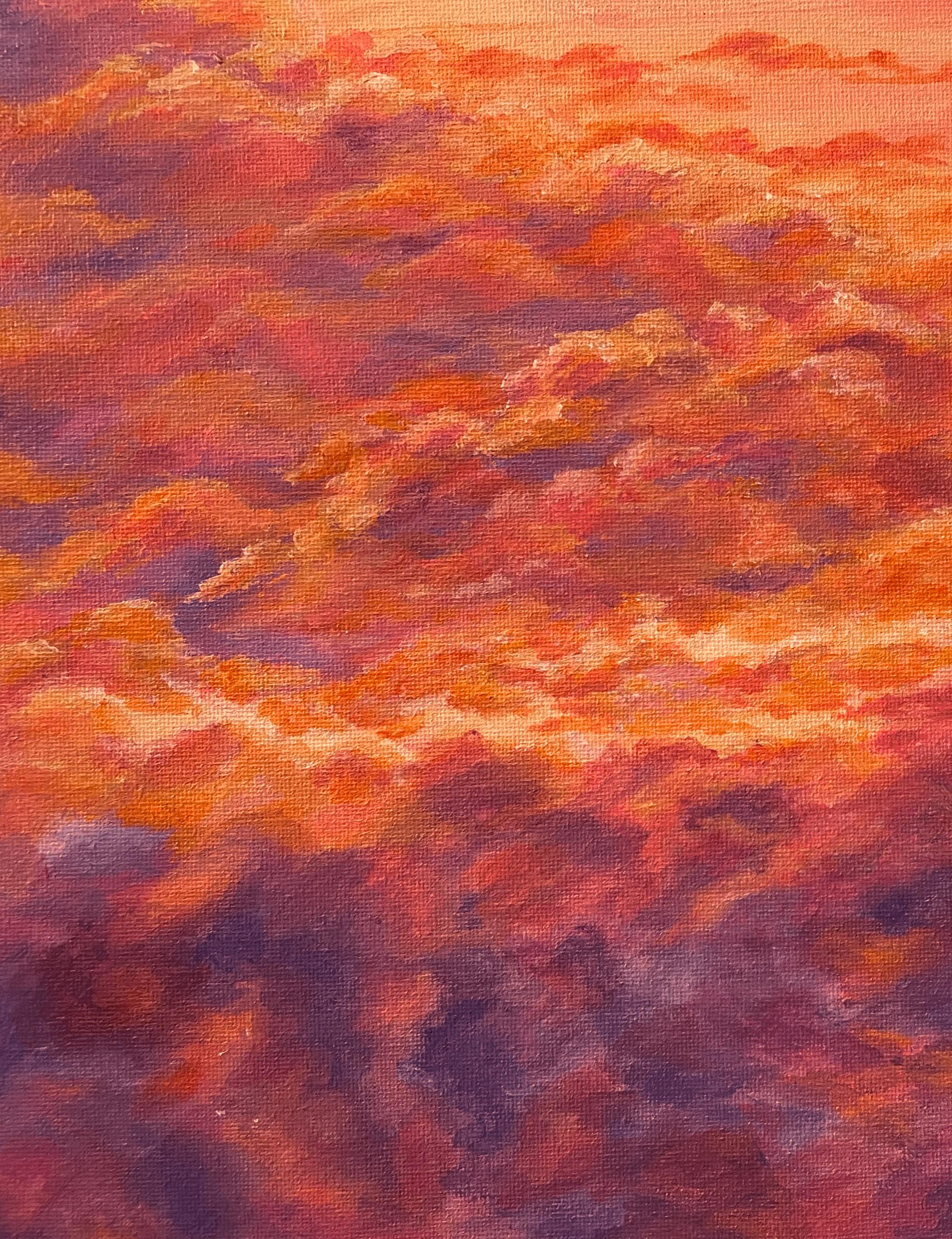
For a long time, people have acknowledged the benefits of yoga and meditation for achieving inner peace and self-awareness. Yoga integrates physical postures, breathing control, and meditation, which ensures balance between body and spirit. Meditation trains our mind to concentrate and reroute our thoughts. My life has been dramatically changed by my personal journey to perfect these age-old practices. Besides, it has allowed me to delve into the practice of mindfulness and have a lovely sense of serenity. I was inspired to do yoga and meditation by observing Swami Vivekananda’s mastery of concentration and mental focus. I looked for a method to get away from the melancholy and distractions of my life. I wanted to find a way to deal with the pressures and difficulties that engulfed me. I knew little about how this journey would not only tackle the situation, but also become a path of self-discovery and growth.
I surfed a variety of sources, including online videos and the books of the sages of the Vedanta Society, to pursue my quest. I began to comprehend the principles of each practice by getting instructions on various meditation and yoga postures. I discovered that yoga helps to improve physical strength, flexibility, and balance. Meditation creates a quiet and focused mind. The combination of these techniques provided a complete method for nourishing the body and mind. As I went further into my practice, I realized that meditation and yoga were more than just physical activities or techniques for achieving calmness; they were profound practices that required commitment, endurance, and introspection. The true essence of these practices lies in embracing the present moment, observing thoughts and sensations without judgment, and cultivating selfcompassion. The most life-changing insight of my journey was to realize that yoga and meditation were not merely limited to a certain time or location. I started practicing mindfulness and incorporating yoga and meditation into my daily relationships, work, and routines. Even in the midst of the most hectic situations, I found that a few minutes of concentrated breathing or a thoughtful
walk in nature could greatly quiet and clear my mind.
Over time, my practice became a safe haven where I could get rid of stress or uncertainty. I discovered how to use my breath as an anchor to help me remain in the moment and handle tough situations with calm and poise. Yoga’s physical component strengthened my body, which also increased my flexibility and all-around well-being. I started trying different meditation techniques and yoga styles and soon realized that everyone’s journey is unique. There is no specific technique that fits every approach to yoga. All postures are not suitable for everyone.
When I reflect on my experience, I see that mastering yoga and meditation is a lifelong endeavor. With a new view to practicing yoga and meditation, I made a continuous effort to follow Swami Vivekananda’s directions. I feel that savasana, padmasana, kumbhakasana, dhanurasana, and other poses improved my flexibility, metabolism, and overall athletic performance. It was difficult to keep up with it at first because it required regularity, but I continued doing this delightful thing. I believe it is a ceaseless process of self-discovery and self-growth, and my physical and emotional health have really benefited from the advantages I’ve noticed.
I’ll conclude by adding that learning to meditate and practice yoga has been a transformative and enlightening experience for me. It has directed me to understand the significance of introspection and the effectiveness of inner tranquility more vividly. Through consistent practice and devotion, I’ve understood the substantial benefits of meditation and yoga regarding one’s physical, mental, and spiritual well-being. I’m excited to go even further into these centuries-old traditions and deepen my connections to the outside world. Naturally, this voyage also greatly facilitated my profound assimilation of Swami Vivekananda’s insights, enabling me to use his ideas about using positive influences to change the course of human history.

“Meditation means the mind is turned back upon itself. The mind stops all the thought waves, and the world stops. Your consciousness expands. Every time you meditate, you will keep growing.” — Swami Vivekananda

I yanked myself up to the running boards of The Beast — a lifted, beefy Jeep Wrangler that my parents purchased as my graduation present. My body plopped down on the cloth seat, a cocky grin resting on my face. My hands guided the seat adjuster bar back so my legs would fit, where my sweaty hands would then grip the smooth leather wheel. My left foot pushed the clutch in, and my right felt for the gas and brake pedals. I looked up through the missing roof panels, the sweat on my forehead glistening in the sun. I released the clutch, added gas, and boom, I didn’t move — The Beast stalled. When I got in the car, I thought I would be able to pick up this skill quickly, given that I’ve always been a fast learner. I soon realized it was going to take lots of practice. I reminded myself that I had to walk before I could run.
Learning stick was something that I knew I wanted to do before I left for college. Even though only six-and-a-half percent of cars today are made with a manual transmission, according to a 2013 study done by USA Today, I felt it is an important skill to have. Being able to drive a stick has many advantages. For example, if I was ever in a pinch and needed to drive a manual car but didn’t know how, that could cause some issues. Also, numerous cars overseas are made with a manual transmission. I aspire to travel one day, so driving around to sightsee, wherever I may be, is important to that experience.
After a brief emotional breakdown, I let the smell of burning clutch dissipate and called my grandma for some advice. She explained that I felt like a failure because I lost control of my thoughts and the situation. Therefore, I have no control over the car. She told me to pull myself together and take the wheel of this opportunity. It sounded pretty legitimate to me, so I took a deep breath to
let her words sink into my body. I turned the car back on, released the clutch, and added gas, only to stall again… of course. My mom and I looked at each other and just laughed. I was in the driver’s seat of this mental battle.
Everyone with a driver’s license needs to learn how to drive a manual transmission because it teaches the life skill of perseverance. It challenges how you speak to yourself and how you handle negative thoughts, which are extremely useful in today’s society outside of driving. The Beast took my confidence and beliefs and let them slip through the treads of the big tires. However, I was determined to drive the car and fought through the negative thoughts. I now feel that I am in the driver’s seat of controlling my thoughts because I have to believe in myself.
Aside from the physical and social benefits, the learning curve is most beneficial. From this experience, I learned that I cannot set unfair expectations for myself. These expectations would only lead to disappointment, driving the situation nowhere — literally. I challenge every driver to either learn or teach someone to drive a manual. Everyone needs to come to the realization that expectations aren’t fair and failing is perfectly okay. It is how we handle that failure that we learn the most about who we are.
So now, I hop into the front seat of The Beast, knowing that I worked hard to be where I am at. I took control of The Beast and I feel an extreme sense of accomplishment knowing that I put myself in this position. My continued driving is a metaphor for following the extensive journey ahead, even when it’s bumpy, too.
FROM THIS EXPERIENCE, I LEARNED THAT I CANNOT SET UNFAIR EXPECTATIONS FOR MYSELF. THESE EXPECTATIONS WOULD ONLY LEAD TO DISAPPOINTMENT
 BY FELICE CIPUTRA, JAKARTA, INDONESIA
BY FELICE CIPUTRA, JAKARTA, INDONESIA
I picked up my pair of snorkels and fastened them over my eyes. The lagoon was a calm, clear view from the deck — water so pristine that I could picture shoals of fish swimming along the lagoon floor through a massive body of blue mosaic reflections. I held my breath and dove in.
As I dove beneath the surface of broken reflections, colorful scales scattered from beneath as the cool, silky texture of the lagoon came to greet me. It enveloped every sense of my being in its
invigorating embrace, reminding me of the hug of fresh, newly changed bed sheets.
The low hums of the water whispered in my ears, a strange but soothing sensation. It created a bubble of a world where I was the only one living in it. The sounds of my deep breaths were contained within this bubble, harmonizing with the thrums of the deep. They were magnified yet felt so muffled and distant. Stillness overtook my body; it was like a state of eternal meditation, wrapped in your own cozy cocoon, isolated away from the worries of the world with only your loud thoughts for company.
The sight of azure waters enchanted my being — they danced to the rhythm of the water with the ever-shifting rays of sunlight sifting through the surface gracefully. Looking up from below, it was as if a whole other world awaited me, one that would be conjured if I reached my fingers through the window of the surface level. The sun was a great beacon of light on the
other side, dominating the heavens as it blended with the faint blue of the waters and the sky. It was a simple abstract painting of impressionism, illustrating the gates to heaven.
I was further invited into the heart of the lagoon, where fish played along the reef. The bed was littered with a multitude of colorful shells and corals, partially buried underneath all the limestone white grains of sand. Fish swam away from my presence, dispersing rainbow colors, circling and wiggling through reefs of all shapes and sizes. Every so often, starfish with swirls and patterns in resemblance to their habitat would shift from underneath the sand, leaving a cloud in their wake. The corals of bleached vermillion protruded sharply from the floor, protecting their inhabitants from visitors. They were like sculptures handcrafted by a masterful artisan, their red hue emitting a warm glow radiating from the core.
A spectacle to behold, this painting of life underneath the surface. It was a frenzy of colors and emotion, of liveliness and tranquility, like paint freshly squeezed from a tube and randomly brushed together on a great blue canvas. I floated still and silent above the lagoon floor, admiring the majestic art of the marine world that nature had come to portray.
From the first time I moved my pawn to E4 to now, three years later, you and I have been inseparable. I was part of the first rush of popularity after watching “The Queen’s Gambit,” which, in my opinion, is the greatest piece of chess cinematography ever. As I fell into the rabbit hole, I discovered Gotham Chess; I stayed up late curled up in my bed, watching every video until my eyelids shut. Sometimes, I struggle, losing game after game, failing puzzle after puzzle, but I can’t stop.

My first checkmate was a massive boost of confidence. I felt like I was invincible — an unbreachable wall. But no matter how much confidence I rack up, I get shaken back into reality with a brutal loss. I learned to get back up. No matter how devastated I was, I kept playing, moving my pieces in an endless battle to increase my rating. As my interest grew, I felt that every time I clicked the play button, it was a war — a struggle I must win. I visualized my pawns leading the cavalry into battle, an epic story to be recounted!
As my chess prowess grew, my interest branched out into the real world, leading me to participate in matches against other people face-toface. The freedom of chess captivates me, you can play any opening you want, and no one can stop you, such as the infamous Botez Gambit. The feeling of making a brilliant move, sacrificing a piece, or even saving a losing position is more exhilarating than words can describe!
PHOTO BY CARSON LING, WALLINGFORD, CT ARTWORK BY ANONYMOUS
ARTICLE BY DYLAN STRINGER, BLOOMINGTON, IN
ARTWORK BY ANONYMOUS
ARTICLE BY DYLAN STRINGER, BLOOMINGTON, IN
When going on a morning walk in the crisp, early hours with my grandmother, my mind was not profoundly engaged with the history and culture of her beautiful country. Nor was I pondering any deep and intrinsic sense of proud French patriotism. While marching down the winding paths in the heart of her small Breton town, running circles around trees and gazing around at the apartments and shuttered shops turned rosy in the early morning glow, the only thing going through my small, seven-year-old mind was the mission at hand: visiting the bakers, my favorite place in the world.
“Pas trop vite, Dylan!” (Not too fast, Dylan!) my grandmother called after me as I raced ahead.
“Mais on est presque là, Mamie! Je peux déjà les sentir!” (But we’re almost there, Mamie! I can already smell them!) I called back, my anticipation growing exponentially. We had embarked on one of the daily duties of the early risers, a job of great importance. We were tasked with bringing home one of the greatest creations of all time, an ever-evolving food that had lasted the ages. Something that, in the opinion of many, now calls France its adopted home. Bread, the food of the people, the food of the gods. Since the dawn of human civilization, there has been bread. The evidence is abundant, ranging from molecular remains in caves to now-impalatable, hardened loaves. Bread has appeared throughout history and has always been the food of ordinary people. This basic function was never more evident than in France in 1789, when a lack of bread became the spark needed to set off the tinderbox of the French Revolution. During that year, the mismanagement of the country by Louis XVI essentially rendered it bankrupt. To offset the plummeting economy, the King increased taxes on bread by 200 percent. As the working classes were already spending half of their daily wages on bread, such a harsh price hike put them in severe poverty. To exacerbate the situation, Marie Antoinette, the Queen of
France, threw frequent and lavish parties while the poor, lower classes were suffering in the streets. This disparity enraged the population of France and paved the way for revolt and the beheading of French royalty, leading ultimately to the deadly Reign of Terror. Ever since, ordinary French people have insisted on their right and privilege to begin each day with delicious — and affordable — baguettes, miches, and brioches
“Allez Mamie, je peux voir la boulangerie!” (Come on Mamie, I can see the bakery!)
swirling through the air.
The smell of bread has accompanied ordinary people in revolutions beyond French borders, famously in Russia during World War I. A brutal war of attrition on the European continent had been going on for three years, and almost every aspect of people’s lives had been impoverished. The grocery stores of Moscow and St. Petersburg had empty shelves, and the Russian people were hungry: for both bread and justice. In 1917, the dam of grievances broke, and riots filled the streets to rid the country of its leader, Czar Nicholas III. As the voice of the Communist Party, Vladimir Lenin cried out for “Peace, land, and bread, now!” Once again, bread was at the heart of historical change, and everyday reliance on warm loaves was shown to be worth dying for.
Back in the bakery, I gazed upon one of the most glorious creations under the sun: the baguette viennoise. This is, for me, the perfect blend of a soft interior and smooth exterior. This treat was my most coveted item on the many shelves of the local boulangerie.
Entering the small town square, the warm, welcoming light of the bakery shone in stark contrast to the other plain, unopened storefronts. Through my eyes, the Pearly Gates stood before me: cobblestones turned into dense clouds of white, and nothing else in the world mattered. As I walked across the threshold of my personal heaven, each of my senses was immediately assaulted. The hum of work in the back rooms of the bakery, the incredible visual display of confectionary delights, and the cold glass on my finger as I pointed to my favorite pastries all made for an exquisite experience. The most remarkable aspect of the bakery, however, was the wonder of divine scents rising from the shelves and
“Mamie, est-ce qu-on peut acheter celle ci?” (Mamie, can we buy this one?) I asked hopefully, pointing at a baguette viennoise with chocolate chips. I was trying my luck, as the paramount combination of bread and chocolate always seemed just outside my realm of possibilities for an actual purchase.
“Toujours le gourmand, toi! Il est quand même sept heures, on ne va pas manger du chocolat. La baguette viennoise normale va être parfaite.” (Always the greedy one, you are! It’s only seven o’clock, we are not going to eat chocolate. The normal baguette viennoise will be perfect for you.)
“D’accord, mais la prochaine fois tu promets qu’on l’achète!” (Fine, but promise you’ll buy it next time!)
The regular baguette viennoise was still the best thing I had ever tried,
EVER SINCE [THE REIGN OF TERROR], ORDINARY FRENCH PEOPLE HAVE INSISTED ON THEIR RIGHT AND PRIVILEGE TO BEGIN EACH DAY WITH DELICIOUS — AND AFFORDABLE — BAGUETTES, MICHES, AND BRIOCHESARTWORK BY LEENA DZEMAILI, WARRINGTON, PA
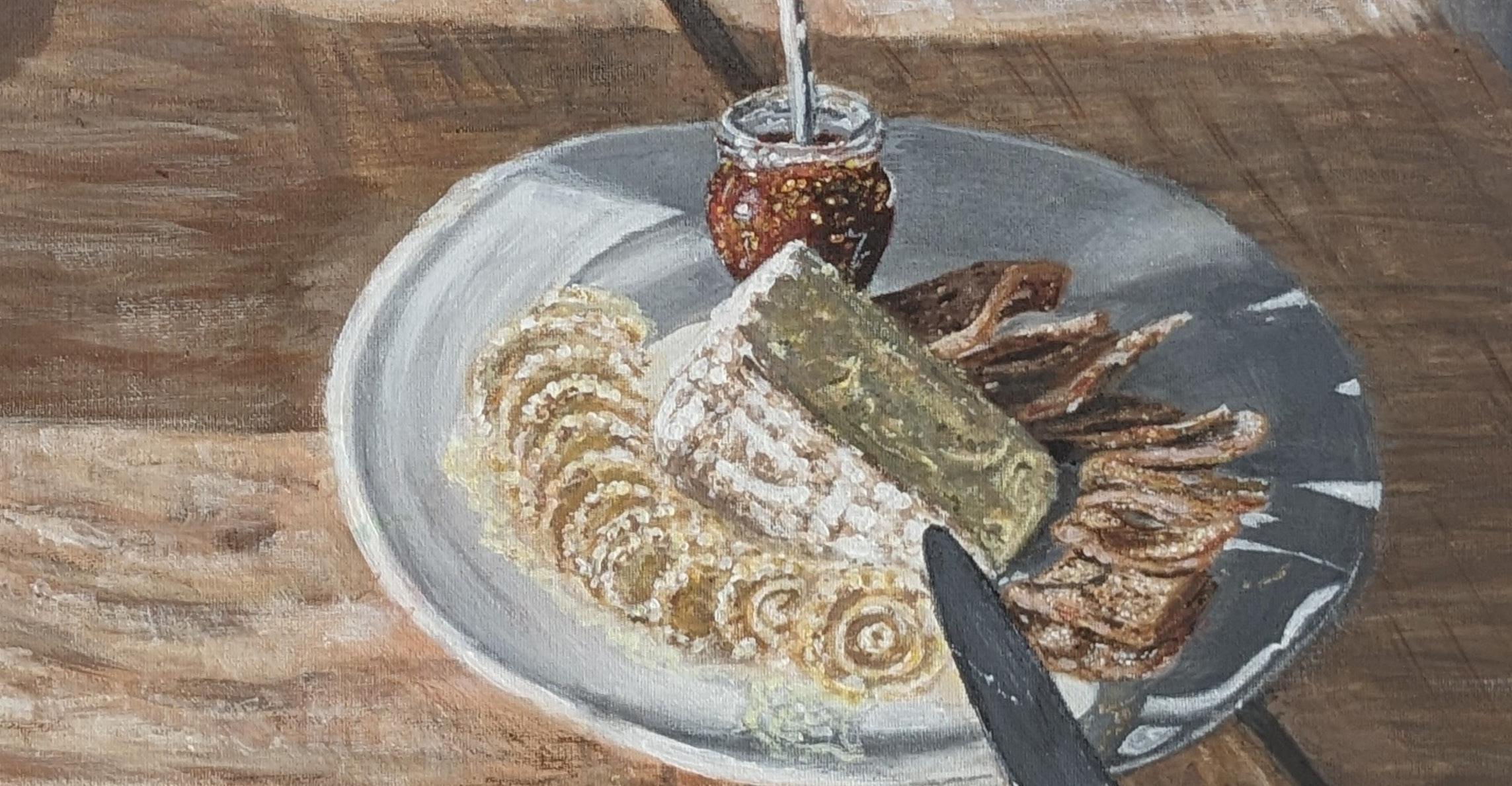
so I had absolutely no complaints. Exiting the warmth of the store and moving into the first rays of the morning light, we began the short stroll back to my grandmother’s apartment. As a seven-year-old, I felt that I was completing a very important task: I was feeding the family. In reality, of course, the only thing I actually did on those trips was help my grandmother carry the bags, while smiling in anticipation of my wonderful breakfast.
As a child in love with bread, I never stopped to think about where it came from. Part of the reason why countries in Europe, such as France, have such a constant supply of bread for their huge populations is due to certain places that cultivate immense fields of wheat. In particular, the country of Ukraine has been one of the top sellers of wheat since the late 2010s, most of which is turned into bread. After the fracture of the Soviet Union in 1991, Ukraine slowly began to establish itself on the world market for wheat, accounting for 9.5 percent of global wheat production in 2021. Then, in early 2022, Russia invaded Ukraine and threw the world into crisis. The vast fields of wheat once regularly harvested were now a battleground for vicious
fighting. The beast of war trampled through the once-peaceful farmlands, leaving twisted shells, poisonous chemicals, and the debris of battle in its wake. The once-booming wheat industry has now become a fraction of what it once was, and Ukrainian farmers take what they have to neighboring countries in order to avoid a complete collapse of the economy. It is still unclear what the long-term consequences of this brutal war will be, but yet again we see the effects of history on bread and the effects of bread on history.
As I finally laid out the bread on the breakfast table for my family, I remained happily unaware of the struggles people have gone through to put this special food on the table through history, from the days of the Bastille and the Bolsheviks to the Ukrainian farmers braving war today. The journey from wheat, to flour, to family meal is usually forgotten as people enjoy their daily bread. One last task remained before I could indulge myself. It was now my job to rouse the rest of the family.
“C’est l’heure du p’tit dej’! Allez, allez, allez!” (It’s time for breakfast! Come on, come on, come on!)
As groans and yawns filled the apartment, something much more
interesting also began to permeate the space. Just as with every other family in France, the boulangerie had made its way into our home. The smells, the breaking of bread, and the sight of a red-and-white tablecloth covering the dining table made me realize that this was the only place in the world where I would ever feel this way. It’s not only a part of my memories, but a part of who I am now, as a part of me will always be a seven-year-old boy sitting at the kitchen table of my French grandmother, gazing at the most iconic of all French foodstuffs. A source of energy for ordinary people, and a force of historical change; bread has been many things, but to me, it will always represent a personal, ever-present connection between my grandmother, my family, and France.
A source of energy for ordinary people, a force of historical change; bread has been many things...
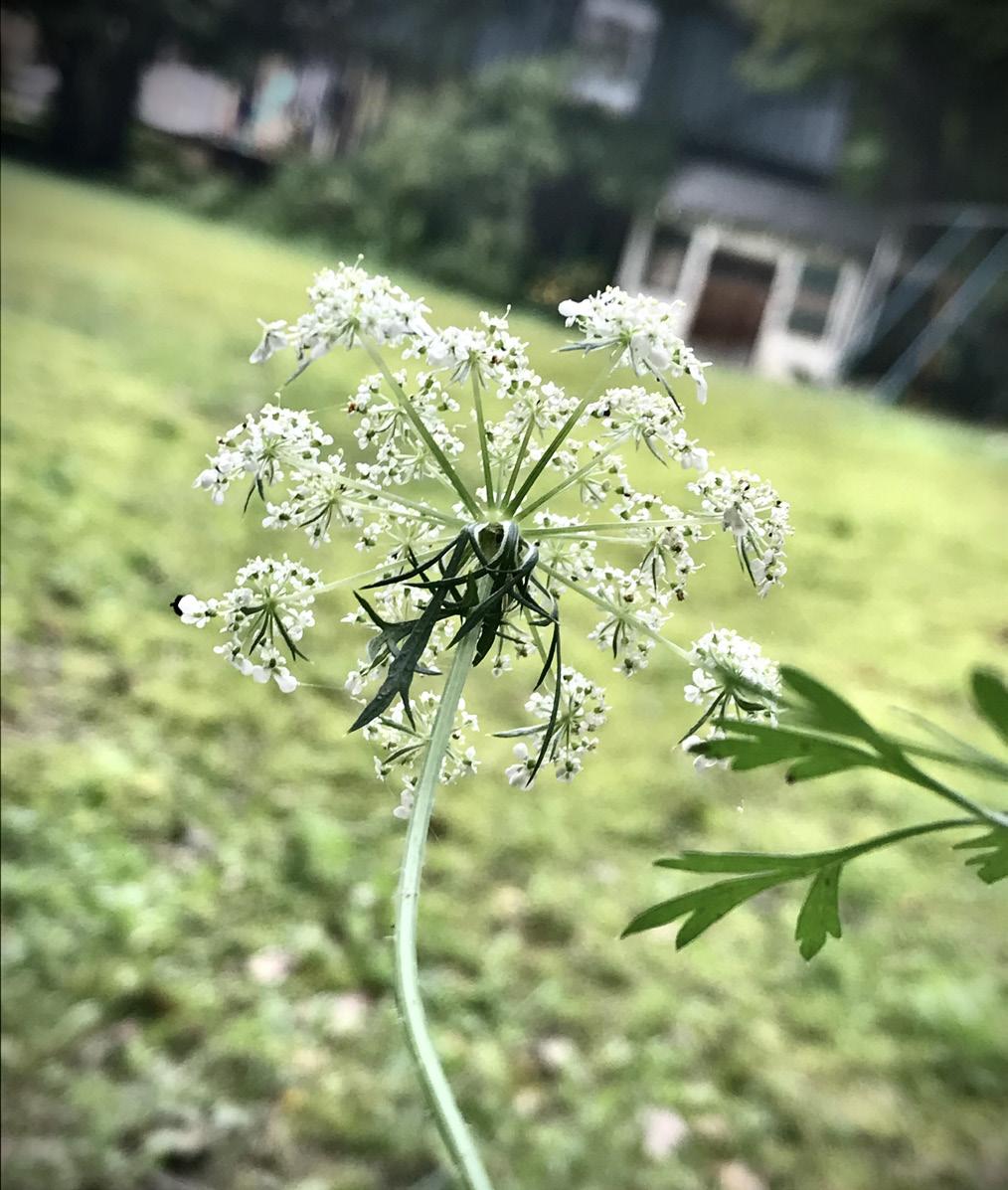

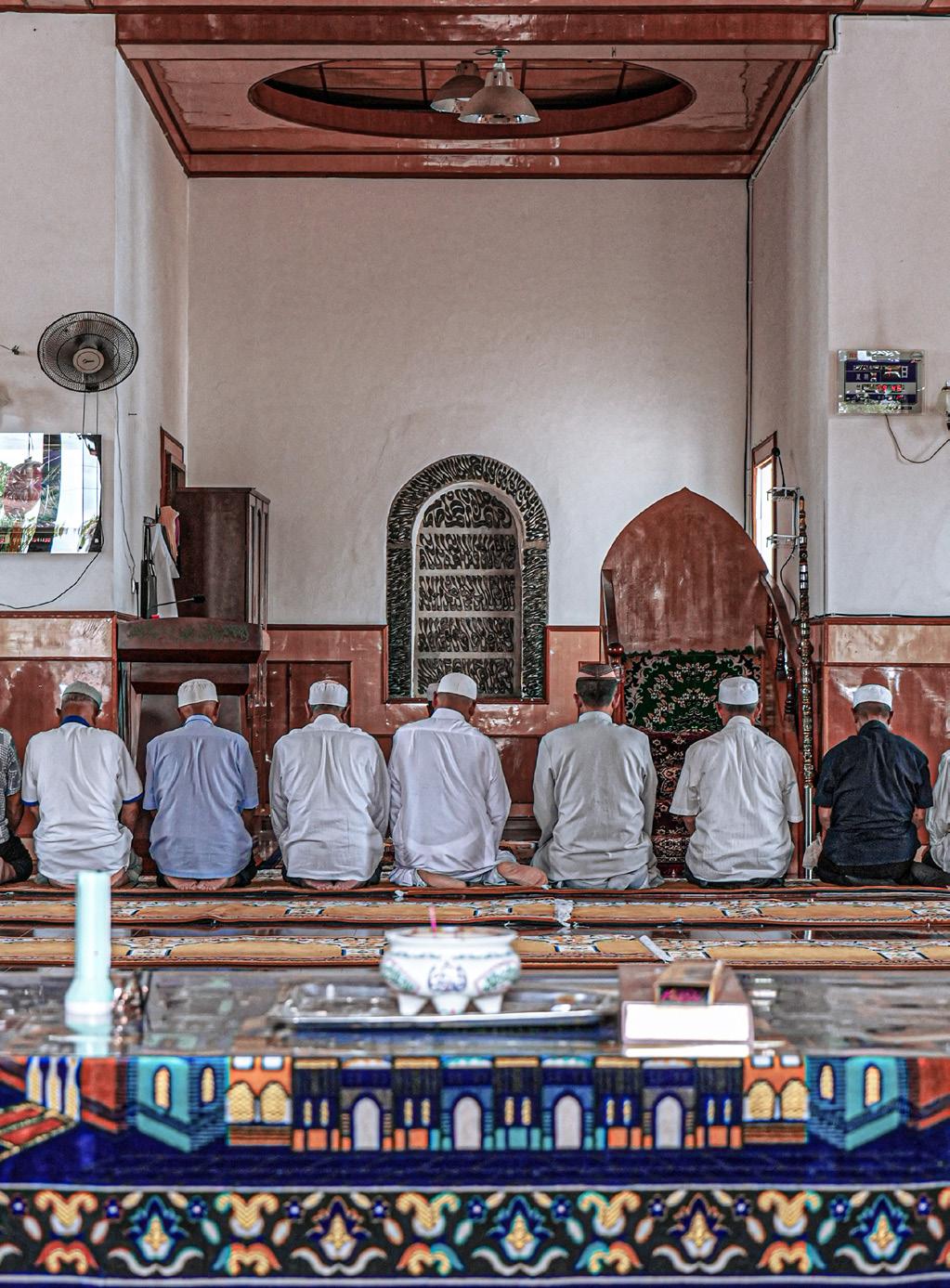
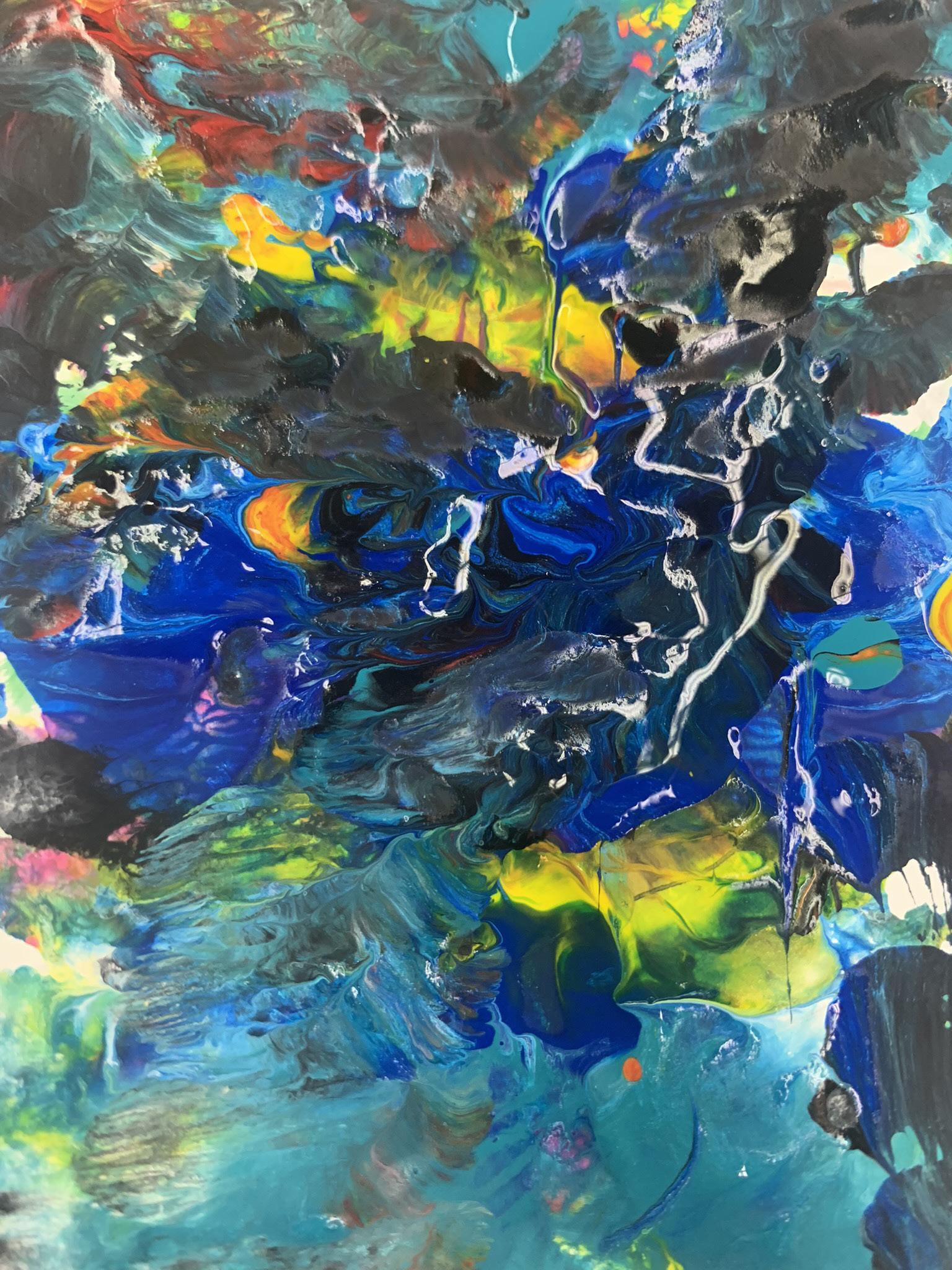
We had this tradition on Tuesday nights, in which we would go to Victor’s Pizzeria on Route 110 after my choir practice. Our order was always the same: fried calamari, two slices of Sicilian, garlic knots, and a Dr. Brown’s cream soda. The small ristorante that was never painted or decorated still came to life with the sound of the debates that we loved to carry out over food. We bonded over the films he shared with me on his small, square TV, whose back reached so far my young arms could barely reach the “on” button. Our relationship blossomed earnestly in these disputes, more intense than the Vietnam War, which he loves to tell people he fought in (even though his poor eyesight made him ineligible for the draft).
With a garlic knot in one hand and marinara dipping sauce in the other, he argued with animated Italian hands: “Listen slim, I’m telling you there is no way the Egyptians built the pyramids. Do you know how much those bricks weigh? And how did they build it so perfectly?”
Elizabeth Taylor’s “Cleopatra” was especially divisive in the debate on aliens and the Great Pyramid. I think “Ancient Aliens” on the History Channel changed his life, so much so that I think he thinks he came up with its theories. Because he was the founder of an architecture company (to the best of my understanding), he was sure the only possible explanation for the construction of the grand structures had to be aliens.
“Papa,” I said taking a stand. “You need to have more faith in people. I 100 percent believe the Egyptians built the pyramids. If there were aliens who built them, then wouldn’t there be pyramids everywhere? And wouldn’t they have given them more advanced technology?”
“Here’s the thing,” he responded. “What I believe is that aliens from outer space came down and taught the Egyptians and gave them some technology.”
In my freshman year of high school, I performed in a production of “Hair,” which is a hippie-flowerpower-drug-infested musical that rejects the capitalism and monogamy that surrounded life in the ‘60s. It made the other old people in the theater react with sour faces and shaken heads at the final bow. But even in his old age and MAGA hat, he loved it. He would call all his friends after my
performances to brag about his grandson’s talent.
In the fifth grade, four years prior, I drew a picture of two frogs: one was red and one was blue. When I held it up to my art teacher with pride, she frowned, saying “Frogs are not red or blue.” I gave it to my Papa later that day and he pulled a silver frame from a black box in his closet. Above the mantle and below the famous TV was now beholden to my artwork for the world, or even just us, to see.
Of course, we argued whether a frog could be red or blue, but even in his disagreement, he never took the picture down. My picture.
Sometime last March I sat on the tip of a stool with my body morphed into a yoga-like pose at the kitchen island, reading through the last page of that night’s assigned American history homework, when I heard Fox News’ anthem echo loudly down the hall. My eyes rolled back, and I dropped my blue highlighter above the last section, called “Polarization in the 21st Century.”
With a swift jaunt under oak scaffolding, I intruded on his weekly 7 p.m. date on Channel 5 with Laura Ingraham.
“Hey Papa, I’m doing homework, so—”
My Grandpa Andy, or Papa as I call him, is probably my closest friend in the world.
“Can you believe this? This administration? Bring me back to Reagan, am I right?”
No, he wasn’t right, at least in my opinion. His controversial convictions would often jolt my Italian hands awake with frantic gestures in a passionate response. My zest for the art of the argument made me appear like a cartoon character trying to swat a bee away. But, he seemed almost in a trance as he listened to statistics on city crime rates, as I started across the navy blue rug with yarn as thick as my Papa’s bushy gray hair that I used to run my fingers through. I grabbed the remote from the side of his black armchair he appeared to be sinking into.
“Hey, what’s the matter?” He finally peered from the screen.
“Papa, I have homework to do, and hearing Laura Ingraham’s voice is not necessarily inspiring for me.”
“She’s right, you know, you can’t go out in New York City anymore, I mean when I lived in Brownsville,
life was—”
“Just because people are finally speaking out against corruption doesn’t mean the city is dangerous. I actually think these people are really—”
“Did you know that nowadays they are letting just anyone out of jail? These people are—”
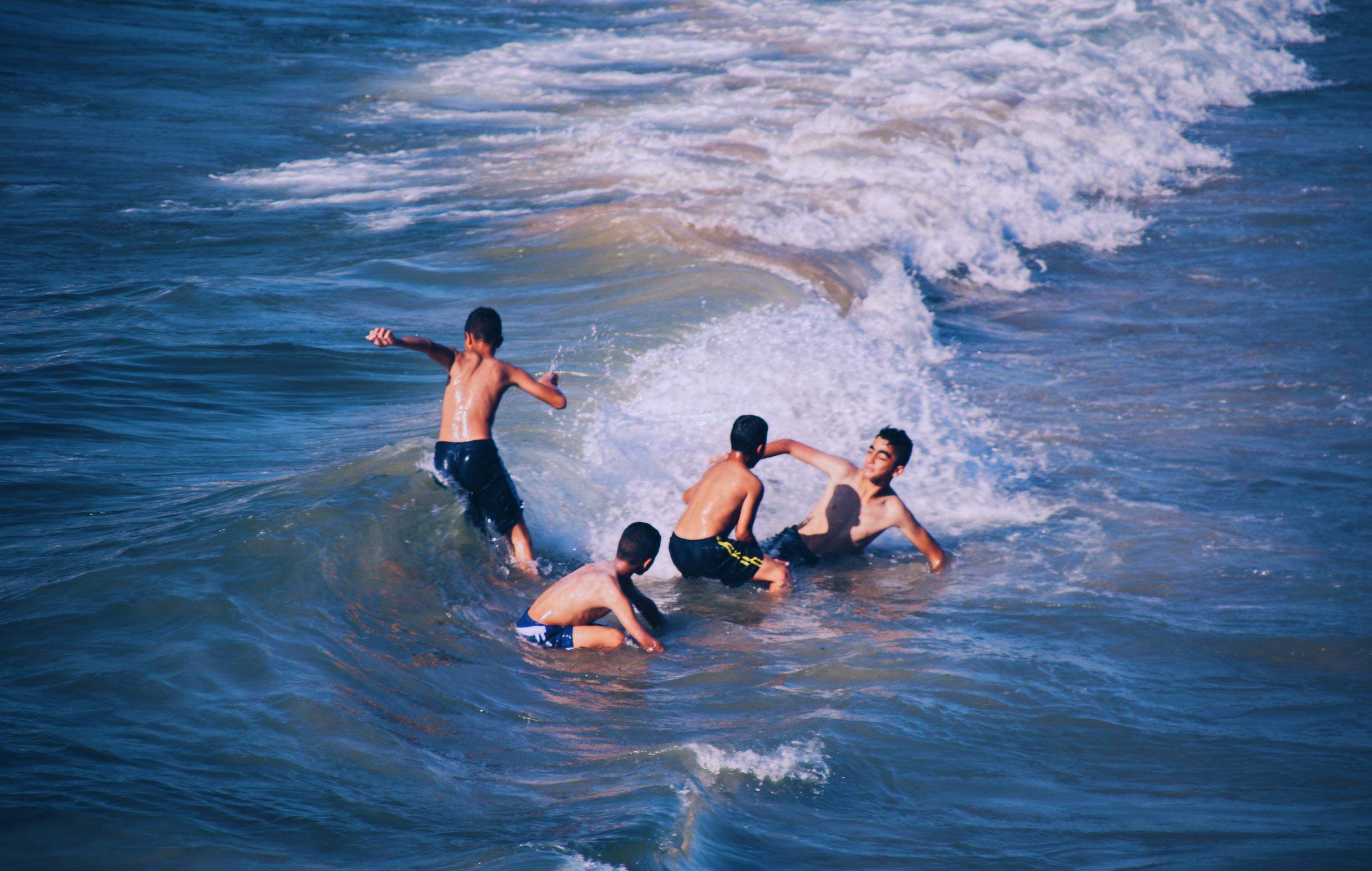
“Okay Grandpa, just turn it down please.”
“Alright, alright, I’ll turn it down.”
A shiver seeped through my shoulders and spine as I began to leave his room. Over time, our onceinnately loving debates became sour. Even quite literally. In 10th grade, I made it to the state tournament for my debate team. I was allowed to have a few close friends and family attend. I normally would have invited my Papa, but I was scared that my speech about toxic masculinity would make him disappointed. Our examinations of characters like Dorothy and Toto and whether or
not they were guilty of the murder of the Wicked Witch of the East had, over the last three years, somehow devolved into balled fists and gritted teeth whenever we discussed Donald Trump and Joe Biden. My passion shifted from art to policy, but this was an area where the two of us couldn’t find common ground. I longed for the day we could laugh and smile together once again, but simultaneously sighed whenever my mom told me to ask him whatever his dinner order was from the local Chinese restaurant, which by the way, was always the same thing. I would feel my muscles tense up and ricochet, aching at family get-togethers where he spewed his xenophobic comments like a volcano burning my skin and my soul. The wrinkles in his face were like a deep crevice I once crawled from the carpet to grasp. I would play with them like PlayDoh, but now his scrunched-up expression left me feeling frustrated with a heart both heavy and empty at the same time. ***
Before finishing my homework, I decided to go to the refrigerator in the garage, a.k.a. my Papa’s lair, where we always kept the Diet Cokes. Grabbing the cool refreshment, I saw a pack of six Dr. Brown’s Cream Sodas held together by a flimsy piece of plastic. I was reminded of our tradition of going to Victor’s every Tuesday night when I was younger. I could even taste our order in the air: fried calamari, two slices of Sicilian, garlic knots, and a cream soda.
Closing the fridge, I saw a black box sitting on my Papa’s table: home to his hammers, screwdrivers, and any other MacGyver-type tools. Curiously, I removed the top that seemed to be coated in an oil-like substance that stuck to my fingers annoyingly.
The first thing I removed was another box: a box that was so worn out its leather seemed to have changed colors at some point. Inside, I saw the cheap watches my Papa used to praise when he talked about being a poor city kid who loved to feel like he had nice things. I removed his black belt in karate that he would brandish at every family gathering in order to remind us of his expertise in the martial arts. There were knickknacks, bobbleheads, baseballs, and recipes, but the last thing I found was a white piece of paper with an ominous title across it:
“The Brownsville Boys”
Brownsville? I thought. That was that Brooklyn town he said he was from.
Flipping it upside down, I realized what I had my eyes on was a photograph. In the photo stood seven teenage boys, aged by black and white hues.
They were standing on a beach in white polos and khaki shorts that I’m sure they stole from the local tailor. The moment seemed in action, with a Ferris wheel in the background and a man with a light hat shaped like a paper sailboat handing out food under a sign that
read “Pickles for 5 cents.” Some of them were smiling, some had their tongues out, and one of them had his hands wrangling his hair like the neurotic Jewish immigrant I’m sure he was. I forgot my Papa once led a completely different life.
I didn’t even realize at first that it was Coney Island. My friends and I went there a few months ago. We went on this one ride with lots of turns and jumps called The Cyclone, which was both fun and genuinely terrifying, since I was almost fully sure we were not actually secured in our seats. I saw The Cyclone plastered on a sign in the distance. I liked the thought that our adventurous feet once journeyed the same coast, at the

same age, worlds apart, yet also so close at the same time. I wondered if he got the same blisters I did from all the walking in the intense, humid heat, making the sides of my shoes collapse in on my feet and leaving them in pain later on.
Sometimes you forget your family members were once your age. So passionate, so full of life, but also so confused at the same time. I never realized my Papa and I looked so much alike — at least, I’m pretty sure the one in the middle holding a hot dog was him (scratch that, if there was a hot dog, it was most certainly him). The seven of them looked so happy together; reminiscent of me and my own friends, who similarly brought our
digital cameras around town, taking pictures everywhere from our favorite frozen yogurt spot, to the mall, to our school’s football field after hours. My Papa always discussed what it was like growing up with basically nothing — living in the slums, having no dad for himself, and being the one to raise his siblings. I always thought I believed him, but I
Tata, My Grandmother, What language do you speak? And how do I learn it? How can I hear it?
couldn’t see it in my eyes or feel it in my heart until now.
The photo was tinted gray on its sides, like a frame had once covered the picture. His picture.
Something about seeing him happy, even with nothing, gave me the drive to march back through the adjacent hallway to his bedroom, where I brought the photograph to his desk.
“The Brownsville Boys.” He said with a smile on his face like he wanted me to find it.
“Who were they?”
“We were the Kings of Brownsville, Brooklyn. I think it was a Friday, so we cut school and went to the beach. That guy to the left, that’s Mortie, he’s the one who came to your Bar Mitzvah. He was always the most successful. And that guy next to him gripping his hair is Howard, or as we all called him ‘Howard the Coward.’ He was scared his Ma would find out we skipped school for Coney Island that day. Oh and that guy next to him is Will Thompson, he died from AIDS, but you would’ve loved him, he was a musician and he was the life of the party…”
He took the photo from my lap into his hands and held it up.
“And that handsome fella in the middle is me. That was a great hot dog. Nathan’s is the best — I’ll take you there. Speaking of hot dogs, you know I used to work at a bakery actually, and let me tell you the way you make the best bread is…”
For once he was calm and his wrinkles faded so much, he almost looked like the smiley boy in the photograph. As much as I loved our debates, I was happy to see him happy, with his Italian hands observant rather than militant. Nothing mattered besides the jokes we cracked, his old friends, and sinking into the arm of his black chair right next to him.
“Hey Papa, Victor’s Tuesday?”
“I’d love to.”
And understand every word you say? How can I tell my grandmother my stories, with my mother as my translator? If I do, are they even my stories anymore if they’re interpreted in a way I can’t understand?
“Ena behebik tata” and “mishtatick ecteer.”
(I love you grandma) and (I miss you so much)
Are the only phrases I know, although, do they really mean anything if I, can’t say anything else at all?
My dear grandmother, who makes gadge ou farouge (chicken and potatoes) and my favorite warak eneb (grape leaves) How can she understand my gratitude if all I can say is “shookran” (thank you) and leave?
“Min eedi, habibti” (from my hands, beloved) she tells me with twinkles in her eyes. It’s as if she sees herself through me. She has the biggest smile I’ve ever seen. It’s scary that I can’t see myself back. I’m scared I wont be able to smile back, or show the same twinkle in my eyes, or appreciate the way she speaks, or the food she cooks.
I can’t disappoint the culture I represent, with small phrases and ties.
“Asphe, ya tata.” (I’m sorry, grandma.)
Sometimes you forget your family members were once your age. So passionate, so full of life, but also so confused at the same time
For the first nine years of my life, I had made my summers in Israel out to be a utopian fantasy: the beach and bustling cities and the feeling of belonging I’d get by simply existing there. Until I was almost 10, I would imagine that my other life seamlessly resumed when I stepped foot outside of Ben Gurion Airport. Déjà vu would embrace me, as the hot and humid winds blew across my face, while striped curbs painted red and white met my eyes, and I could finally taste the air, infused with nostalgia.
Per my annual routine, in 2016 I walked into my grandparents’ Netanya home in mid-June, pulling a suitcase that weighed as much as I did, and found my Safta and Sabba, each with a new wrinkle or sunspot on their skin, inside their home that had remained unchanged as if I had never left.
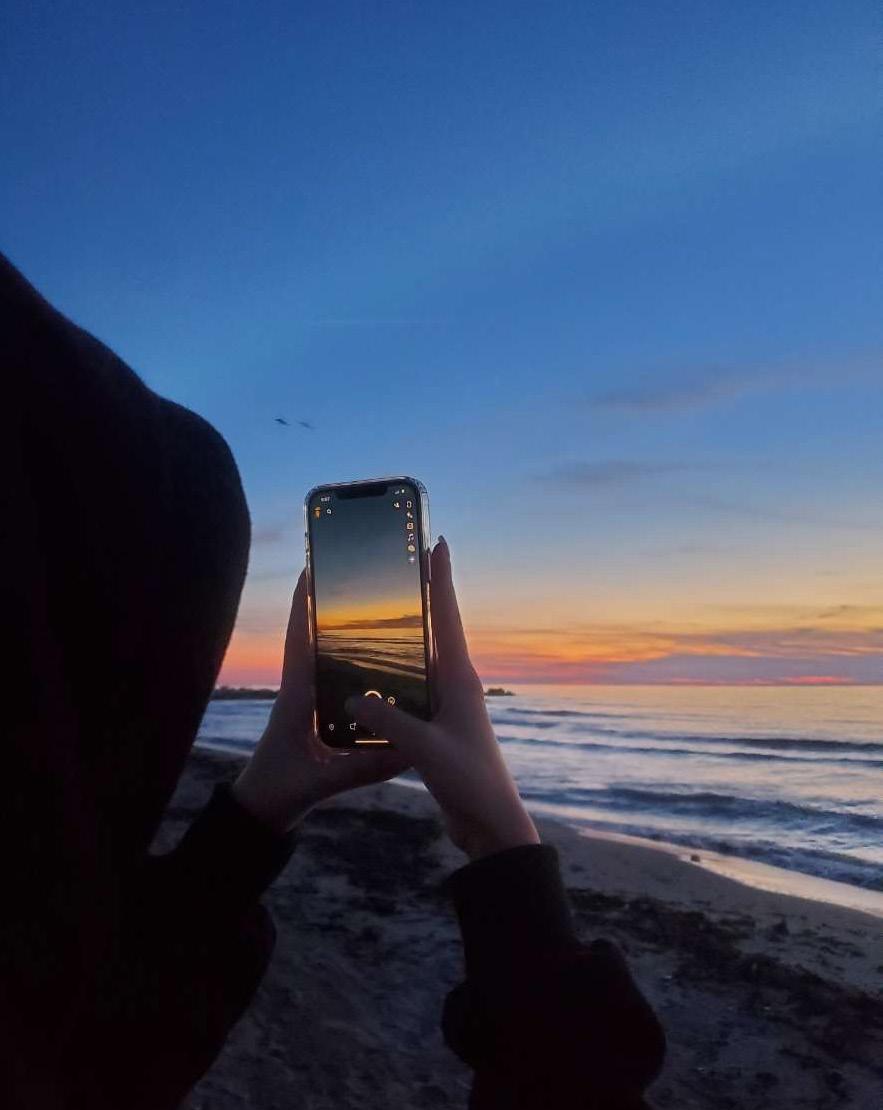
Within those initial days, Safta, my grandmother, promised she would take me to downtown Netanya, where she insisted on buying me anything and everything I wished for. We hopped on a small bus that stopped just outside of the home. The passengers included a couple of young soldiers in uniform heading home for the weekend; several wives, some of whom hid their hair beneath headscarves or wigs, per Orthodox Jewish tradition; as well as others who lived their lives differently.
On this day, I remember strolling through the heart of central
Netanya, its air filled with tranquil chatter in Hebrew, French, and Yiddish, and the scorching Mediterranean sun that blinded me. Suddenly, I could feel my nine-year-old ears startled by blaring sirens that pierced through the air, triggering a collective response from my grandmother and the hundreds of people in town surrounding us, to locate a nearby bomb shelter within those fleeting seconds. I could see peoples’ bodies rushing in different directions, but when I looked at their faces, I could not understand why they were so calm when my face felt tense and anxiously hot. As I stood in place, frantic and confused, I felt my grandma’s warm hand tugging my arm and pulling the rest of my body into the nearest shelter she could find: a narrow and windowless craft store called מוזלים. There, we joined a handful of mothers and their children sitting in the back of the store, who seemed rather calm and collected. In what felt like the longest minute of my life, I sat in the craft store, innocently contemplating the weight of the scene I was living in. I asked my grandmother, mah zeh haya? (What was that?) I would soon discover that this was the reality Israelis and Palestinians had endured for decades.
The sirens indeed came to a halt and no annihilation was visible to my eyes. But only 98 kilometers away, I could have found myself amid the other side of my paradise; where millions of Palestinians roam among pure havoc in the outskirts
they have been pushed into.
The families around us had resumed their day: the mothers pushing strollers while trying to break up the arguments between their eldest children. Safta proceeded to ask me if I wanted my gift to be something from this craft store, and still, in shock, I told her I did. At that moment, I realized that what I deemed a life-flashing moment, Israelis and Palestinians accepted as normality.
We kept returning to Israel every summer in the years that followed, visiting my family’s houses that remained unchanged amid every siren that echoed by their homes. Initially, I felt guilty, realizing that my previous idealization of Israel could be perceived as obliviousness by those who experienced its realities firsthand. Prior to that day, I could never bring myself to view Israel’s clear ocean shores and primeval limestone Jerusalem walls as any less beautiful. However, in the evening after the bomb warning, as my ears and mind were taunted by the now-familiar sound of a ringing siren, I began to reimagine my utopia. Suddenly, Israel became flawed — or rather, everything that once concealed its flaws from my eyes had been wiped away. I grappled with the feeling of being deceived — like when you accidentally find out how a magician made you think they were flying. I felt ignorant and disappointed in myself — that I had been looking at the world and my “fantastical” home through such a
filtered lens. And more than that, I felt mildly responsible.
I realized at the age of 14, when I dedicated months to thoroughly
researching the Israeli-Palestinian conflict, that this complexity was beyond my control and said nothing about my own character. I gradually understood that the place my parents could call home was a reflection of the past, as well as the present’s failure to ensure it does not repeat. Inevitably, I still visit my family once a year, but no longer do I feel deceived by my summer home. Rather, I travel halfway across the Earth with an open mind and an understanding of coexistence that I am thankful to have. I still feel a sense of pride itching in me to embrace Jewish culture 7,605 miles away from its origins. And I now annually walk along sidewalks with curbs painted in red and white and acknowledge that the land on which I stand is far from perfect.
In the evening after the bomb warning, as my ears and mind were taunted by the nowfamiliar sound of a ringing siren, I began to reimagine my utopia
At that moment, I realized that what I deemed a life-flashing moment, Israelis and Palestinians accepted as normality
1. “BOY, METRO AND DREAM”
BY ZEYI ZHANG, SHANGHAI, CHINA
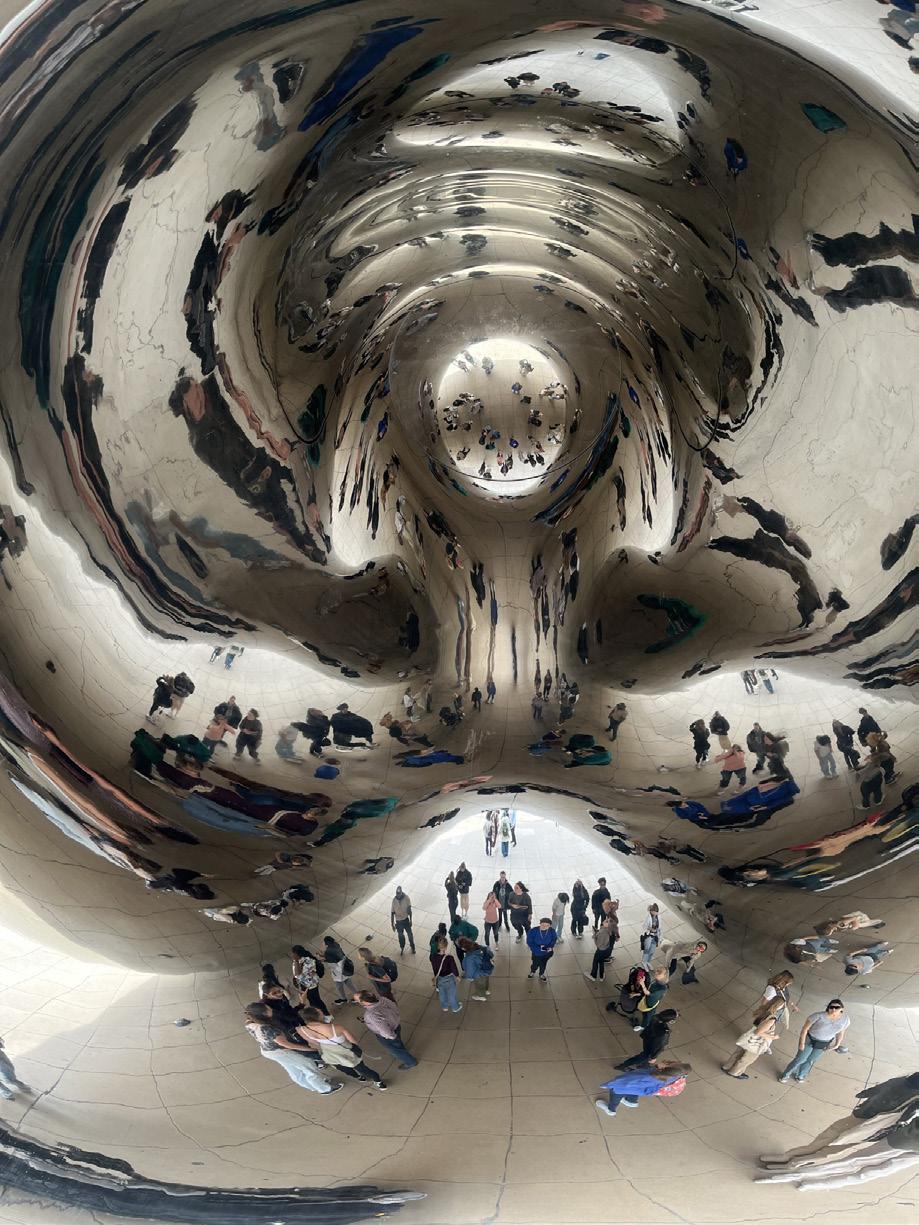

2. “REFLECTIONS WE’LL NEVER REALLY UNDERSTAND”
BY BROOKE LEWIS, WEST OLIVE, MI
3. “SPIRALING DOWN”
BY JAYDA WANG, KENT, CT
4. “DAWN”
BY BEATRICE VAUGHT, CHARLESTON, SC
5. “A WOODEN PATH”
BY SAMANTHA KIM, MENLO PARK, CA
6. “THREE COLORS”

BY XU ZHAO, SHANGHAI, CHINA
7. “ECSTATIC”
BY KRISTEN WANG, SHANGHAI, CHINA
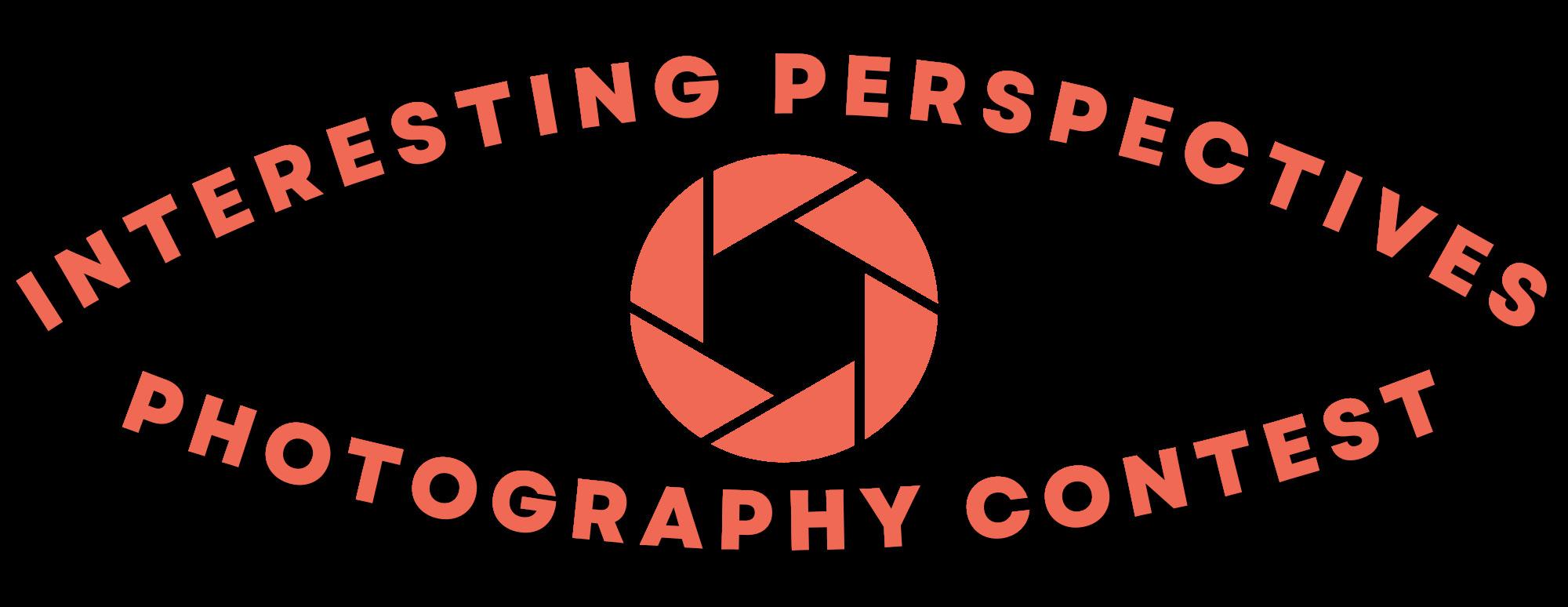


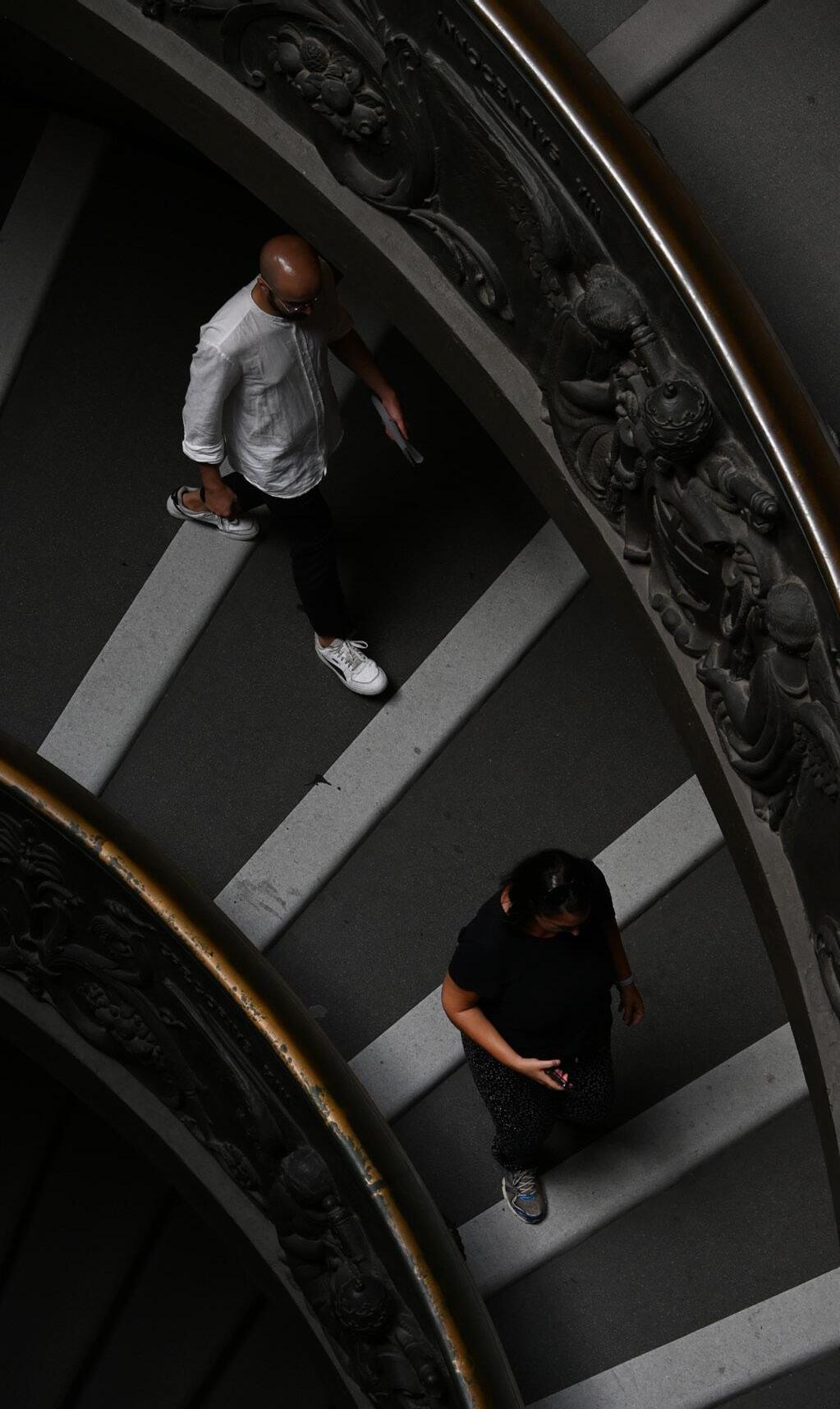
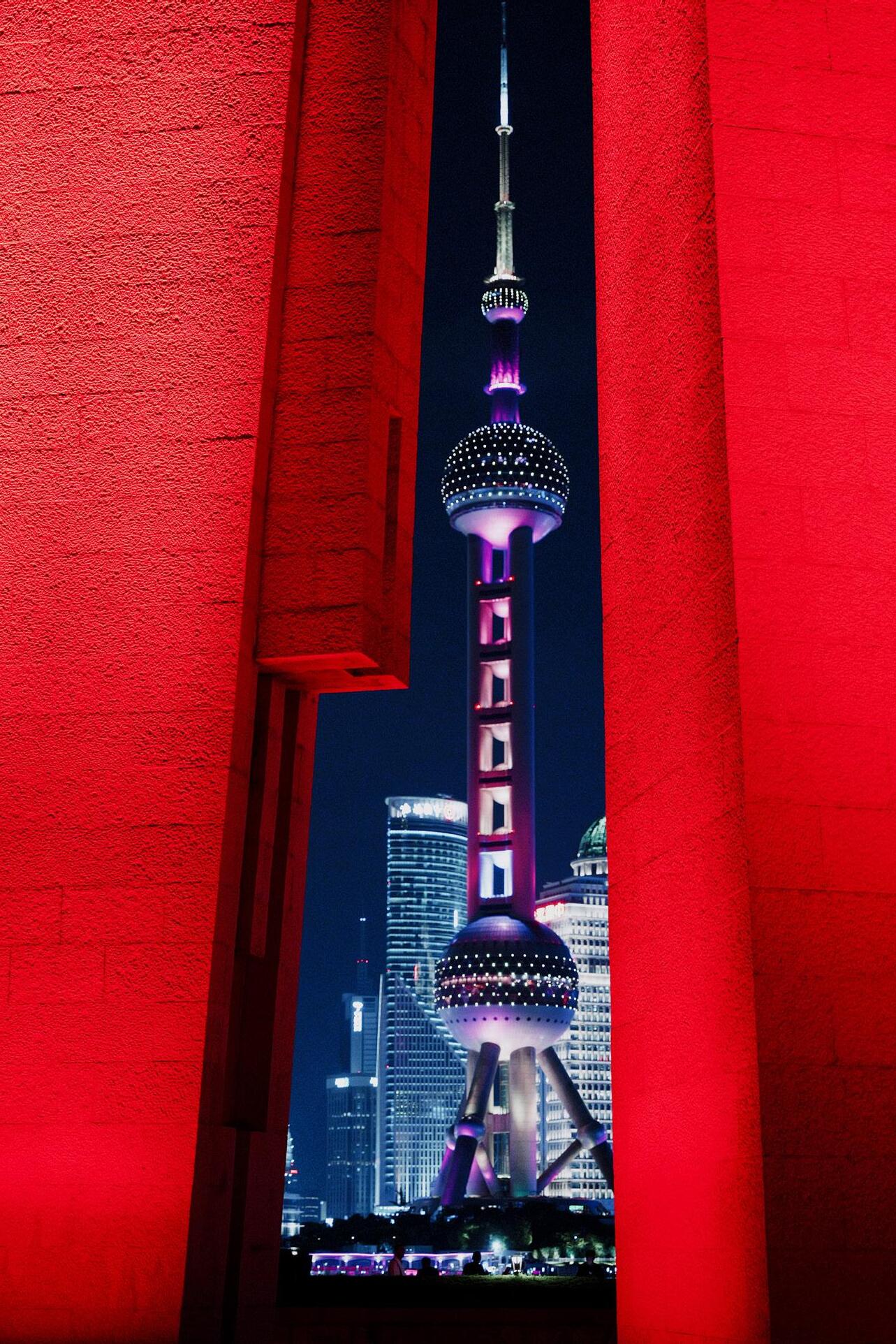

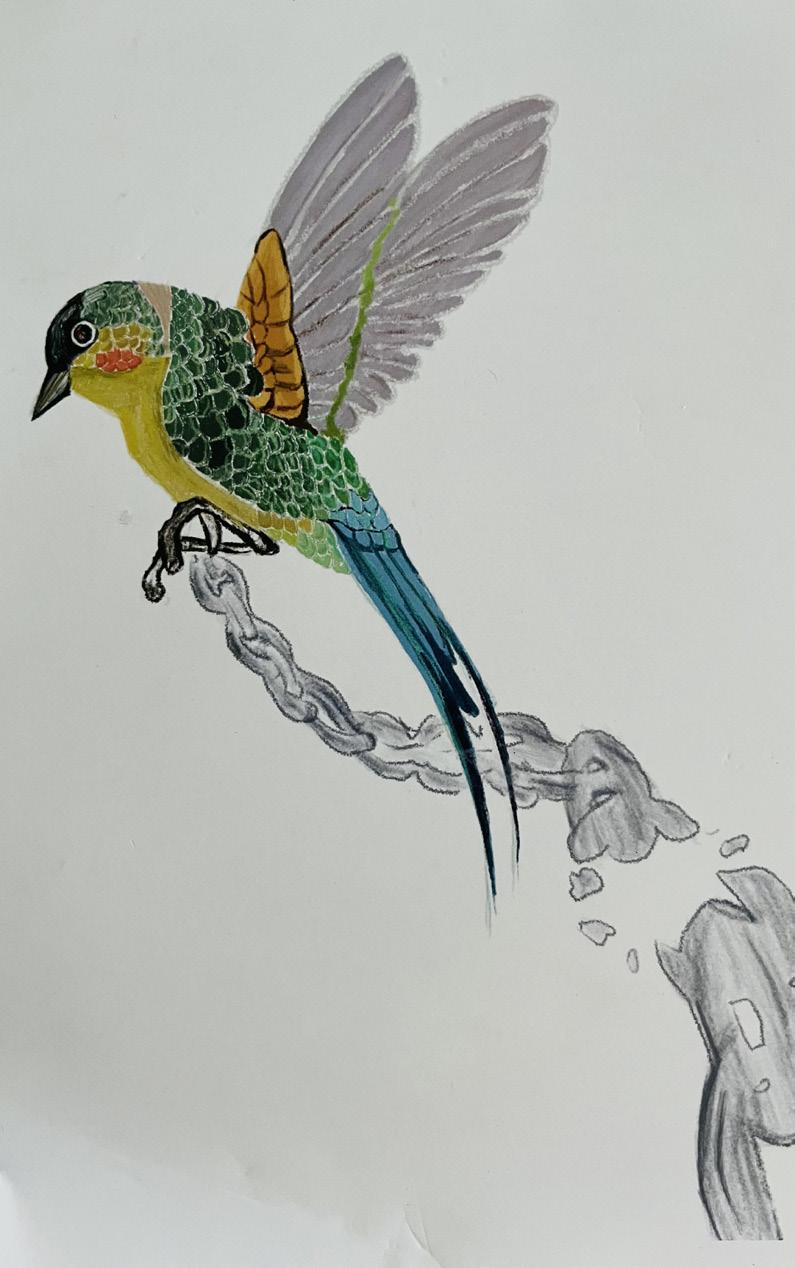
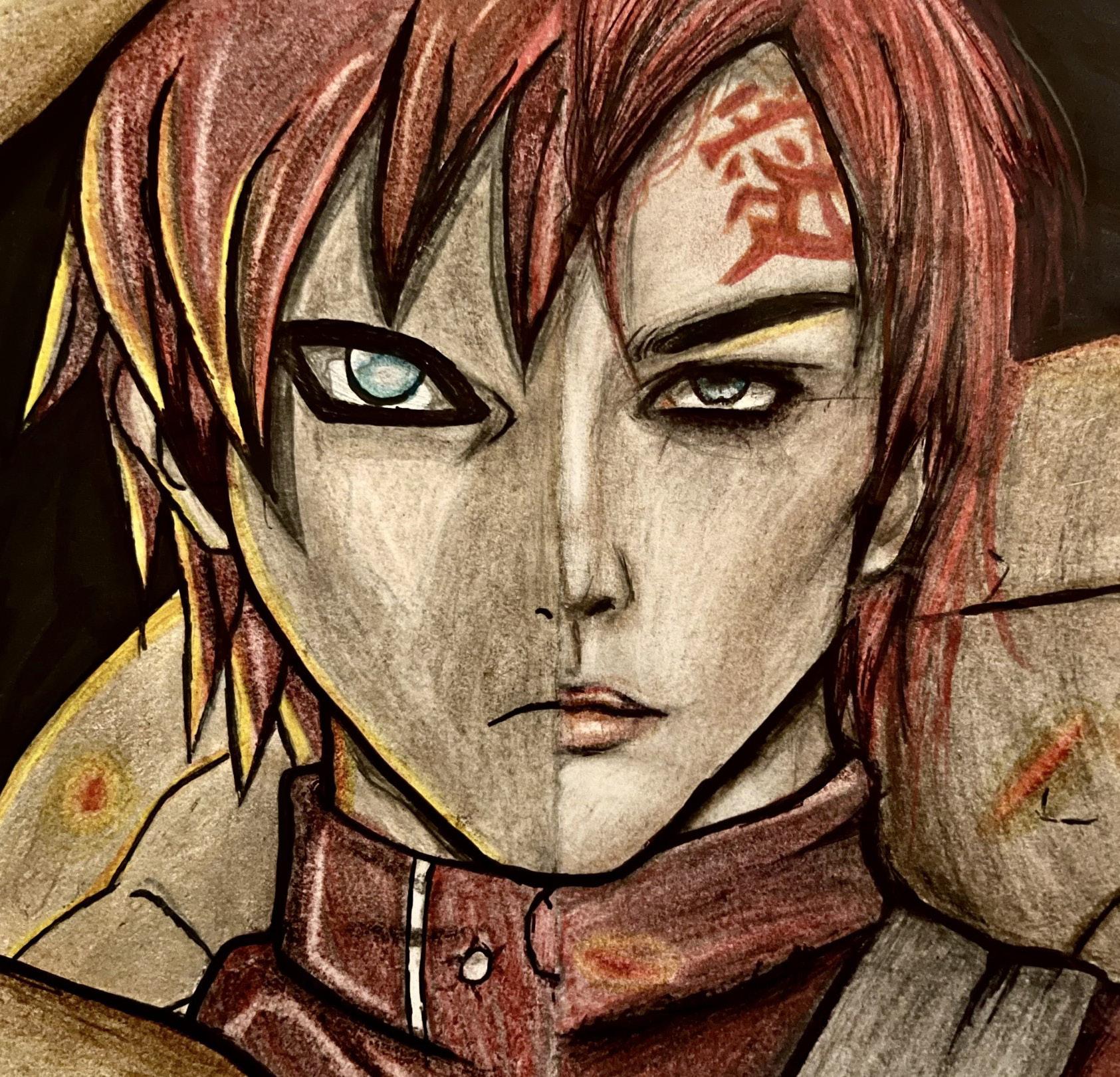

They call me the Monster of Meyer’s Forest.
All the stories they tell about me end in my clawed hands ripping the hearts out of unsuspecting children or my gaping mouth that stretches wide from ear to ear ripping out women’s throats.
According to them, I snatch babes from their beds and drain virgins of their blood.
According to them, I’m an unredeemable monster. Someone who is not human, animal, or spirit. Something…
Other.
A wicked wraith with hair as black as night and eyes as red as blood. A demon who lurks in the foliage, watching as men and women enter and exit my forest to get to town. They clutch their crosses close to their bodies, lips moving silently in prayer.
As if a piece of wood will protect them from my savage attacks, even though they tell their young that nothing can stop me. Not even the thing they call a God.
People have come before to see me, to witness my lithe, pale body perched in the trees.
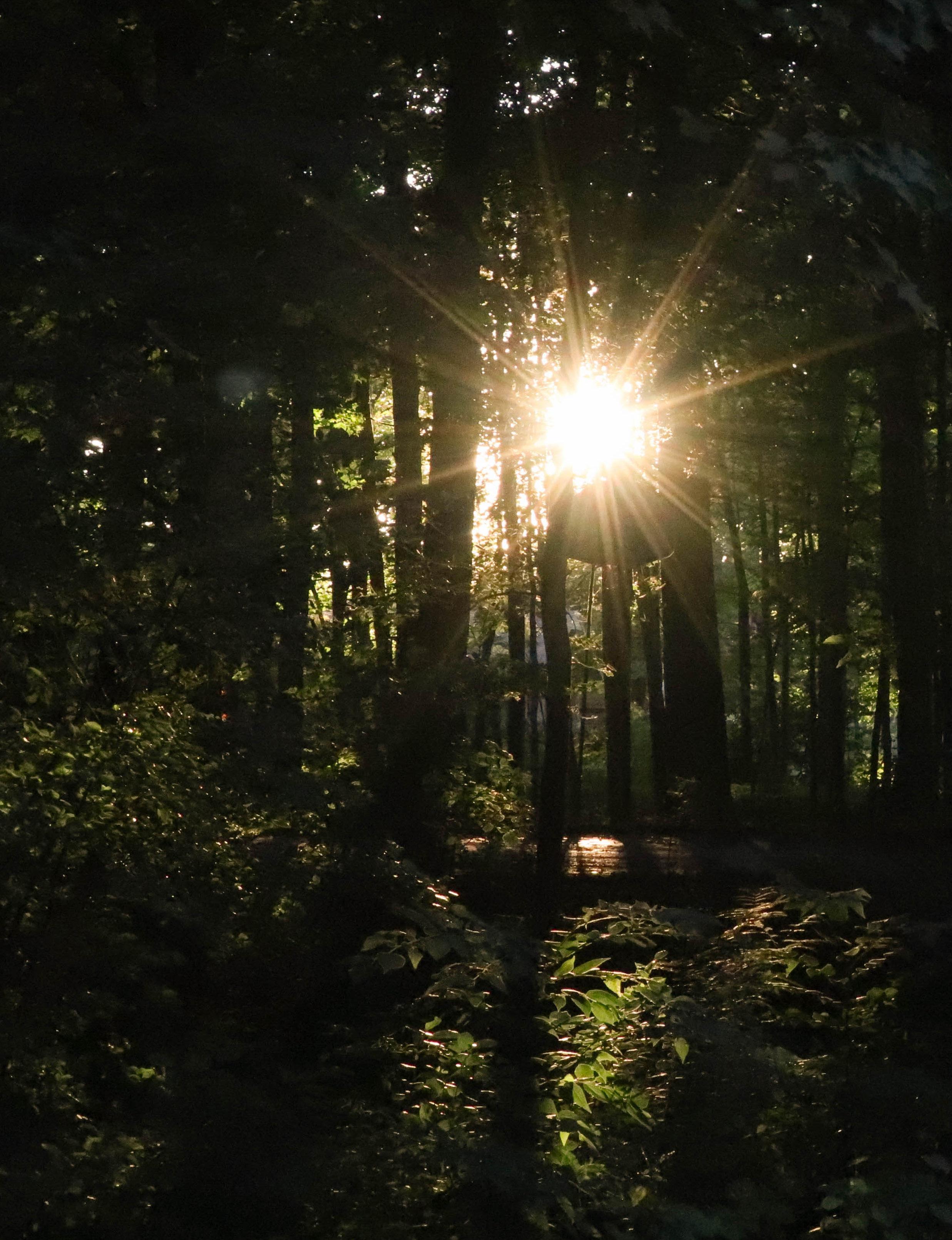
Watching.
Waiting.
Somehow, people fabricate that they never leave. That those who traveled from far and wide to witness me met an end so gruesome people shake with fear when recalling them.
Apparently, I ripped out their eyes and feasted on their entrails.
I ate them whole with ease, blood painting the ground red.
Or, some say, I led them into my cave and locked them inside.
Watched them starve and wither with satisfaction on my face.
They conveniently forget that I haven’t been seen in years.
Maybe, someday, someone will actually tell the truth.
Let those humans know that a monster is only what you make of it.
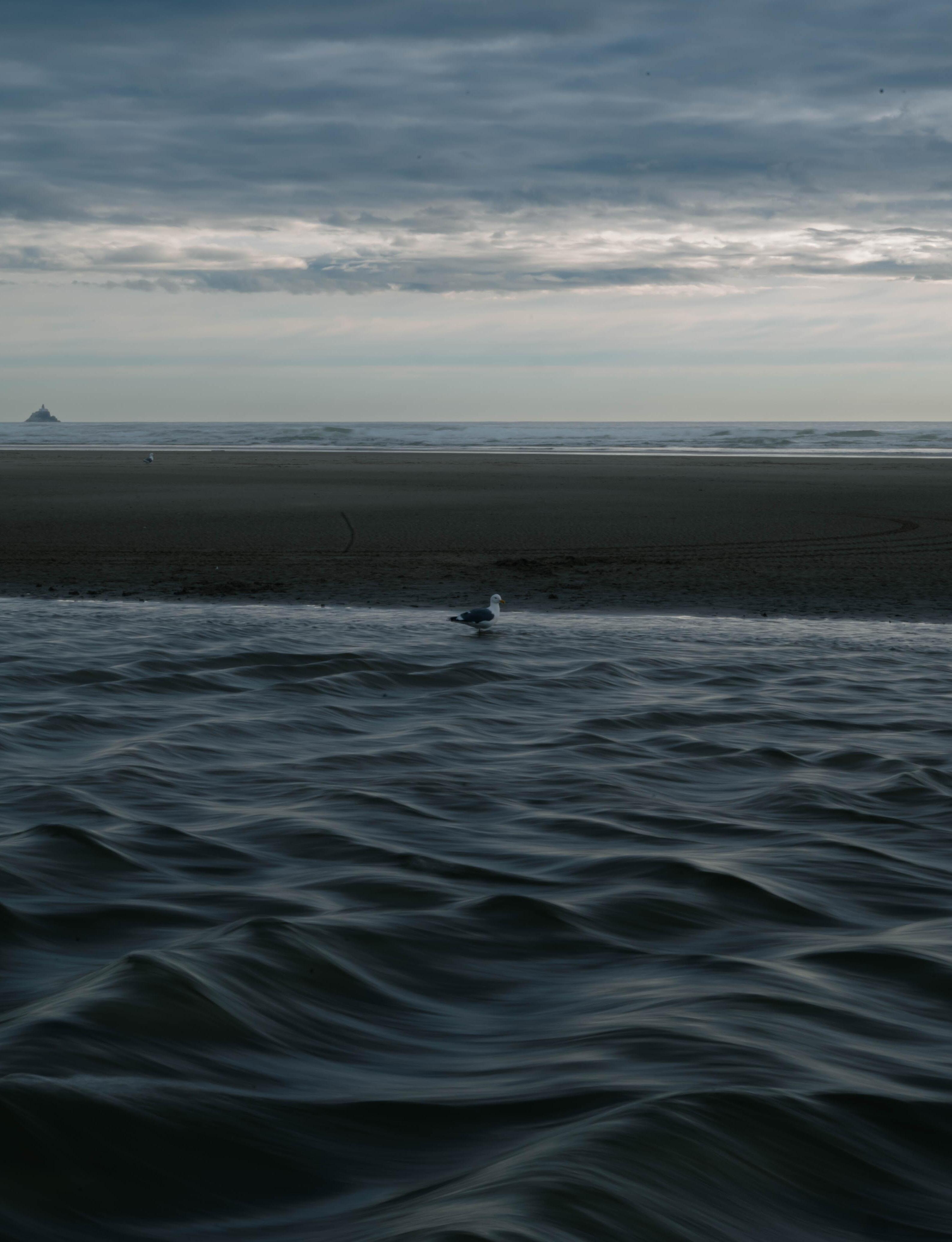 STORY BY ANONYMOUS
PHOTO BY EBAN SLATE, PORTLAND, OR
STORY BY ANONYMOUS
PHOTO BY EBAN SLATE, PORTLAND, OR
Finn held the ropes in his white-knuckled grip, the harsh weaving digging into the soft flesh of his palms. He stumbled to the side, struggling to stay upright as the churning waves rocked his boat. It was a simple fishing vessel, not at all meant for the choppy waters he had gotten caught in. He was sprayed again with ice-cold saltwater, watching with despair as the sea reclaimed everything he had caught that day while he could do nothing but plant his feet and pray that he did not befall the same fate. The seas were inky black as they seemed to reach for Finn, cold hands coiling around his ankles from where the water was spilling into his boat. He swore he could feel a thousand eyes on him. The wind seemed to shriek as it whipped around him. It spoke, begging him to let go of the rope. Only that wasn’t right. The wind whistled and whipped across his sails, but it couldn’t be speaking. This was something else.
More voices seemed to join in, whispering in his ears and overlapping in a silent chorus, because there was no way anything was actually speaking to him right now. The howling winds and pounding rain swallowed all sound. Finn could feel these voices inside of him, reverberating through his chest and filling him with a desperate, aching sorrow
fear, his death grip had loosened and the next towering wave sent him stumbling over the edge. He screamed, but it was quickly swallowed by the sea. It was deathly cold and he struggled to get his quickly numbing hands to grip the edge of the boat, but the water pulled him farther down into its depths. Suddenly, it wasn’t only the tides pulling him down. Something rough and colder than the water itself grasped his ankle. He kicked his feet, trying to strike whatever it was, but its grip didn’t falter. He turned to see his unknown attacker and finally saw what had been calling to him.
There had to be hundreds of them. Creatures that may once have been human, but had been ravaged by the sea. Their clothes were in tatters, barely clinging to their bodies that were in no better shape. What hair remained on their heads was tattered and knotted from the salt water. The bodies matched the hand he had seen, with decaying flesh painted green and blue from rot and hypothermia. Their hands reached for him almost desperately as their sobs filled his head, but their gazes were the worst. Red-rimmed eyes stared at him, irritated from the salt, cold and unseeing, and yet filled with such great desperation. They had been here for years, Finn realized, slowly wasting away, forced to suffocate on icy waters as they remained constantly an inch away from death.

that was not his own. He cast his gaze around the horizon, either for signs of rescue or some clue as to what was happening, but he found neither. Just then, something moved in the corner of his vision, just at the edge of his boat. He squinted his eyes against the rain and darkness, but a flash of lightning quickly revealed what it was.
A hand. There was a hand clinging to the side of his boat, and it was disgusting. Flesh rotted in an inhuman green color, peeling away to reveal bone, dirty and decayed. Overgrown nails dug into wood and left long marks behind them as whatever it was struggled to keep its grip, and with what could have almost been a sob, it fell back into the water, but it didn’t matter.
Finn had let go of the rope. In his shock and
By now, his lungs were starting to burn, begging him to take a breath. The creature finally let go of his ankle, but by now he knew it was hopeless; he was far too exhausted and his boat was long gone. Eventually, he couldn’t resist his body’s need to try and find air where he knew there was none. Icy water stabbed at the back of his throat as it flooded his lungs, a burning pain blooming in his chest. His limbs grew heavy and he struggled to keep his eyes open against the saltwater and exhaustion, but he didn’t need to; they never closed. The pain in his chest and throat never faded, but the release of unconsciousness never came. His hands and feet became blue from the freezing ocean, and his hair became knotted from the salty tides. Flesh decayed and peeled away, revealing the bone underneath. His eyes lost all light as he drifted, at the mercy of the sea. Sobs and shrieks echoed around him as he waited, watching for any sign of a ship, anything that could rescue him. He waited and wailed as he choked on the salty water. His attempts to save himself slowly weakened and he sank… sank… sank…
The seas were inky black as they seemed to reach for Finn, cold hands coiling around his ankles from where the water was spilling into his boat
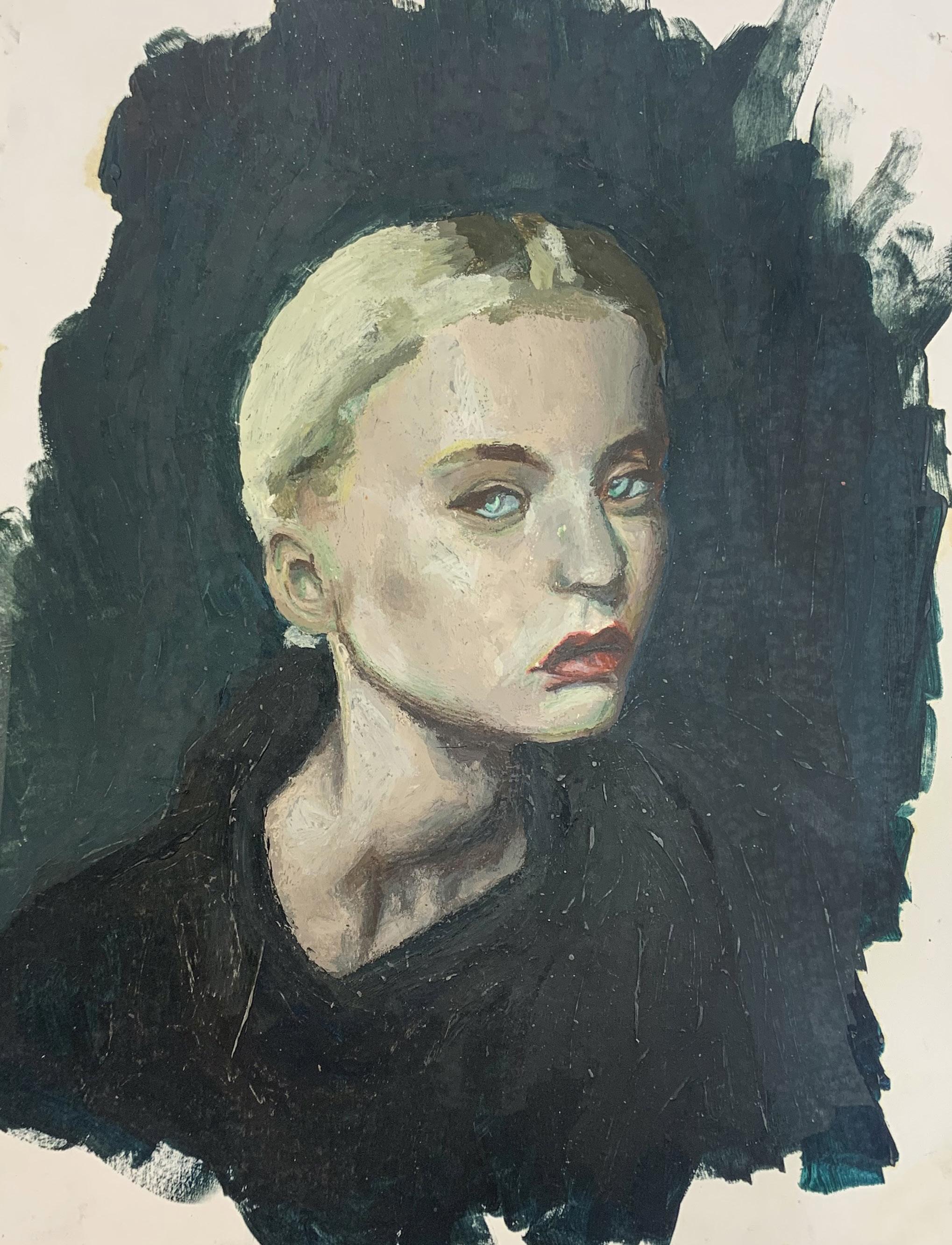
“Overdose? Brawl?” The detective walked into the club. “What was it this time, coroner?”
“Found nothing unusual in her system. No visible wounds or bruises…” Then, a slight chuckle. “Never seen anything like it—” he brought his hand to the nape of his neck, “two puncture holes… right here.”
Detective Torres, who arrived on the scene expecting another case of a young 20-something having too much fun in the bathroom, snapped up in rapt attention.
The coroner piped up again, “I know the rat problem here is bad, but I can’t imagine one capable of anything like this.”
Torres nodded solemnly, ignoring the coroner’s quip. “You suspecting foul play?”
“I don’t know what to suspect,” the coroner sighed, “but it’s the only thing that can’t be ruled out.”
Torres hummed and started making his way to the scene of the crime: the bathroom of the club. The place had already been covered in evidence markers, though the evidence itself didn’t amount to much: bloodstains left by the victim, and feminine products. The bathroom was nice, like the rest of the club, clearly meant to appeal to the tastes of the newest generation of young New York transplants.
The detective walked out to a table where the contents of the victim’s makeup bag were orderly laid out and labeled. There were cheap makeup products that could typically be found at a Walgreens or CVS, however a light, champagnecolored perfume bottle sat at the edge of the table. Dior. Torres lifts the bottle to his nose. It smelled like burnt sugar.

Today’s work was interrogation. First, the boyfriend: Matthew Long. Torres took a seat in the chair across from Matthew and inspected the person before him; disheveled hair, and dark circles under his eyes.
Probably from mourning the loss of his girlfriend.
“Hello, I’m Detective Torres. I’m going to be asking you a few questions.” Torres shuffled a thin stack of forms. “What was your relationship with the victim?”
“I’m Lora’s boyfriend. Well, former boyfriend now,” Matthew mumbled.
He paused as if to think of what to say next. “Things were a bit awkward at first, but Karina started breaking the ice by asking Lora more about herself. Alma barely spoke, but that’s just how she is. After a while, Lora seemed to be somewhat more comfortable with them, so I decided to leave the three of them alone, and went to find another group of friends to catch up with.”
“I see… Want to tell me what happened?” Torres questioned, clicking his pen in anticipation. “Well,” Matthew hesitated, “I invited her out with me to meet a couple of friends from college. We had only been dating for a few months and she was always a little reserved. I thought this would get her to open up a bit. Y’know — share a bit of myself.” Matthew began picking at his fingernails. “Obviously wish I hadn’t now…”
Torres hummed. “Anything strange when you got there?”
“We arrived at the party a bit late, so there were a lot of people at the club already. In the beginning, she stuck really close to me, but nothing seemed out of the ordinary. She’s never been the type to want to stand out, so being surrounded by a lot of new people probably made her uncomfortable. I found my friends, Karina and Alma, and we made our way over. I introduced her to them.”
Matthew threaded his hands through his hair and heaved a sigh. Torres almost felt bad for the kid. But the kid could be the killer, so he had Matthew go on.
“I noticed that it was getting a bit late, and I started searching for her but I couldn’t find her anywhere. Even Alma and Karina were gone so I thought to myself ‘Maybe she went over to their place? Or they brought her home, since Lora couldn’t find me?’ I hadn’t received any messages from her, but I thought nothing of it and went home on my own. When I got to my car I sent her a message asking if she made it home, but I never got a response.”
That seemed to be the end of Matthew’s recollection of what happened that night, so Torres closed his eyes and attempted to put the pieces together. The interrogation with him didn’t reveal much, but it did pinpoint a few people that Torres definitely needed to question.
“NEVER SEEN ANYTHING LIKE IT—” HE BROUGHT HIS HAND TO THE NAPE OF HIS NECK, “TWO PUNCTURE HOLES… RIGHT HERE.”
Karina Nijat was an interesting case. Her father was a wealthy Malaysian businessman who relocated his headquarters — and family — to Norway. During the interrogation, it was clear that she was rattled.
“I’ve never really been in this kind of situation before,” she disclosed, “so please excuse me, detective.” She began reciting a similar manner of events. A friendly meet-up at a club, mostly filled with young creatives. “Lora was a really nice girl, you know? Very quiet, but she spoke when she was needed,” Karina explained. Suddenly, she leaned forward.
“Actually, she did seem a bit irritated during the conversation. Sort of… agitated,” she motioned with her hands. “It might have been drugs,” she put forward.
“No substances were found in her system,” Torres plainly interjected.
Karina instantly deflated. “Oh...”
“Why would Lora be irritated?” the detective questioned.
Karina’s eyes wandered the interrogation room, searching her memory for an answer. “Well, there was a somewhat intense conversation later in the night.” She continued. “We were talking about our backgrounds, our professions. It was our first time meeting Lora after all, so we were getting to know each other. I mentioned my business of course. I’m a designer. You might have seen my company, ‘Clove’, in Subculture Magazine.” She looked at the detective expectantly.
Torres, well into his 40s, shrugged.
“Well, you should check it out sometime. Anyways, Alma is also a designer. But if I’m being honest, her talents lie in being more of a business manager. Brilliant woman. She makes money in her sleep, I swear. Lora, from what I remember, was a nurse, Dominican. Very pretty girl, you know? Pretty hair. A little bit more care and she could have been a model.” From her backhanded comment she followed, “I wonder if she was the jealous type. I know Alma and I can be a bit much for Americans, being from Europe. Things are very different there. And I am very sympathetic for what immigrants go through, my father is an immigrant after all.” She put her hands over her chest, as if to point to where her sympathy lay.
“Alma mentioned something, I think it upset her — but I’m sure it was a misunderstanding. She excused herself.”
“Do you know where she went?”
Karina shook her head. “No. I didn’t follow to check. I
thought she just needed to cool off, so I said my goodbyes and spoke to some others.”
The interrogation with Alma Eriksdotter was immediately different. From the police database, there wasn’t much available. Torres chalked this up to her non-citizenship. She had a work visa, a personal website, and not much else. She walked into the interrogation room with an indecipherable confidence, her back straight and head held high. As she took her seat, he got a whiff of a familiar scent. Burnt sugar? Not thinking much of the aroma, he adjusted his posture, clasping his hands on the table.
“Hello, detective,” she sighed. “Shall we begin?”
Torres cleared his throat. “What were you doing the night of the victim’s death?”
“I went to a party — some networking nonsense with that girl, Karina. It just so happened that I saw a familiar face, and that familiar face had a new friend.”
“Lora?” asked Torres.
ARTWORK BY ZAHRAH ALI, RAWALPINDI, PAKISTAN
“Yes, Lora. Quite an interesting girl. Her family is from one of those islands — The Dominican Republic. A nurse. Clearly, a hard worker to be educated like that.”
The tone in which she spoke made Torres uneasy. “I heard you two had quite the conversation. Care to explain what it was about?” the detective prodded.
“Ah yes,” Alma exhaled. “Karina always likes to do her little ‘icebreakers’ as you Americans might call them. Usually an excuse to talk about herself and her successful ventures. I tend to care less about those topics but with not much else to do at this gathering, I indulged in her ramblings. I merely asked Lora a question. Poor thing seemed so self-conscious the whole night, I thought she would open up but she just stormed off.”
“Did you know where?”
Alma paused. “The bathroom, I suppose.”
“The bathroom?”
“Yes, the bathroom. To powder her nose or whatnot,” she shrugged in disinterest.
Torres stood from his seat and began to pace. Nothing seemed right about this woman. Her demeanor was entirely cold, and far too calm. The detective knew from some deep instinct, however unprofessional, that she was involved with the death of that girl. But Torres had nothing. The evidence was entirely circumstantial. She was just as guilty as anyone else at that party. Unless the smell of burnt sugar could tie all the loose ends.
“What perfume are you wearing? I need a gift for my wife’s birthday.”
Alma let out a dry laugh. “Yes, I see… It’s a Dior scent. I doubt someone with your salary could afford it, but if you love your wife that much I’m sure you could scrape something together. Are we done now, detective?”
Torres sighed. “Yes, I think we are.”
He had done it. This was surely
enough to keep going. Not enough for an arrest. Hell, not even enough for a warrant, but Torres clearly found something. He could gather a small team, some scientific evidence — something that showed that she was there right as the murder occurred.
But it all amounted to nothing. When it was time to bring her back for further interrogation she was gone. There was no trace left. No visa, no website, not even a name on a social media site. Gone, as if she never existed in the first place. And Lora’s case was left to rot.

***
It had been years. Life moved forward. Tragedies had come and gone. Torres found himself flipping through the extensive photographic archives at the New York Public Library, doing research on his lineage.
There, he saw it: Scandinavia, circa. 1830-1900. A Norwegian girl — thin, gaunt, and filthy — dressed in her traditional peasant clothing. She had a face just like Alma’s.
I stared. And I stared. And I stared some more. Sitting in my dark pit of a room, I stared. That mirror. That old, antique mirror. My mom made me get it. It was dark and musty, made of oak and carved by an esteemed woodworker. She thought it would make the perfect fit in my pink room; something to liven up the place and fill the empty space next to the only window. I, for one, hated it. I groaned and my tired eyes threatened to close, but I had to keep looking. I had to catch the mirror red-handed; I knew something was off. I stared at my dark complexion, my messily braided hair and red-rimmed eyes from weeks of not sleeping right.
It was beautiful. The mirror, not me. With carvings of flowers, vines, leaves, and small berries intricately etched onto its smooth surface, it was beautiful. A dark beauty, but beauty all the same. There were markings though, in a language I didn’t know: something ancient. Tonight, there was something in it I hadn’t noticed before. Something was different.
A bad feeling surrounded me, and I felt like the carvings were calling out to me. I wanted to trace the wood with my fingers, have the swirls of my fingertips roam the smooth varnished wood. I rolled over onto my stomach and looked at the mirror, pushing my blanket
off the bed.
I stared, enraptured by the mirror’s glow. It fizzed and bubbled, while ripples reverberated around the edges. I let out a sigh, perched on the edge of my bed. I blinked. Once. Twice. I was not hallucinating. I couldn’t be. The mirror looked like water, cool and slightly aggressive, and I just sat there, staring, not knowing what to do.

I got up.
Slowly.
Carefully.
I tiptoed on my white carpet, not
wanting the hallucination or whatever was happening to end. Wind blew through the room and a soft breeze caressed my face, pulling me closer. I glimpsed something maroon inside and quickly ran to the smooth surface, forgetting about my caution. The mirror looked like a normal, everyday mirror. It was like nothing had ever happened. Fear prickled my stomach, but more than that, the curiosity took over. I crawled into bed, with the thoughts of the mirror consuming me until I finally fell into a restless sleep.
The next night I was ready, with nothing but a folded blanket and a rusty old pair of binoculars. For what, I don’t know, but I wanted to end the odd sensations that came with the mirror once and for all. I waited in front of the mirror sitting on the floor, feeling silly for staring at my reflection for so long. My curiosity had bubbled up to a point where the flash of red was all I could think of. I stared. And I stared. And I stared some more.
All I wanted to know was what the red was. I was ready to give up, chalking up the magical mirror to lack of sleep, when once again, it fizzed and bubbled, turning liquid, but somehow staying upright as if defying gravity. My fingers fumbled for my binoculars, and once in reach, they slowly leaned forward to put the binoculars in the mirror. Wind ripped around me and pulled me back and forth. My world started to spin. I pulled the binoculars back, terror filling my body, but it was too late. Lights flashed around me. Heat and ice filled my body. My throat stung from breathing so hard, and I coughed. I looked around wildly as my hair whipped around me, pulled out from my once-tight braids. My locket danced around my neck, tightening as if it was meant to kill me.
I tried to stand up. Every limb and muscle in my body screamed and I collapsed into a heaping pile on the floor. I started coughing out dust and dirt and sneezing as if I had inhaled pepper. I inhaled and my lungs caught fire. I hacked and tried not to breathe. My skin was burning from touching the ground. I rolled over, the only constant being the heavy maroon surrounding me. Slowly, I reached for my bed frame, but it was gone. Around me
there was nothing but pain and fast colors, no ground or ceiling — and seemingly no end. All I knew was that I wasn’t at home, far from it — far enough to know that there was no going back. I drifted off once again.
When I woke up, I was on the floor in my room and the binoculars and blanket were with me. I jumped up, and my body didn’t complain. I marched toward the mirror. I grabbed my lamp and tried to smash it, but the lamp broke, not the mirror. I hit my metal water bottle on the mirror and nothing changed. I put it on the edge of my dresser. I looked for another way to destroy it — I didn’t want to face all that pain and pure agony again. But I longed for a challenge, for something different. A small part of me wished for the mirror to open again. However, fear got the best of me, so I lugged the mirror to the floor, and jumped on top of it, despite its seemingly unbreakable nature. Finally, it smashed into a thousand pieces. I angrily jumped over and over, until all that was left was dust. Despite my best efforts to break it, one shard continues to evade me: a perfect diamond shape. As dawn broke, the mirror glowed and vibrated and the whole thing started again, as if in an endless cycle. I threw the shard out the window, slammed the door shut and ran into the kitchen to be with my mom.
Sylvie tugged her dog across the street, but Skittles was too busy sniffing the broken flower pot in front of a pink house to even notice the leash. The stars twinkled in the sky and Sylvie stared, entranced. She needed a moment of peace before returning to her seven siblings and parents in her small, loud house. A smash sounded and she glanced around, tugging once again on the leash. Peace is what she wanted, not the chaos of too many people in one area. Skittles trotted to her, tail wagging, and the two proceeded down the dark street. The wind picked up, and a glass shard came flying out of a window in the pink house. Skittles sprinted to it. Sylvie groaned, but followed speedily, her raven hair whipping around her as she reached her naughty dog, just as he stepped onto the glass and disappeared.
THE MIRROR LOOKED LIKE WATER, COOL AND SLIGHTLY AGGRESSIVE, AND I JUST SAT THERE, STARING, NOT KNOWING WHAT TO DO


I entered my freshman year with a thought eating away at my mind: what extracurricular activity would grant me the best skills to survive in the event of a zombie apocalypse? While this seemed unlikely, I had learned from the hardening experience of middle school that one could never be too careful when it came to hungry, wandering hordes.
In an effort to find a suitable activity, I attended the school sports fair. While walking around the gymnasium, an information session caught my eye: fencing, a sport I knew next to nothing about. From all of the undead media I had consumed, a common problem I noticed was the main characters’ means of protection constantly being damaged or needing to be reloaded. Fencing avoided this problem, as you did not have to reload a sword.
extremely close to my teammates, who became my second family. As I went through hours upon hours of practice, I felt myself become stronger. Although every year presented new challenges as I learned more about fencing, my love for it only blossomed as I progressed through high school.
While preparing for the first tournament of my third season, I slipped easily into my chest plate, jacket, and lamé and grabbed my mask and sword. As I walked toward my team, I saw my opponent. With only a few minutes to spare before the match began, I had time to analyze the gruesome, undead design plastered across their custom mask. Rotting teeth, green flesh, yellow eyes — it was a face I recognized, as it sent chills down my spine. Everything I had trained for in these last three years had culminated to this point. It was time to fight my first zombie.
The beginning of the bout was difficult. My mind raced as they shambled toward me, scoring point after point. I managed to press through and score a few points of my own, but fear still coursed through my veins. We were tied at 4-4; this was my last chance.
I attended the tryouts with little knowledge of what to expect. My lungs were on fire, and my legs felt like rubber from what seemed like a thousand lunges. The next few days felt like holding my breath. My mind flooded with questions: Did I make the right choice? What if I wasn’t strong enough? I pushed these thoughts away, forcing myself to be confident. On the Sunday after Thanksgiving, my phone buzzed with an email from the coach. I hastily opened it up and blinked in surprise. I was certain I saw it wrong, but when I looked back, I saw the bolded word “Congratulations!” in the header of the email. I was shocked, but even more excited.
As I expected, thanks to the taste I had of the sport from the tryouts, fencing was physically grueling, but it was equally rewarding. I grew

They lunged toward me, blade aimed right at my chest: a shot to kill. I rushed back, pushing down the fear rising in my throat. The zombie growled through its yellowed teeth as it rushed forward, this time aimed at my neck. I lowered my body closer to the ground, straining all of the muscles I had trained to hold a deep squat. Putting all of the power into my back foot, I pushed off, extending my arm and driving it into their stomach. I hit them. The referee held up his hands: this zombie was defeated.
Fencing has taught me many things: perseverance, leadership, and grit. It has also led me to make great friends and even better memories. But most importantly, when I encounter a hungry, wandering horde later in life, I know that I have equipped myself with the skills necessary for me to survive.
WHAT EXTRACURRICULAR ACTIVITY WOULD GRANT ME THE BEST SKILLS TO SURVIVE IN THE EVENT OF A ZOMBIE APOCALYPSE?ARTWORK BY BETHAN POWELL, KINGTON, ENGLAND
“Come on, Jordan!”
A cacophony of voices packs into the padded room. The long mirror running the length of the Taekwondo studio reflects the dark, blurring figures surrounding me. I pant through my headgear; the fog-coated sheet of plastic blocking my jaw makes it feel like I am trying to inhale Florida.
“Let’s goooo!” someone claps from the distant couches.
My instructors weave between groups like rudders cutting through the sea, throwing words of critique and encouragement.



“Energy up! Energy up!”
“Dig deep!”
I bounce on my toes. My lead hand is raised by my eyes, the other tucked in front of my torso,
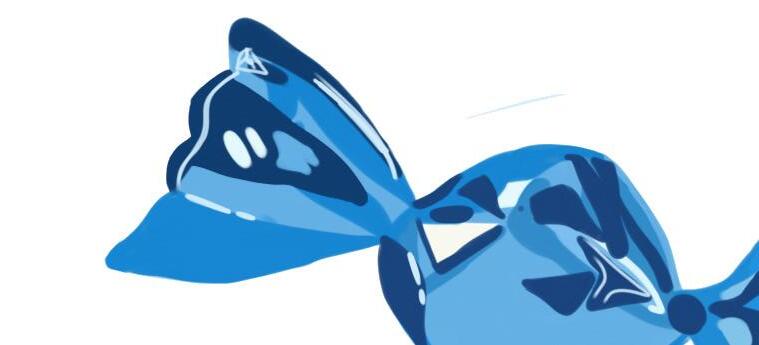
protecting my ribs.
Battered, bruised, delirious with exhaustion and sputtering adrenaline, I don’t see much of anything. I keep moving.
I tell myself, “I will beat this.” I tell myself, “I am stronger than this.” This time tomorrow I’ll be able to say, “I earned it.” I’ll be able to say, “I did it. I’m done.”
leg lashes out, striking my opponent’s back, their chest, their side. Instead of rechambering back toward my body, my foot thunks onto the cushioned mats. I don’t have enough energy to grimace at the sloppiness because a series of blows crash into my in-range head.
Though I did persevere and complete my black belt test, the problem with viewing perseverance as a fight is that you are working toward a single goal, and life, the mess that it is, yields many goals. Additionally, most fights are over in a minute, at most two. Outside of self-defense, collapsing after a minute or two of intense labor is not an effective means of growth. Perseverance is not about pushing yourself to extremes, but about respecting your boundaries and continuing to move even when dizzy, disoriented, or drained.

flimsy string, somehow managing to move, bob out of the way of the next blow, and scattering, wasting sweet time like paper-wrapped bits of colored sugar.
Other days, you are the partygoer, and you do not face the swinging challenge alone. There are times when others fixate on the saccharine reward and the marvelous grin slips from your face. You also complain about not hitting the target, even though all you really cared about was the fun of the game, the rush of blindly swinging with all your might; you convince yourself the reward is the whole point. Because it hurts, it is humiliating, to face ridicule as others watch you flail blindfolded. You compare yourself to, judge yourself against, others, wondering, “How come they hit it and I didn’t?” It takes courage to swing for it like you mean it. It takes courage to let go of maybe looking like an idiot, to take pride or joy in the fact that the flailing is the only way to get where and what you want.
Perseverance is more elusive when not everything has such a clear-cut end. Little vague accomplishments are more difficult than big ones, which motivate you through the promised satisfaction of reaching the end of something big. We mark our being with seven variations of a day — week upon week, month upon month, year upon year — and somehow we find the strength to wake up with the alarm, on time, each morning. It is easy to do one hard thing once. It is hard to do easy things again and again. The challenge lies in recognizing the little rewards — the flimsy crumpled bits of flightless confetti no one sees. If you hold a piece with you, you remind yourself that each tattered scrap leads you closer to
the grand prize, that the struggle itself is a gift. You learn to smile. The paper token is beautiful in its

Perseverance does not need you to always know exactly what you want to or are going to do. More often than not, it requires reflecting on a vague sense of what you want to see in the world and keeping that feeling with you. There is a beautiful

belt test, I gradually dropped out of sparring. Exhausted and sobbing that I was not pushing myself hard enough, I refused to take joy in being used as an example in class, in receiving praise for my technique, or in simply moving. I thought I was persevering, always
balance to piñatas. You swing: once,


come as quickly as the satisfaction of finishing a fight. And when it did not, I bullied myself into quitting. I did not persevere. However, throughout high school, I learned the importance of moderation when seeking to improve.
persevering. I see this in other people too — the relentless drive to get things done, to never stop improving. You hear things, say things, like “Perseverance is pushing yourself harder than anyone else will,” or “If you’re not broken and crying, you’re not trying.” But as with many people, my determination to grow and persevere was counterproductive; it was abusive. Following my black
Persevering is the little moments more than the big ones. It is patience. Maybe you swing and hit nothing but air. You take off your mask and stare the cardboard and colored crepe paper down, pacing back a few steps. This is a different kind of rush, separate from adrenaline, frustration, and pain. You know it will fall. Your blindfold slips from your fingers as you hand it to the next person. You know you will not break by toppling it.
A quiet grin splits your features. You have time.
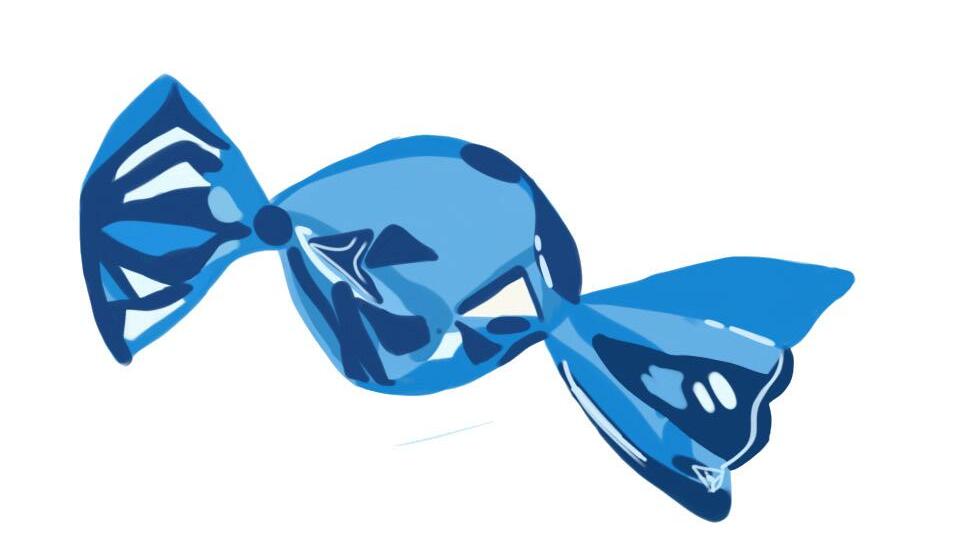
PERSEVERANCE IS NOT ABOUT PUSHING YOURSELF TO EXTREMES, BUT ABOUT RESPECTING YOUR BOUNDARIES AND CONTINUING TO MOVE EVEN WHEN DIZZY, DISORIENTED, OR DRAINED.
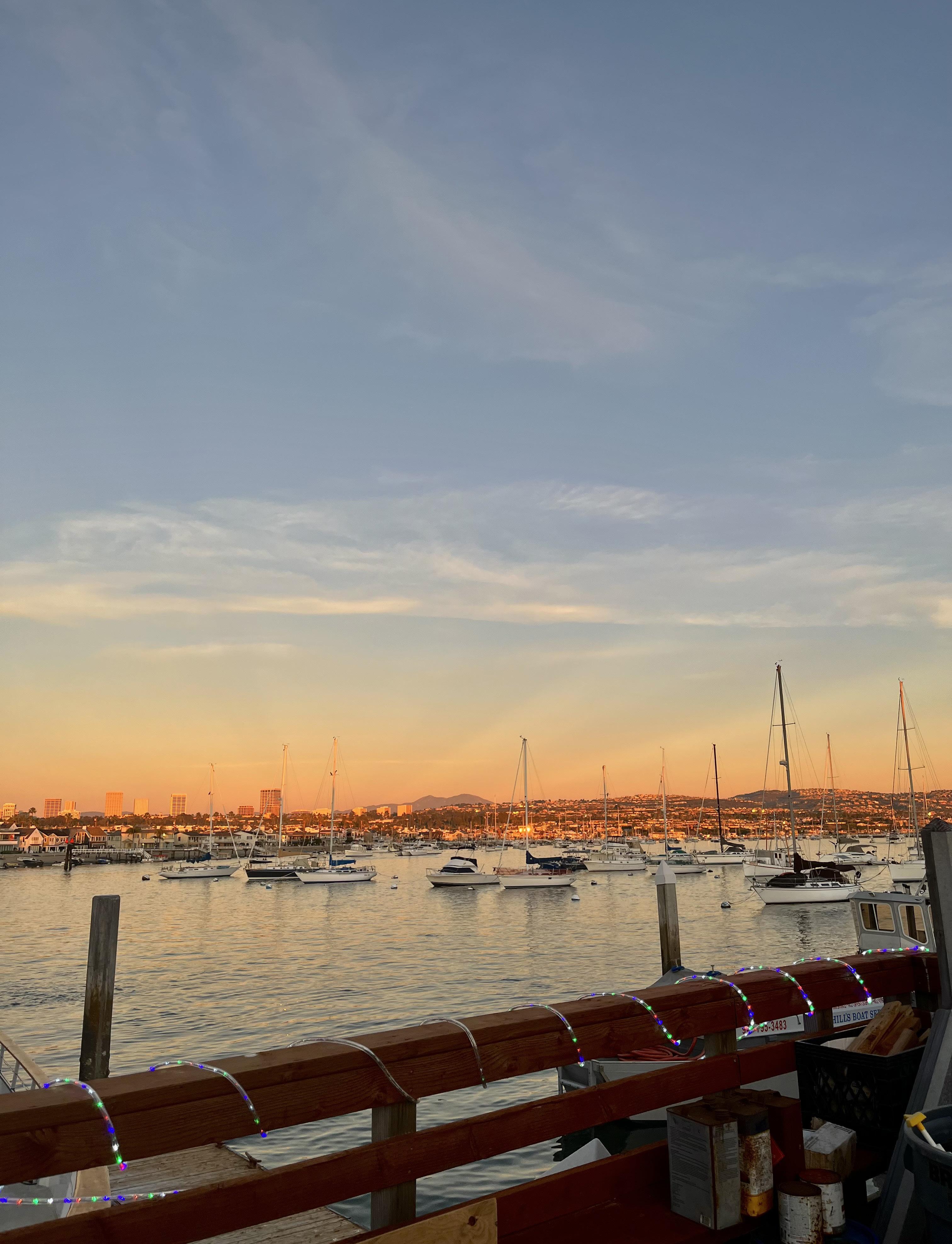 ARTICLE
BY JACK DUFFY, CHICAGO, IL
ARTICLE
BY JACK DUFFY, CHICAGO, IL
When I was young, I always thought that the world was mine and that there was nothing that could stand in my way. I remember going to the beach with my family, as a young kid, and feeling happy and relaxed. I would go swimming in the calm blue waters of Lake Michigan. As a kid, I would always associate Lake Michigan with these fun days at the beach. Taking a plunge into the water for a swim seemed so relaxing and tranquil during a hot summer day. Under these calm and clear waters, however, contains one of the darkest powers known to man. I thought that I was a master of the lake from when I was a child and that I could outsmart her. But one fateful day made me respect and fear her powers for the rest of my life.
It all started at an evening practice for my high school sailing team. The lake had violent, rolling waves and the wind was overpowering. With my crew mate Stella, I had been speeding around the race course, surfing down these massive rollers, hydroplaning with water spraying up from the sheer speed. I was driving the boat and had a lot of experience at the helm. With our cores and abs locked in and breathing heavy, we were pushing our limits. Exhaustion began to kick in as we were nearing the end of the day. The waves had been thrashing us, giving us sores and aches.
As night was fast approaching, I could feel the dreaded offshore gale winds gusting toward the city. Everyone raced into the harbor out of fear of this unseeable enemy, but I decided to stick it out. All of sudden, a microburst snuck up to our boat and attacked it. Our boat fell over as quickly as the gale had roared in. I was swept off my feet and thrown head-first into the violent waters. As I put my head up to gasp for air, I trembled as I saw the boat toppling down on top of me. I was caught under the jib sail, and through pure adrenaline, frantically and desperately hacking at lines to free myself from under the grasp of the jib. At the moment, I felt as if the lake was taking her revenge on me for being so cocky. It
instilled in me complete panic. I cut through the rope and freed myself from under the sail. After popping my head out of the water and finally gasping for air, I saw my boat completely turtled in the water — but there were no signs of Stella anywhere. I tread for water and searched for her, but I began to worry that she had drifted out or worse, was trapped under the boat. Suddenly, I heard a muffled cry for help — it was Stella. She had caught her foot on a line in the boat. She was crying and was paralyzed by fear and adrenaline. I dove under the water, kicking hard against the pull of my life jacket. The bone-chilling and arctic cold of Lake Michigan’s waters was catching up to me and sending my body into shock, making it difficult for me to keep treading. In my head, I was thinking that I could be at home, in bed with a warm and cozy blanket on top of me. Instead, I was out in the middle of Lake Michigan, freezing and all banged up. I found Stella, shivering, shaking, and pale. I unsheathed my knife, cutting the lines and freeing her from the boat.
We sat on the hull of our flipped boat freezing, hugging each other, not just for warmth, but for the pure relief and joy of being alive. Using our last morsels of strength, we righted our boat. We sailed back into the harbor, what I should have done to begin with. In my years of sailing, I had never been so happy to get off a boat and touch land.
The invincibility I had felt before while sailing had completely broken down. I learned that I have to play it safer and push less in heavier wind. This experience also taught me about the sheer violence and power of Lake Michigan. Even though it is only a lake, it acts as an ocean. I also learned to stay calm and not panic in situations. Throughout the many capsizes after this time, I have been able to keep a level head. After this moment, I have stayed ever conscious of my limits and surroundings, which has shaped me into the sailor I am today.
AT THE MOMENT, I FELT AS IF THE LAKE WAS TAKING HER REVENGE ON ME FOR BEING SO COCKY
I jolted awake from the sound of the engine turning off. The time came for my father and me to hike Lassen Peak. I felt like not getting out and staying in a warm car with the sun’s rays beating down on me as it rose over Lassen Peak. The sun made me feel warm even in the cold mountains of California. My dad came to the other side of the car and pulled the door open as the cold air overcame the warm sunlight. I hopped out of the rented Honda Accord, half-awake. I gathered my gloves, beanie, and boots and wondered why it was
had no clue what would be in store for me.
Before we even set foot on the trail, my dad turned and asked, “Do you have your spikes and gloves with you?”
I replied, “Yes, but was that necessarily the point of bringing items that are not needed.”
“You’ll need them, I promise you that,” my dad said.
I asked him again, “Are you sure, because now I have to make sure to not spike myself when I take them off my backpack?”
necessary to bring so much. It was only 20 degrees and the trail looked dry with no snow. As we approached the entrance of the hike, the pinnacle of Mount Lassen shimmered and receded above us. The hike would take most of the day, and just like college life, I
My dad looked over his shoulder at me and smirked. I was given a choice to continue questioning the usefulness of the spikes with no snow in sight. I could ruin the whole day if I continuously showed my attitude toward them. I put the matter aside in my mind and was excited about the challenge ahead. I looked around to take in the environment. The ground was red-brown dirt mixed with brokenup shards of limestone rocks. Maple and oak trees towered on each side of the path and stones the size of books guided us up. This is how a trail starts. You have instructions and guidelines for every step. Before college, that is how I would describe my life. Staying inside the lines is how a child feels comfortable while learning what life is like, according to the standards around them.
The dirt trail continued upward for another 30 minutes until the trees became few. It seemed a wildfire had spread through the area a couple of years earlier. As my eyes moved up the trees, I noted the ones still standing were all marred with black-and-white ash. With the forest thinning out, the dirt turned into stepping stones as we started a steeper ascent up the mountain. My water was about half-empty. I still had spikes attached to my backpack. The trail became less clear, as we were not following a direct path, but rather a choice of how to get from point A to B. The trail blended in with the volcanic rock around it. The drop off on each side steadily increased. Our goal was just to get to the next checkpoint of the trail.
The path’s blending with the natural rock is like college life. The stones on each side of the trail were rapidly being stripped away. Continuing toward the peak increasingly depended on my own reasoning. Many feel college contains a direct four-year path to a career. Believing this makes sense for people who know what their career is going to be from the start. But for most, college is a time to explore and do some trial and error to find out who they are. I relate the disappearing path to college life giving a person a taste of selfchoice. College gives me guidelines, but not in the sense of a parent or institution rigidly making me do certain things. College states: here is how you get to the next step. It’s
I climb my mountains to reach a personal goal, but when I reach the top I always find more to life than my initial thoughts
your choice whether and how fast you want to get to the next trailhead marker.
Nearing the top of the mountain, the wind started to pick up. My face no longer had feeling, and my hands were buried deep in my pockets. As I looked ahead, we plateaued into a mile-long stretch of flat rock. The pinnacle was in sight when a 45-foot section of snow covered the path ahead. On top of that, there was now a 400foot drop-off to my right. My father turned his shoulder and smirked saying, “Looks like we need our spikes to cross this section.”
I didn’t reply, and in defeat put on my spikes. The spikes were an item and ability I had disregarded until needed. When the time came I was thankful for the spikes, but in the back of my mind wondered what I would do without them.
Spikes are examples of items being taken for granted. During numerous experiences in college, I have been thankful that I had abilities taught to me before college. For me, these include playing sports, navigating around Arizona, and changing a flat tire. Originally I thought they would have no impact on my life, but when they are called on I’m thankful. The same goes for connections that I make with family and friends — in the future, I know I can rely on their support. The spikes are symbols that everything can be useful as long as you carry it with you.
The spikes were strapped tight to my shoes to the point that my blood flow was cut off. I looked over the edge at the sheer drop-off. My mind rushed with thoughts on how to avoid falling into the sharp rocks

below. The edge of snow had about a foot’s width to walk on, meaning I had to shuffle across. I was doubtful when taking my first step, until I felt secure with my spikes digging deep into the icy snow. I dug my hands deep into the snowy bank to my left, giving myself extra stability. The last thought in my mind was how I lost feeling in both my hands which felt buried in a foot in the snow. My body refused to acknowledge any feeling of cold wind around me. I was focused on getting myself across this cliff. Reaching the other side, I felt relieved. The section of the cliff I had shuffled across showed an unexpected hurdle to reach the top of Lassen Peak.
In a shock of events, the spikes did help me cross the snowy edge with ease and reach the top of the mountain. I let my legs collapse under me and took a seat near the edge of the mountain. The sun was directly above my head and winds started to pick up. I pulled my hood up to keep my hair from blowing into my eyes. The pinnacle of the mountain from my point of view showed a lush green forest 100 miles west, intersected by a curvy road. The gorgeous view brought the serenity I lack day-to-day. I felt comfortable sitting at the top for what felt like forever. When I turned south, I beheld larger mountains I hadn’t seen before. My mind switched from feeling accomplished for what I had just hiked to desiring to go further. Once I graduate from college, the knowledge I have gained will be the base upon which I grow. I climb my mountains to reach a personal goal, but when I reach the top, I always find more to life than my initial thoughts. I will have to find my own path after college to continue climbing.
The Plague is a classic novel written by Albert Camus and translated by Laura Marris that tells the story of a plague that washes over the coastal town of Oran. The original text was published in 1947 and is an allegory based on the sufferings of France under Nazi occupation.

The text begins with people becoming extremely sick after hundreds of dead rats appear on the street. Terror begins to seize the city as people start to die by the masses in excruciating pain. The story follows Dr. Rieux, who attempts to resist the fear and aid the sick.
Camus’ vivid allegory uses strong emotion to convey the whirlwind of emotions the town felt. He expresses love, sadness, fear, despair, suffering, faith, and exile to entice readers into empathizing with the characters. The story is written from Dr. Bernard Rieux’s perspective as an objective witness,
so he could detail all the events he had seen without having a personal take on it.
The Plague expresses the emotions of those who suffered from the deadly plague as well as family members who had to be isolated from their loved ones or had to bury them. With the town locked down and with curfew, the town went into chaos. People resorted to violence as they tried to leave the town. Others locked themselves in their houses, while most struggled to escape death. The story shows how the town has dealt with the upending of their lives. It also describes Dr. Rieux’s resilience in attempting to stay mentally strong so he can ease the pain of those who contracted the disease. Having witnessed so much death and suffering, he does not allow himself to partake in too much emotion, lest it be too much to bear. The book touches on themes of morality, death, disease, and isolation, which give readers an insight into the mentality and conditions of the town and its people.
Readers are able to relate to this novel after having experienced the COVID-19 pandemic. The heightened emotions people felt during the pandemic are seen throughout the novel. Readers can step out of their own experiences and delve into a story of how another town handled such a catastrophic event. During the time period of the original publishing of The Plague, readers of that time could connect their fear of living under Nazi occupation to the fear of a deadly plague.
In conclusion, The Plague is an emotional novel that details how the small coastal town of Oran handled the onslaught of a catastrophic disease. The events told from the perspective of Dr. Rieux give readers an inside look into the emotional ride of the town’s citizens, which grips readers’ attention, making the book difficult to put down.
Together We Rot by Skyla Arndt is unlike any other book I have ever read. The premise is unique and nuanced, the characters are fully fleshed out for such a short book, and the overall plot is interesting and easily captivating. Needless to say, this was a pleasure to read.
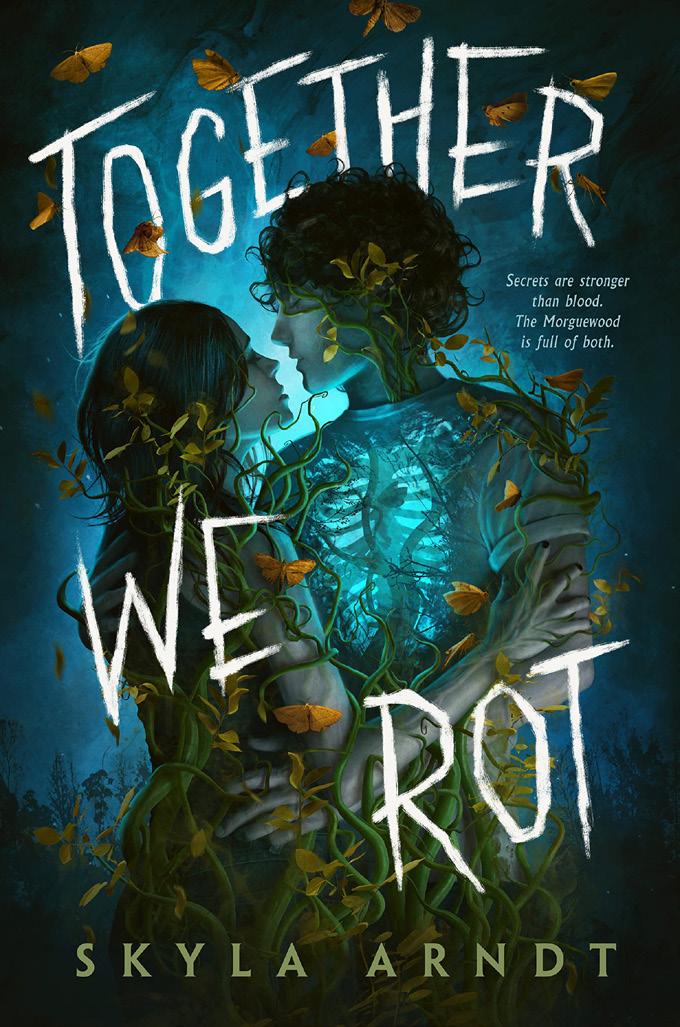
The characters, mainly Wil and Elwood, are some of the most interesting I have ever encountered. The quirks and nuances of both these characters remind me of Blue and Gansey from The Raven Boys, mostly because both of those characters are so fascinatingly unique and practically jumped off the page at me.
Wil and Elwood were the same.
From the moment this story began, I was captivated by Elwood, the shy, sweet, and somewhat naive son of the town pastor, and Wil, the fiery and determined daughter of a woman who went missing two
years ago. Not only did I enjoy the fact that Wil, the female main character, was the strong and protective one in the relationship, but I also felt like the chemistry between these two characters was very potent. Their shared past is a huge part of this, but also their warring personalities. Such differences made them way more compatible because they just balanced each other out beautifully.
The side characters, Ronnie, Kevin, and Justin, are interesting, too, but their personality traits fell flat since they hardly had enough page time for me to become truly attached. Elwood’s father, the villain of this story, is also slightly cartoonish and akin to a textbook bad guy. Though that may be true, I was interested in his reasons for wanting to sacrifice Elwood.
Moving to the plot, I have never read a book so steeped in Biblical history. Besides the fact that Elwood’s father is the town pastor, there are several references to Bible passages, mainly one pertaining to the sacrifice of a son. The whole reason behind the villainous plot is also influenced by Biblical happenings, because the fictional town the book is based on once suffered a famine, so the pastor sacrificed his son to God. From then on, the sacrifices continued. It was interesting to read a book so clearly influenced by stories presented in the Bible, but to say this book is overly religious is untrue. The story also includes many fantastical themes that tie in well. I noticed that this book also doubled as a brief mystery since Wil is searching for her presumed missing mother toward the beginning, as well as a horror, since the ending presented a few frightening themes and descriptors. So many themes may have made another book seem cluttered, but it only added a more unique style to this story and plot.
The premise and writing style of Together We Rot was also
something I enjoyed. Arndt is amazingly adept at providing sensory details that will draw readers in and never let them go. The feel of the book was somewhat gothic, almost offering a style akin to Cat Winter’s writing and her ability to spook readers before they are even halfway through the book. While reading Arndt’s work, I felt I was bracing for that horror theme to play a part because, from the beginning, the story was drawing on gothic themes and some elements of horror through Elwood’s hallucinations. Needless to say, when the horror entered near the end, I was fully braced for it and glad it was present, because it was hinted at from the beginning.
Though I did thoroughly enjoy this book, the overall length of the story was slightly disappointing, and the ending felt slightly rushed because of that. I had hoped we would see some more cute moments between Wil and Elwood before we reached the climax, but I blinked once, and the end was already upon me. This book could have suffered a few more pages because it was such an interesting read, and the end could have been more thoroughly explored. Though I do feel this way about the book’s length, those with a shorter attention span or who feel some books are too long will appreciate the length.
All in all, Together We Rot is a book I will not be forgetting soon. With its fascinating characters, nuanced plot, and captivating premise, this story is one I will find myself thinking about often.
ARNDT IS AMAZINGLY ADEPT AT PROVIDING SENSORY DETAILS THAT WILL DRAW READERS IN AND NEVER LET THEM GO
Wondering if what’s happening is real or not, being unsure about the time frames of events in books, and wondering which characters you can and cannot trust makes things more interesting. Is the narrator even credible? Is what he’s telling us even true? Or is it just another one of his lies in order to make himself seem like the only good person? The Silent Patient offers this exact perspective and always manages to leave readers shocked and confused as to what’s about to happen next.
This psychological thriller tells the story of a woman named Alicia, who murders her husband. Throughout the investigation and questioning, Alicia stays quiet, never saying a word. Even after being admitted to a psychiatric hospital and having psychological treatment with various doctors, she still doesn’t say a word. However, things suddenly change when she is assigned a new doctor, Theo, who is eager to find a solution to what is happening to her and uncover her
motive for the murder.
The amount of plot twists makes the book hard to look away from. At the beginning of the novel, Theo is seen as an angel sent from heaven, who is truly trying to help his patients and understand their pain. But by the end, we start to wonder about his true intentions until we’re hit with the biggest plot twist in the book. As the book goes on, Theo becomes unclear with time frames and locations, keeping certain details away from the reader to continue the mystery and protect himself. The novel, although starting off slow, picks up its pace fairly quickly, making it hard to put down. No matter how many crime shows you’ve seen or how much you believe you’ve figured out the ending, it’ll still shock and confuse you at the same time, leaving you speechless and continuously wondering what’s going to happen next.
The Silent Patient also offers a double point of view between the doctor, Theo, and the patient, Alicia, more specifically, her diary that she gives to him. This is done to show little pieces in each of their lives. Backstories are especially important in this book because they reveal so much about the characters, including one of the biggest plot twists of the story — how Theo and Alicia were connected to each other before the murder. Authors do this to add suspense and keep the reader on edge, always wondering what else is going to happen. I, for example, wasn’t able to put my book down as the pace was slowly picking up, with plot twists happening one after the other.
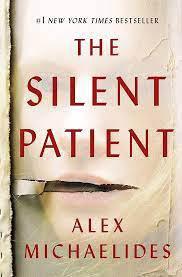
In conclusion, The Silent Patient is a novel that is definitely worth reading and taking a look at if you’re into crime and psychological thrillers. This book is one of the few that I continuously recommend to people. Every event that happens perfectly fits into the storyline, with no plot holes, which is hard to achieve. It is told in a double perspective, and having an unreliable narrator continues the
mystery. This is exactly what a thriller like this needs to achieve the purpose of making the reader confused and interested at all times. It’s also interesting to see how Alicia recognized him immediately but decided not to say anything because she wanted to uncover his motive for the murder, which is the same thing Theo was doing to Alicia. Every aspect of the book was well written, and it was very well thought out.
by Brayson Brown, Hartford, WII have always loved horror stories, and none more than cosmic horror, so what better author to dive into than H.P. Lovecraft? I chose to read three stories by Lovecraft: At the Mountains of Madness, The Call of Cthulhu, and The Shadow Over Innsmouth. After reading, I have grown even more fond of the cosmic horror genre and have gained great love for all three of these wonderfully chilling stories. All three short stories offer a similar,
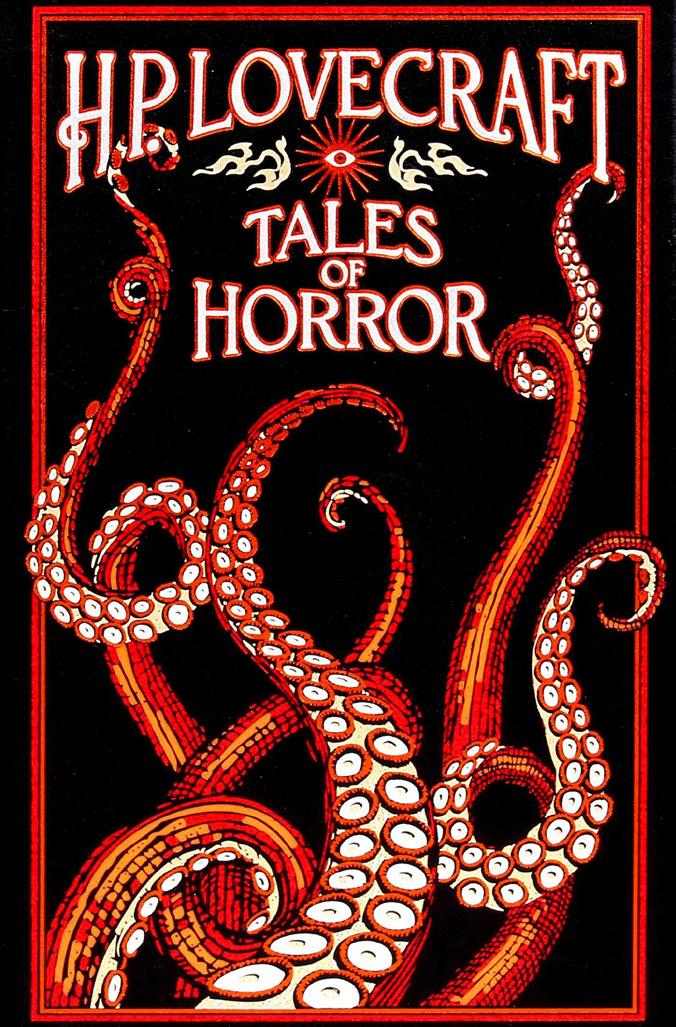 COSMIC HORROR
COSMIC HORROR
yet wildly different experience. Lovecraft manages to create great existential horror on every page, with the stories all having a compelling and constantly entertaining plot. The characters are also competently developed even with the shorter length of the stories.
Not only is each story a spectacularly horrific and existential experience with rich characters, but the fantastic use of imagery and physical descriptions allows the reader to picture the scenes and otherworldly monstrosities in vivid detail. All three stories have an intriguing sense of mystery, and you are always entertained by the discoveries the characters make along the way.
At the Mountains of Madness is the longest of the three and is also the one I liked best — becoming one of my favorite books of all time. Lovecraft takes you on a chilling journey, literally and figuratively, as the main character, William Dyer, describes his fateful expedition to Antarctica. He brings you along as he recounts his expedition’s encounters with all the horrors and discoveries that they were unfortunate enough to come across. The revelations and twists
that are featured are wonderful. After finishing the novel, I was left in awe at the scale and complexity of the cosmically terrifying reality that Lovecraft managed to craft and unveil to me as I read. Lovecraft has a way of writing that may be challenging for some readers, as it is, at certain points, particularly dense and detailed, but it is more than worth the effort to experience this delightful story. The suspense and mystery surrounding the central
called Cthulhu. The unique way that the story is told, that being from the point of view of documents being read and explained to the reader, makes it always interesting to read. Lovecraft manages to create a very chilling and intriguing story.
story were perfect and always left me wanting to read more.
The two shorter stories, The Call of Cthulhu and The Shadow Over Innsmouth, were each wonderful in their own way. The stories provided a concise yet rich and captivating narrative. The Call of Cthulhu follows a young man as he looks through documents and accounts to discover the truth behind the shadowy cult following a monster
That leaves The Shadow Over Innsmouth, another short story about a seaside town where strange occurrences have been covered up, being revealed to the reader along the way. Like the other two stories, The Shadow Over Innsmouth is a mystery as you uncover the truth behind the events and their expected cosmic monstrosity. It is a delight to read and manages to be entertaining the entire time. Like At the Mountains of Madness, Lovecraft’s writing in both short stories may take a little longer to decipher as it is a bit heavy, but reading this story is well worth it.
In short, any three of these would fit perfectly if you are looking for a profoundly unsettling and captivating story. Whether you want something akin to a fulllength novel like At the Mountains of Madness or something shorter, Lovecraft provides a fantastic horror reading experience.
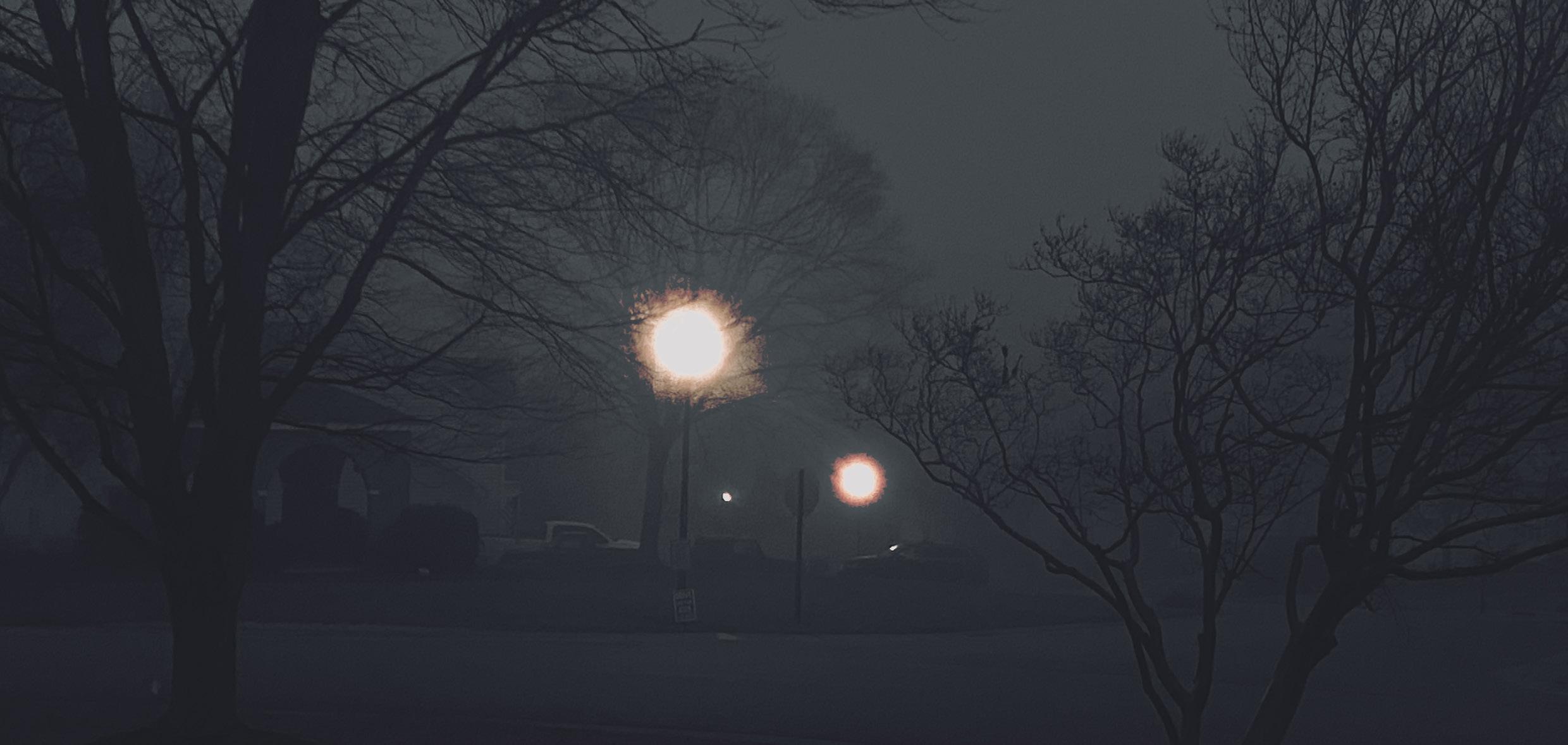
I WAS LEFT IN AWE AT THE SCALE AND COMPLEXITY OF THE COSMICALLY TERRIFYING REALITY THAT LOVECRAFT MANAGED TO CRAFT AND UNVEIL TO MEPHOTO BY MIAOFU TIAN, WINSTON-SALEM, NC
to realize, however, that’s only how it seems.
Even before uncertainty and danger begin creeping in, “Deliverance” offers a portrait of the great outdoors that is hardly bright or colorful; but as the tone sours, it turns downright menacing. Emphasizing this, very little score is ever-present except in the midst of gripping, shockingly violent terror. Taken in hindsight, even the rousing “Dueling Banjos” musical number opening the film feels more like a slap in the face.
For roughly half of its nearly twohour-long runtime, the infamously disturbing backwoods drama “Deliverance” very convincingly pretends to be something it isn’t. If you were to start the film with no knowledge of plot or tone (given the sheer extent of the film’s notoriety, that would admittedly be difficult), you’d believe it’s nothing more than a light, easygoing buddy comedy about four friends canoeing through northern Georgia’s towering mountains, if only to catch one last glimpse of this untamed wilderness before all those waters are dammed.

These friends are Ed Gentry, Lewis Medlock, Bobby Trippe, and Drew Ballinger, all (thanks to Lewis) willing to find what lies just down the Cahulawassee River. Though these raging rapids and empty woods aren’t exactly what they’re used to, they’re nevertheless prepared for any trouble that might come their way. As they soon come
With any remote semblance of control slipping further and further from the characters’ fingers, “Deliverance” impressively sustains the oppressive dread looming over their heads — thanks to how vividly the grainy, claustrophobic cinematography and atmospheric sound design bring the surrounding woods to life. If anything, these perilous wilds are the real main character here, even with the entire cast’s performances being uniformly excellent.
With all this in mind, it’s easy to see why “Deliverance” is so highly regarded as a genre classic, to the point of being selected for preservation in the United States National Film Registry for being “culturally, historically, or aesthetically significant.” In my eyes, however, it unfortunately falls just short of being a genuine masterpiece simply because of how abruptly this twisted, treacherous journey ends.
Nothing about this conclusion feels cheated or poorly thought-out, but with so much tense, heartpounding buildup throughout this story, this sudden screech to a halt is rather frustrating. Considering the terrible situation these characters are caught up in, so much more could’ve perhaps been explored by this point.
As the brutal consequences of their panicked decisions rapidly snowball into worse and worse decisions, it’s clear this eerie suspense should have been stretched out much
longer. At the very least, just 20 additional minutes of rising unease wouldn’t have felt out of place, nor prevented the story’s ultimate resolution from holding together.
Regardless, this is undoubtedly among the most unique survival thrillers out there, even if it may very well ruin your night. That could be a turnoff for some, but when telling such an ugly, uncomfortable story, it’s better not to sugarcoat what takes place. Still, even if you’re up for watching it once, you might never find yourself eager to see it ever again.
it is worth every second of the lengthy watchtime.
As always, daredevil actor Tom Cruise returns as Ethan Hunt, this time saving the world from code gone rogue. We are first introduced to a prologue, where the Russian submarine Sevastopol’s advanced AI deceives the crew into firing a torpedo back on itself, killing all on board. Only two halves of a cruciform key can control this Entity, causing a global race for this unimaginable power. Ethan and his IMF partners (Benji and Luther) track down one-half of the key in Saudi Arabia but soon run into trouble with both U.S. agents and Gabriel, an Entity liaison and Ethan’s enemy from the past. While in pursuit of the other half, Ethan encounters Grace, a professional pickpocket anonymously hired to steal that very half. The plot thickens as the Entity infiltrates all intelligence centers, creating an atmosphere where truth cannot be trusted. Grace joins Ethan, Benji, and Luther in a quest to recover the key and destroy the AI before time runs out. “Part One” ends after a suspenseful sequence filled with imposters, close calls, and fighting on a moving train.
other favorite aspect, of course, belongs to Tom’s insane stunts. Not many special effects were
The seventh installment of the “Mission Impossible” series is everything a thriller fanatic can ask for. Viewers interested in a blend of sci-fi, stunt scenes, and adventure will feel their hearts pump — especially when seeing the film on the big screen. Although long (clocking in at two hours and 43 minutes),

For someone unfamiliar with the previous MIs, the characters are a lot to memorize at once. However, the confusion fades away quickly, especially after a bit of background research. Ethan, Benji, Luther, Ilsa Faust (a British ex-agent), and broker Alanna Mitsopolis are returning characters from previous franchises, so knowing their history helps with comprehending the storyline. This also allows original “Mission Impossible” fans to feel an emotional connection, making some scenes truly gut-wrenching. One of my personal favorite aspects of the film — and the series in general — is Ethan’s unfaltering loyalty to his teammates/friends. Under circumstances of extreme danger, he always values their lives above any other objective, personal or professional. It gives the viewer a sense of comfort to know that his priorities are straightened. The
necessary, as he did, in fact, zoom off a cliff on a motorcycle. The action scenes coursed pure adrenaline through my body, and I felt my heart drop to the ground throughout the movie.
As for the actors, they did a phenomenal job of portraying the very essence of their respective characters. Not once did the lines feel scripted or unnatural, and while leaving the theater, I felt as if I knew each character personally. Benji and Luther’s dedication and humor, Grace’s quick-witted intelligence, Alanna’s flirtatious playfulness… The antagonists also served their parts, although not as multi-dimensional. I was especially captivated by the scene where Grace wears a mask and assumes the identity of Alanna aboard the Orient Express. During filmmaking, this required Alanna to adopt Grace’s mannerisms, which she excelled at. In fact, I initially believed that Grace was indeed wearing the mask.
“Mission Impossible: Dead Reckoning Part One” is a must-see for all audiences above 13 years old. It provides a vivid background and sets up the plot for the unreleased “Part Two.” Prepare to have your heart captured by the genuine characters and feel the impatience for the second half of the narrative, which will debut (hopefully) in June 2024.
PREPARE TO HAVE YOUR HEART CAPTURED BY THE GENUINE CHARACTERS AND FEEL THE IMPATIENCE FOR THE SECOND HALF OF THE NARRATIVEby Dongwan Kim, Nonthaburi, Thailand
“The Host,” directed by Bong Joon-ho, is a movie that is centered around the Parks, a lower-class family that attempts to save their youngest family member from a monster that emerged from the Han River. On the surface, the movie seems to center around familial bonding through hardships. However, the movie also heavily focuses on the impact that a foreign nation, namely America, had on unsuspecting innocent civilians through reckless interventions in South Korea. Throughout the past century, Japan and America have had a heavy influence over South Korea. Japan impacted Korea in its rule during World War II. Then, when Japan lost the war and control over them, Korea was divided in half, where the North was set to be controlled by the Soviet Union while the South was controlled by America. Due to the heavy uprising that South Korea experienced over the past century, native citizens of South Korea have been heavily divided on
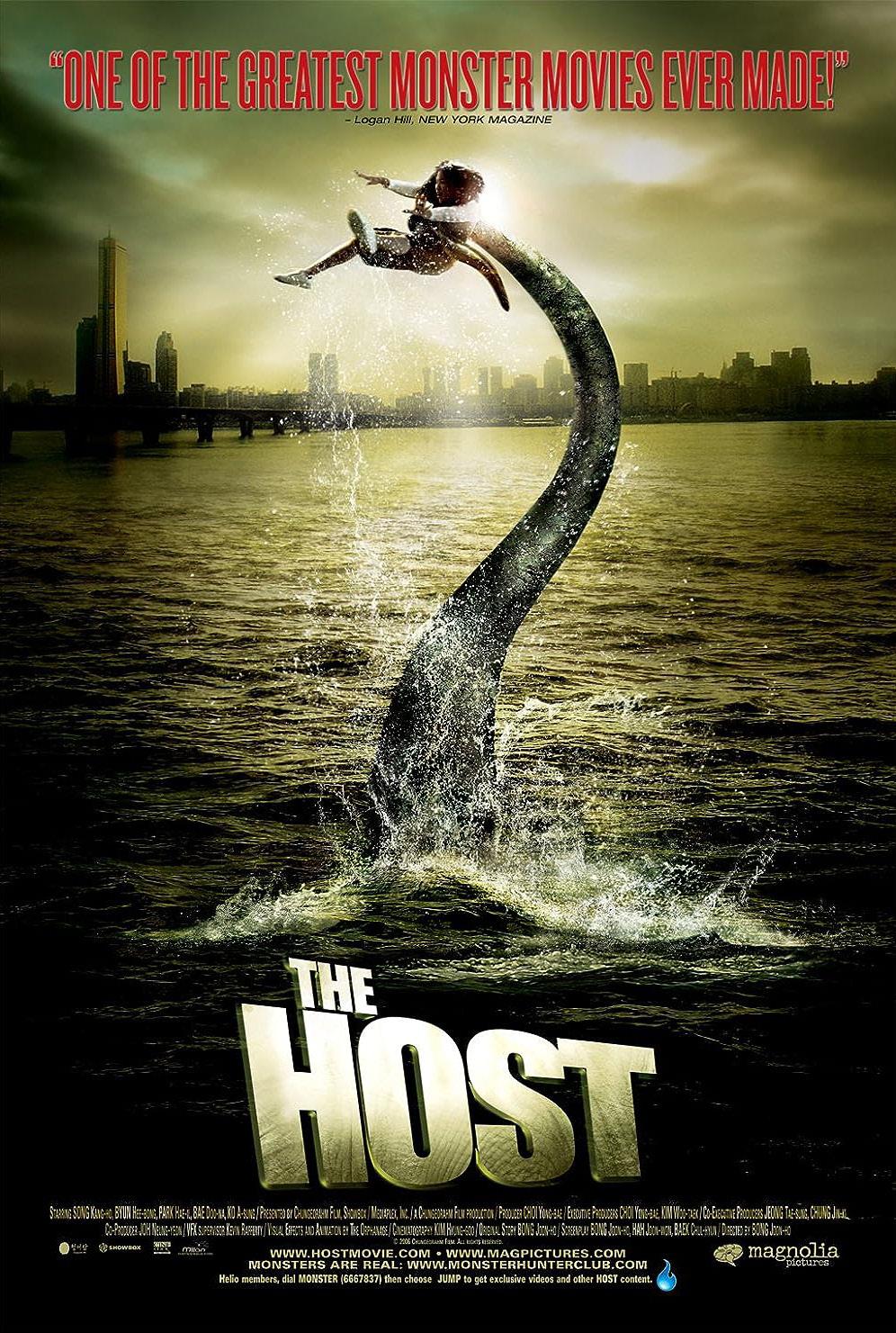
whether or not foreign influences should have such high stakes in South Korean affairs. “The Host” leans toward the idea that foreign influences, in fact, lead to further controversies among countries, which in turn harms innocent civilians. Bong conveys this theme through subtle nuanced details throughout the movie, along with the use of visual features, auditory features, and mise en scene.
In the first scene of “The Host,” Bong uses the positioning of the actors along with an allusion to a real event to symbolically convey the power balance between South Korea and America. In the image, viewers are introduced to an American scientist and a South Korean assistant, along with showing the laboratory that they are working in with a wide long shot. The set is designed with no windows and no contact with the outside world. Through this shot, there is a feeling of isolation and secrecy, which establishes a feeling of awkwardness and distrust towards the characters who are working in the laboratory. The negative feelings of these characters are further warranted by their reckless behavior of knowingly disposing of hazardous chemical waste to a sink that connects directly to the Han River. This scene is, in fact, a recreation of an
symbolic interaction between the scientist and the assistant, Bong is able to show the viewers that America has a strong presence over South Korea and that their reckless behavior is what created the monster that appears later in the movie.
In the second screenshot, Bong uses a form of dramatic irony to convey America’s method of control along with the helplessness of the citizens towards the presence of America. In the shot, the viewer is presented with protesters speaking out against the yellow machine that is set to disseminate Agent Yellow among the population of Seoul as a method of controlling the population. America states that Agent Yellow is supposed to function as a countermeasure for the virus. However, the viewers now realize that there was no virus in the first place, and was a myth spread by the government to control the population. The fact that the South Korean population is unaware of this fact shows dramatic irony, along with America’s extreme control over South Korea as a whole. Also, even with the public outrage against Agent Yellow, its eventual release shows the people’s helplessness over the overwhelming presence of America. This destructive gas
ecological controversy that took place in the early 2000s, where the American military in Seoul dumped a hazardous chemical known as formaldehyde down the drain into the Han River. This allusion sets up the scientist as representing the American military and, in turn, the foreign influence. Also, by the distant positioning of the scientist along with the command to the assistant to dump out the waste, the scene is referencing America’s distant yet commanding presence over South Korea. Through the
being produced by America is once again showing a form of foreign intervention. By showing the pain to which the South Korean citizens are subjected once they inhale the gas, the viewers see the destructive and harmful consequences of a foreign nation with too much power.
In the third screenshot, Bong uses blocking of the citizens who are watching the news about the virus and the agents in hazmat suits to accentuate the helplessness
HORROR/THRILLERtowards the presence of America. In this screenshot, the camera is focused close to Park Hie-bong’s face, showing his surprise toward the news being broadcast on the television. Since the news is a government-regulated media, close to everybody who is being forcefully escorted to the hospital is inclined
Korea. Then again, in the background are agents in yellow hazmat suits, watching and controlling each and every movement that the people make. This inclusion of the agents in the background is to once again show the overwhelming presence of America over all the actions that South Korean citizens take.
to believe each and every word. However, the knowledge that the audience has regarding the virus being fake only furthers the audience’s frustration on how helpless the South Korean citizens are when opposed to the allpowerful American government, characterizing the American government as being overly controlling no matter the method. Close-up shots of Park Hie-bong’s face establish a more personal connection to the citizens of South
Even though the South Korean title of the movie is “Monster,” implying that the monster is the main villain of the story, the true hidden villain of the movie is America and their reckless, oppressive intervention in South Korea. The Monster could also, in a way, be taken as a metaphor for America’s destructiveness to South Korea, since technically, the dumping of chemicals in the Han River from the recklessness of the American scientist is what created the monster. Overall, throughout the movie, there are many scenes that suggest that America is the true antagonist of “The Host.” One noteworthy example of Bong suggesting the negative nature of American intervention is when the monster first emerges from the river. In this scene, an American attempts to attack the creature instead of fleeing. This characterization of an American is

shown to metaphorically represent America’s unneeded interventions. Another example is in the office scene where Park Nam-il is betrayed by his friends for a bounty that was placed on his capture. This scene shows how America’s control over the minds of the citizens has even managed to turn them against each other. This toying of the citizens’ mentalities once again shows America’s destructive nature of South Korean citizens and their relationship with each other.
In conclusion, Bong’s “The Host” shows the audience the harmful effects of foreign intervention in the affairs of smaller nations such as South Korea and how their actions are unjust and will only cause further suffering for the smaller nation and its people. Examples of this include the Korean War, the Vietnam War, as well as American interventions in Iraq. All of these cases include America involving itself in foreign conflicts, causing more harm than if it was left alone. The anti-American message that “The Host” sends to its viewers relates to any large country in the world that is involved in foreign affairs and how it will most likely lead to further damage instead of help.
“THE HOST” SHOWS THE AUDIENCE THE HARMFUL EFFECTS OF FOREIGN INTERVENTION IN THE AFFAIRS OF SMALLER NATIONSARTWORK BY KAYLEEN CHO, SOUTHBOROUGH, MA
Soon I’ll be 16, old enough to drive I don’t know anything
Sometimes when the world has gone to sleep
And I lie in bed alone, I pretend to know everything
I know not but a single thing, how to love
Soon I’ll be 17, closer to 18
I’ve got my license
I only ever go to the beach
The waves of tranquillity calm me
The peace of the ocean is nothing like the calamity of last year
The pain of that love hangs over me like a dead bone in its withered skin
The love that sucked me dry, the ocean brought me back
It soaked me up until I resembled anything but a human
Soon I’ll be 18, an adult
And yet I don’t feel like an adult
I still pretend to know everything
Shouldn’t an adult know everything
Maybe one day I will
But for now, I’ll just continue to pretend to know everything.
BY VICTORIA MUNIZ, PANORAMA CITY, CAI want to creep into your life like sunlight through half-lidded blinds.
the settled dust on your bookshelf, and the unfinished projects in your basement. to see my toothbrush next to yours, and my cardigans smelling of melted wax and pomegranate. your empty gum wrappers in my trash bin, your grin in every curved line I etch. the atmosphere pale and cool, each breath quivering, with your eyes crisp in the autumn dusk. to be your patron saint on scabbed knees, brushing the fallen leaves off your hair, I’ll dig the crucifix out from my closet and tie it around my neck. and when i come over, I’ll feed your houseplants and when I leave I’ll sweep my footprints off of your chalky front porch. your god watches us from the rusted backyard swing, vigilant.
BY PEPPER ROSE, SPARTANBURG SC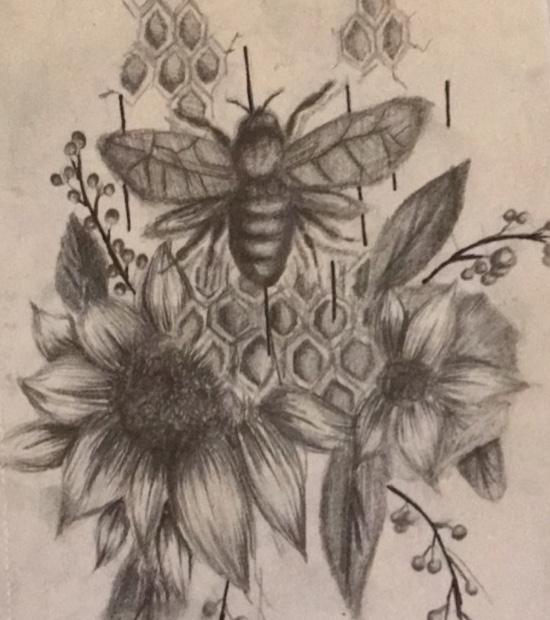
thick dripping honey hexagonal doors keeping the buzzing bees alive
BY RENEE BUDA, STATE COLLEGE, PAEven when the stars have fallen, When the oceans all run dry, Although the mountains start to shake,
And darkness fills the sky, When the endless night comes crashing through I’ll still be there to comfort you And I won’t ever leave again Through high and low, from start to end.
Even when the night is calling, And says I shouldn’t even try, I’ll stand beside the fallen stars, And lift them to the sky.
When the cold just never seems to end, I’ll still be there for you my friend, And I won’t ever walk away, From start to finish, night and day.
BY ELLIE BRUBAKER, HOUGHTON, NYsummer rots in your chest like a pomegranate, like lacerations in the myocardium, like the grinding pain in your knees when you run
summer falls asleep in july, in august: september is creeping ivy and overgrowth, wood splintering underneath your skin, ripping through subcutaneous tissue, your tongue is heavy in your mouth too heavy to whisper, too heavy to scream.
the exhale:
CAN ANYONE HEAR ME THIS TIME
summer is a gaping wound with no scar tissue and no healing in the winter:
sub-zero temperatures and playing pretend, fallen snow and constellations
summer rots under your fingernails and you are no longer beautiful, just yourself.
the inhale:
IS THERE ANYONE LEFT TO LISTEN
summer is dried out cherry pits summer-stained, red teeth you eat, but every bite is ultraviolet years without sunscreen, you understand there is cancer lying under your skin, waiting you eat what the others did not want cleaning up the leftover of thrown up gluttony, their nauseous lust it tastes like sidewalk chalk.
the exhale: no one can hear me this time the inhale:
there is no one left to listen
but you’re asthmatic and you’ve never been great at breathing you take your inhaler.
BY MACKENZIE HIGH, FORT WAYNE, INDear Bookshelf, I never take the time to thank you: Some place their trophies, their awards, a prize. Some place memorabilia of their favorite franchise. I could put artwork, books and games.
Or things passed down through my surname.
Porcelain, trinkets, or knitted materials,
Or snacks, canned foods and plenty of cereals.
Like a chameleon, always adapting, My attention, always attracting.
BY AVA DOMINGUEZ, MIAMI, FLNo one is in your vicinity, A tranquil realm where thoughts align.
Nothing to breach serenity, Only quiet moments, just you is fine.
The world recedes, and what remains Is a tapestry of peace. In solitude, the heart unchains And worries, find release.
A sanctuary where you get respite, In quiet hours your truths are found. A chance to heal, to see the light, A chance to be unbound.
Embrace solitude, for it’s a friend, In its silence, our minds can mend.
BY ANONYMOUSFish:
There I lay on the street, forever Gazed, the corner of my Open eyes clouded and glassy at the chickens, hanging neatly, diagonally above how amazing that their feathers turned into crispy, golden brown skins. And a trunk lying near, facing me its luminous rings spiraling soothingly inward, to the pith echoing soundless tunes And I kept wondering What makes all those between earth and sky succumb to you a tiny wonder of all that be?
Then I felt myself:
heat beneath and above brushed across my swollen fins and tail You dropped me there, to make me feel

Warmth so I forgave you, for you had assumed I was cold
In a moment my scales glittered like silver more feet stopped to surround me then I heard “Uh, it’s not” and they faded away I was glad their heads were gone So again, my dilated pupil met — Skies! Skies!
Sun painted the heavens with gold and orange for the first time, I thought of coral reefs
I then pondered upon days ahead: when the sky weeps and his tears sometimes freeze among all those lives on the street I’ll be the only one who would never need an umbrella.
Days, years later rain washed away my flesh air replaced me. But what a forgetful mind my soul there, forever.
BY QIANXUN LOU, FOSHAN, CHINAOh great enigma, For eons, humanity’s incompetent mind has been trying And failing To interpret you.
No matter the fickle dramas Earthlings fear Your stagnant presence reminds us why we’re here — For we are not just ourselves. We are configurations of stellar dust, which meld Into what we recognize as our existence.
Send us a sign to show
That you recognize us and love us so. Give us the means to solve Problems we puzzle with about how we’ve evolved.
The farther we get from our marbled home,
The more exotic your nature: Diamond planets orbiting vibrating pulsars,
And dark warpers of space-time from which not even light can escape.
As our understanding of you begins to mature
More and more seems to be unknown,
But I know something brilliant is
taking shape.
What are your origins?
A simple bang is not sufficient. Inflation continuously gives rise To other universes, might surprise Some who can’t seem to realize That reality is far from what we alone can comprehend.
How about your end?
A rip, a crunch, it’s all the same to me. But selfishly, I hope you stay So that the fabric of my being will cease to fray.
How insignificant are we really? Special, we deem ourselves, but according to probability, It is far more likely that we are but an element in a plethora
Of societies far more capable than our own. Unfortunately, no matter how many there are, such a trial it is to ever find them.
Who knows? Maybe they’re sending messages to us: Electromagnetic radiation permeates across the vacuum of nothingness.
Perhaps they’ve already come, Planting seeds for us to discover years later.
No matter how crazy I sound, even the most esteemed academics know that, technically, anything is possible. Ah, the quantum realm, where we know nothing for certain, Where probability rules its faithful servants.
Are you the antithesis of the “elegant universe”?
Proving that nothing of meaning has happened at all –But simply a product of chance withal?
Even Einstein did disdain you, And yet many hearty minds continue to appraise you.
No matter the truth, I know that ever since my youth I have felt comfort in immersing myself in constellations
As representations
Of abstract beliefs.
Some interpret certain observations as signs –
A shooting star results from a meteoroid.

Was my encounter
Meaningful in any way, Or was it the work of luck in your feelingless void?
BY NAIRI DAVIDIAN, WATERTOWN, MAthe glare of blue light replaces reality & organic sunlight.
BY CASS NEWSOM, MADERA, CAIt’s been Thursday for awhile
And I have too much to do so
I’m thinking of Every baby tooth I’ve ever held. Thinking of the way I pulled them all out myself.
A meeting of premature teeth and eager hands because it felt good to hold A body between two fingers. because I was never Good with anticipation.
Every tooth left with a pool of blood
Gathered in my gums
As metallic on the tongue as the screws my father
Would leave around the house.
So I slept with a hand
Under the pillow
With slowed breaths and squinted eyes .
Waiting to catch a father in the act
Yet only waking up
To sweaty palms
And coin-oiled fingers.
And there are some nights that I get nothing done
Restless in bed, I bury my hands under my pillow
And remember that somewhere There is a pile of my bones.
off-white molars collecting dust in a corner
Holding childhood
Stripped away like apples
From a tree.
Every small tooth a time capsule
Of a girl who hadn’t yet Learned to wait.
BY ELIOT TABER, BROOKLYN, NYI am from that land
Where there was rich dirt not sand Where the olivos grew green Where conejos, linces and deer were seen.
Yo soy de aquella fértil tierra
Que mi familia cultiva desde antes de la guerra
Their life cycle in unison with the trees That produced golden oil with ease.
But the olivos greatest benefactor
Was lost to a disaster
Las que deberían caer a mil Tampoco llegaron en abril.
Where did our water go? What causes our reserves to be so low For this world is under the reign Of a vicious cycle of consuming in vain.
BY AYLA SERRANO ALEJANO, LINARES, SPAINChildren frostbitten
Grandparents, bullet-ridden Still warmed by God.
BY ZACHARY CHOI, PALO ALTO, CAThe end traipses onward heir to the earth and all that is forgotten
Open wounds borne by the shadows on the ceiling
Here hangs the fetor of decay a death knell beckoning to the gallery of yore to the shrike’s lullaby Chords of smoke and mislaid promises.
BY ERIN HART, METUCHEN, NJThe half-eaten crumpled bag of potato chips lays on the kitchen counter. Friendly families of take-out containers convene in pockets scattered on the table and floor, some making it home to the garbage can.
A soft, yellow-colored lamp illuminates the brown wooden desk in the living room where a school book bag has set up shop.
Piles of books and papers circle the desk in almost concentric circles worshiping silently the lone figure studying deep into the night. The living room drapes usually neat, stiff and formal are askew- shoved into the corner all on one side.
Through the now naked French doors, stars pierce the dark sky like pimples on a pubescent boy’s face in the midst of a testosterone surge.
An unlit Christmas tree – plastic and still in sections- lies forlornly in the corner hidden behind boxes of ornaments haphazardly stacked on top of each other.
The task at hand goes undone. Mud splashed sneakers lay happily splayed on the floor, adding personality to Mom’s fancy cream wool carpet. Once freshly pressed church clothes blanket the floor like the thick sludge in a Louisiana marsh. A tie borrowed from Dad hangs from a staircase.
With socks as it’s neighbors, they decorate the rails like Christmas ornaments.
When the parents are away.
BY JAMES RHEE, ATLANTA, GA2
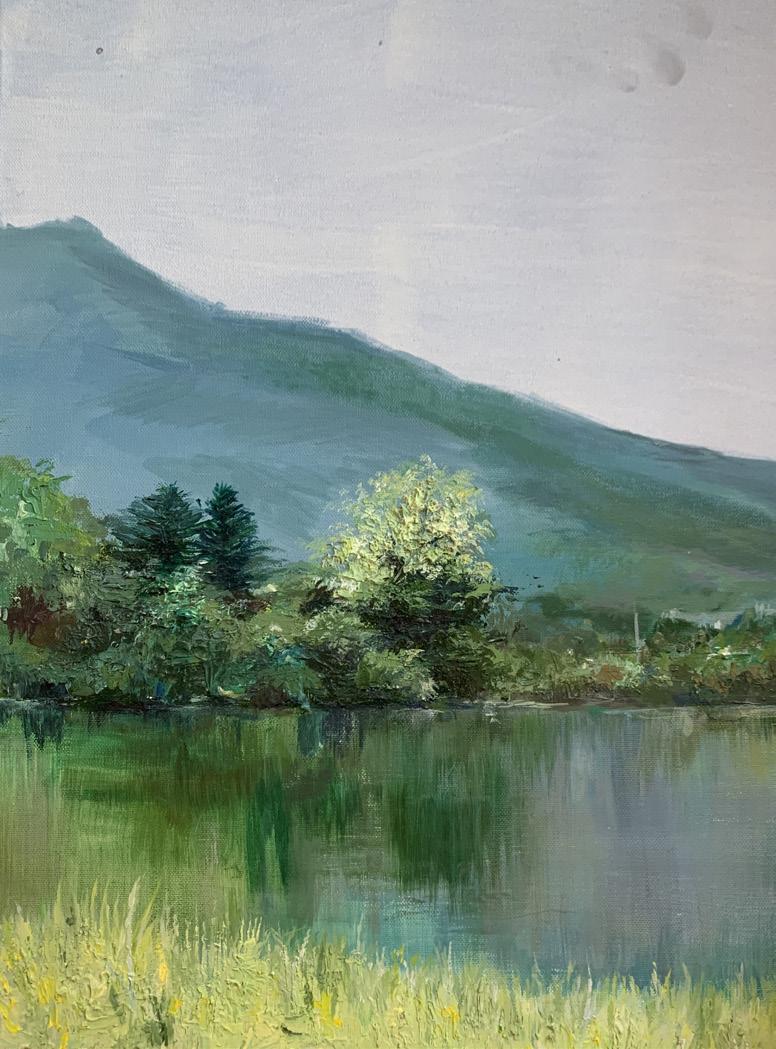
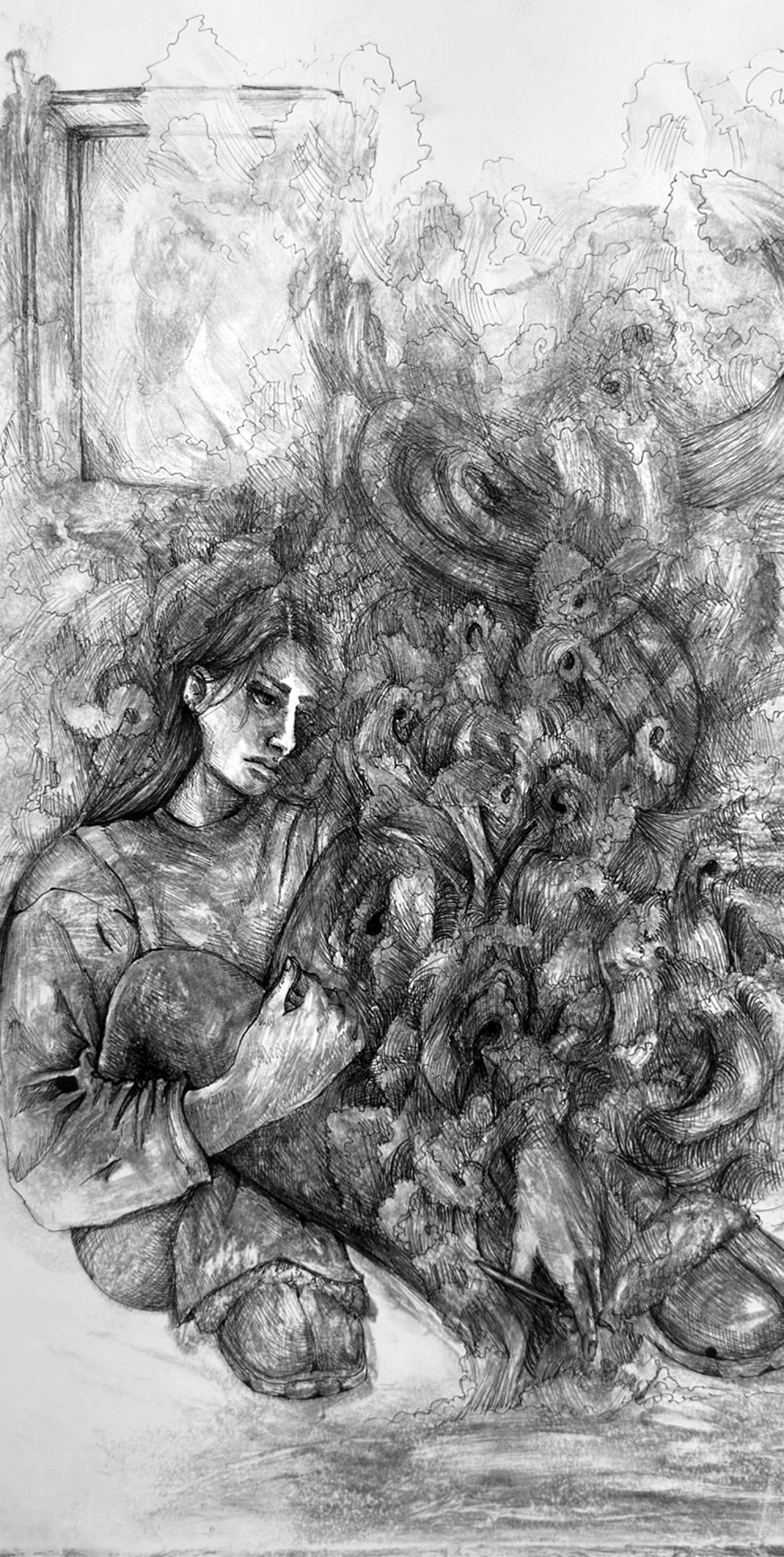
3
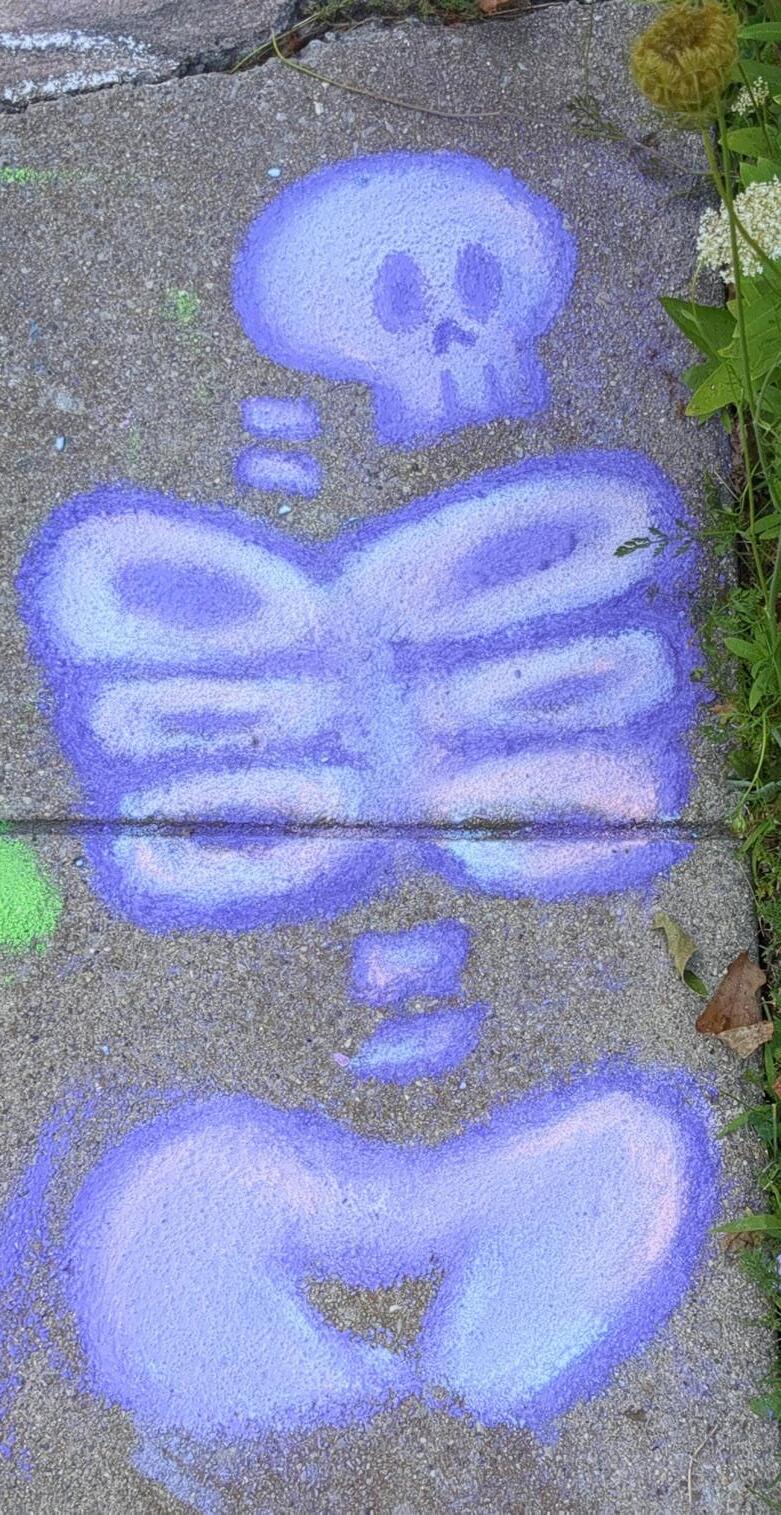
Health
Anonymous, 7
Surabhi Verma, 8
Anonymous, 10
Hobbies & Special Talents
Gabrielle He, 12
Amlan Dey Avik, 14
Amelia Hickey, 16
Felice Ciputra, 18
Jonathan Bai, 19
Grandparents
Dylan Stringer, 20
Jacob Muscolino, 24
Maram H., 27
Almoge Friedman, 28
Spooky Fiction
Shelbie Perani, 33
Anonymous, 34
Emma Orduno, 36
Sanjoli Gupta, 40
One-Sentence Horror Stories
Shelbie Perani, 42
Yiji (Michale) Shi, 42
Carlisle Sinclair, 42
Polina Perin, 42
Noelle Hagen, 42
Aigerim Bibol, 42
Jennifer Chen, 43
Dongrun Zhu, 43
Isis Palmer, 43
Lottie D., 43
Sports
Catherine Topps, 44
Jordan Pintar, 46
Jack Duffy, 48
Kyle Andrews, 50
Book Reviews
Abriella Yu, 52
Shelbie Perani, 53
Anonymous, 54
Brayson Brown, 54
Movie & TV Reviews
Ben Parker, 56
Ellen Hsuan, 57
Dongwan Kim, 58
Poetry
Victoria Muniz, 60
Pepper Rose, 60
Renee Buda, 60
Ellie Brubaker, 60
Mackenzie High, 61 Ava Dominguez, 61
Managing Editor: Noelle Campbell
Consulting Senior Editor: Cindy W. Spertner
Associate Editor: Kylie Andrews
Sales Account Executive: Sara Shuford
Anonymous, 61
Qianxun Lou, 61
Nairi Davidian, 62
Cass Newsom, 63
Eliot Taber, 63
Ayla Serrano Alejano, 63
Erin Hart, 63
James Rhee, 63
Art Galleries
Aditi Vadassery, Front Cover
Chloe Park, 6
Jayda Wang, 6
Miaofu Tian, 6
Genevieve Gungor, 7
Jillian Dettman, 8
Avery-Grace Payne, 10
Nicole Ni, 12
Sonja Xie, 14
Marian De Silva, 16
Jayda Wang, 18
Carson Ling, 19
Anonymous, 20
Leena Dzemaili, 22
Genevieve Gungor, 23
Pinqi Jiao, 23
Caitlyn Kim, 23
Ellie Brubaker, 23
Tianyang Xu, 25
Noelle Wu, 26
Anonymous, 28
Zeyi Zhang, 30
Brooke Lewis, 30
Jayda Wang, 31
Beatrice Vaught, 31
Samantha Kim, 31
Xu Zhao, 31
Kristen Wang, 31
Lauren Juric, 32
Aesha Jackson, 32
Qinyi Li, 32
Lynette Wagner, 33
Eban Slate, 34
Katherine Niu, 36
Zahrah Ali, 38
Alexandra Shulman, 39
Caitlyn Kim, 40
Isabella Bony, 44
Bethan Powell, 46
Noelle Wu, 48
Anonymous, 51
Miaofu Tian, 55
Kayleen Cho, 59
Anonymous, 60
Olivia Amir, 61
Haoran Yuan, 62
Maya McQueeney, 64
Nathan Choi, 64
Mackenzie High, 64
Abigail Baker, Back Cover
Follow us on Social Media
 ARTWORK BY ABIGAIL BAKER, NORMAN, OK
ARTWORK BY ABIGAIL BAKER, NORMAN, OK